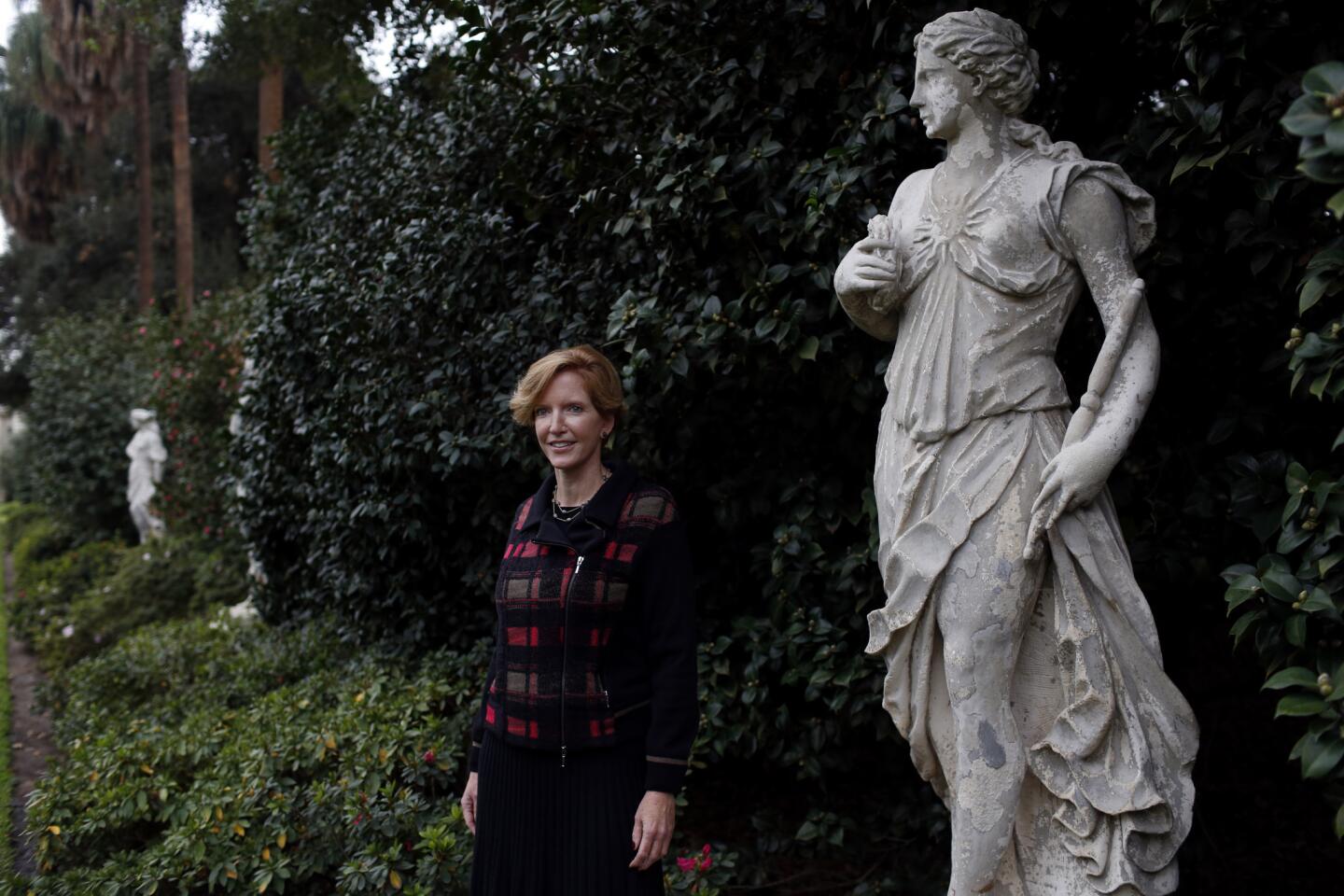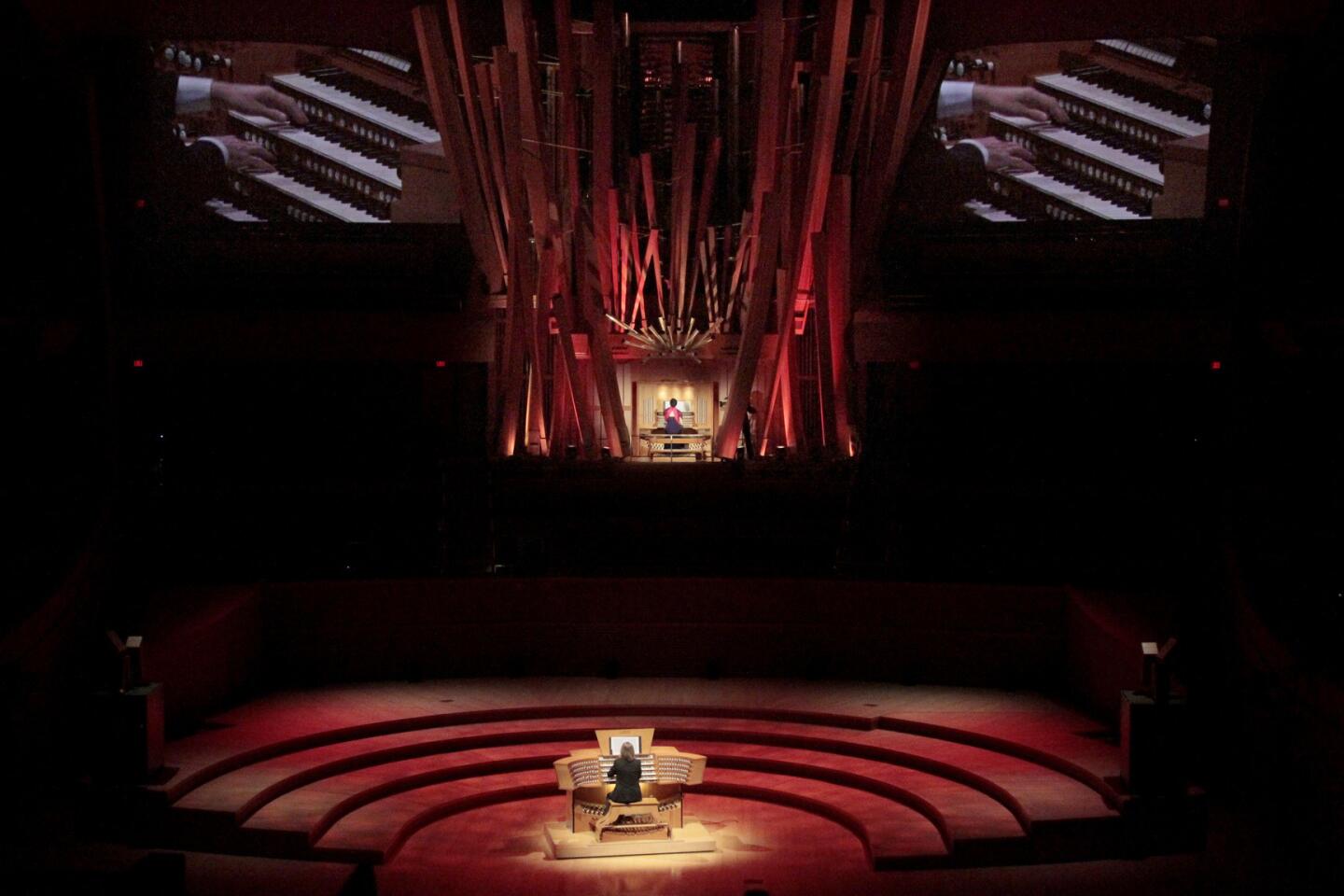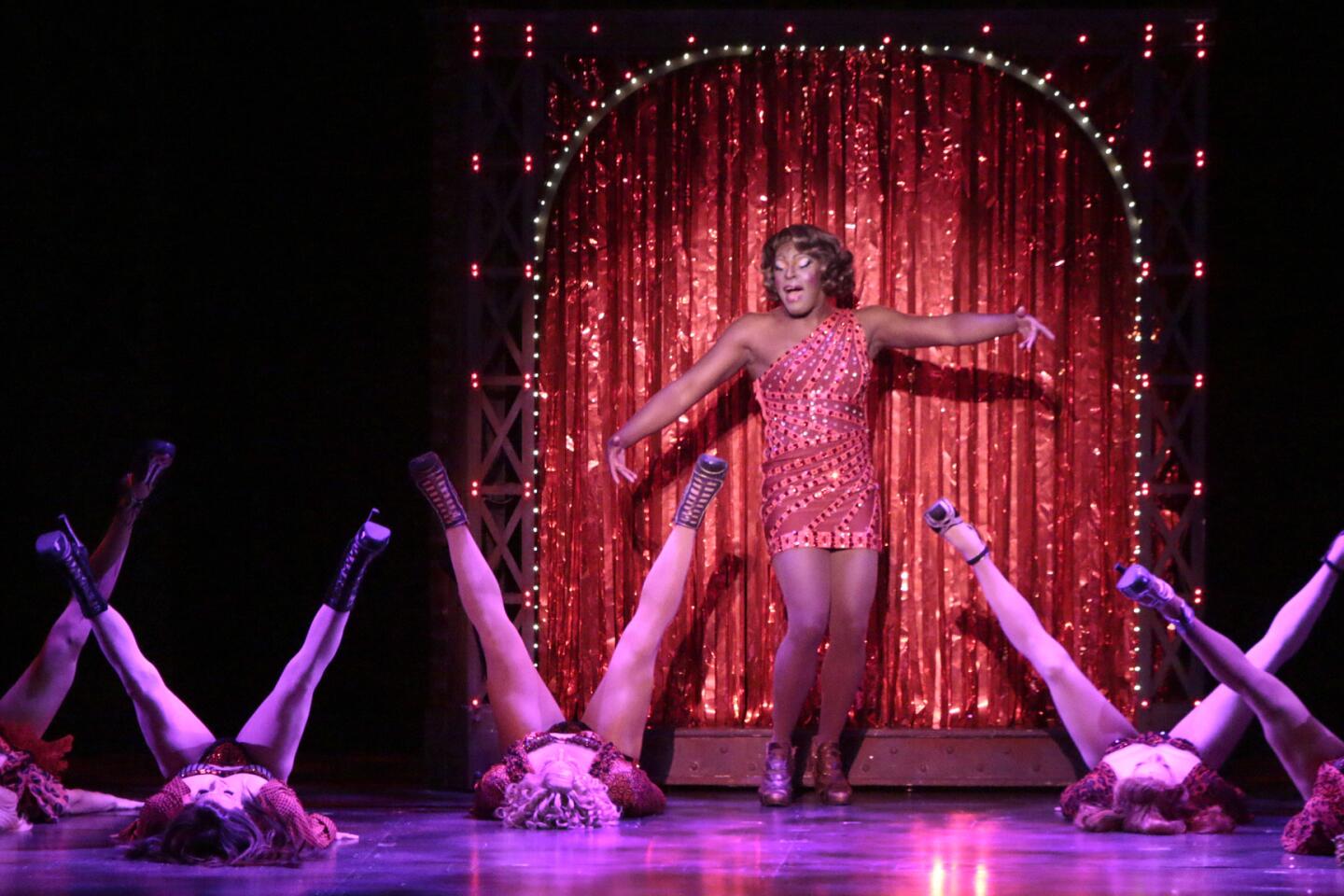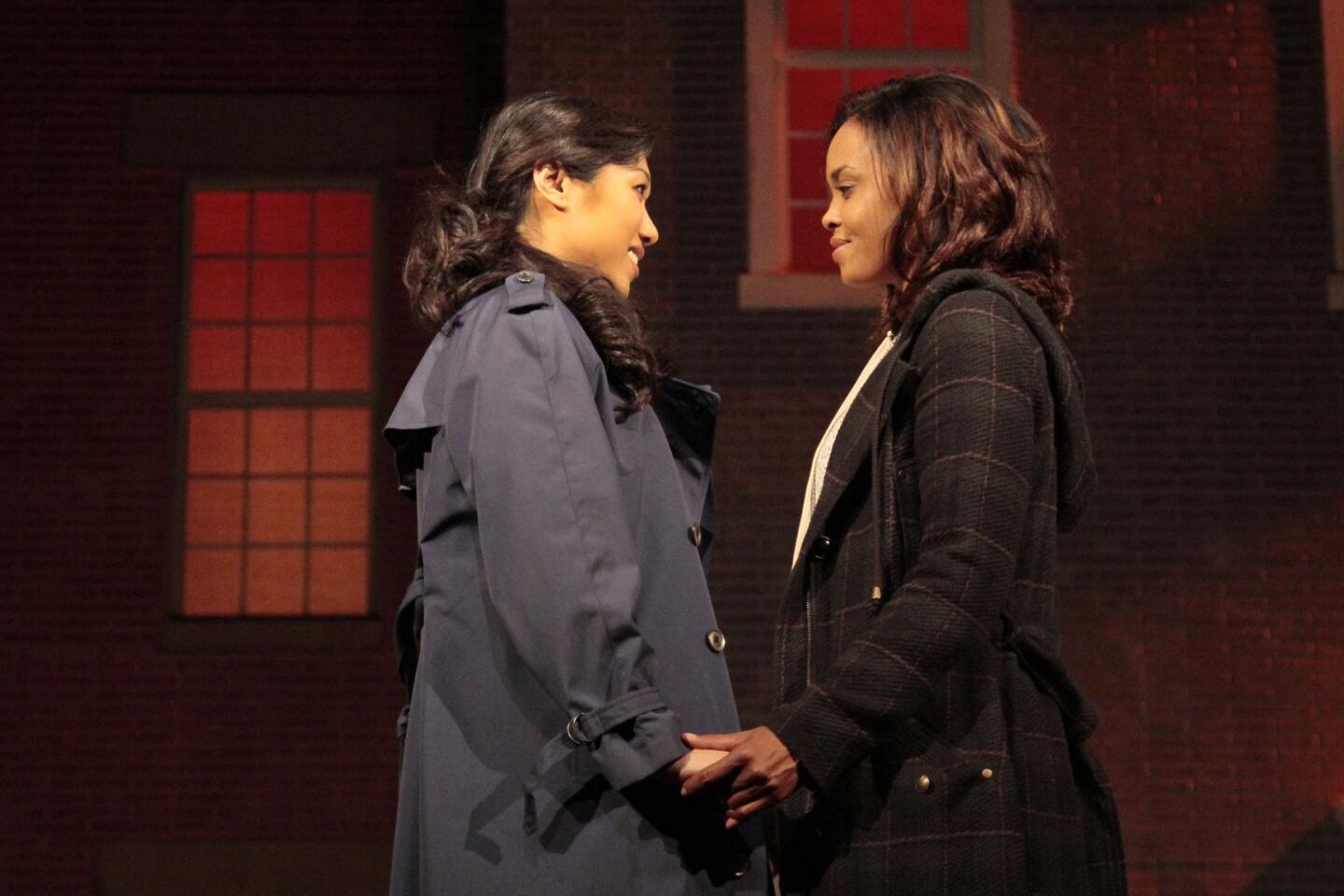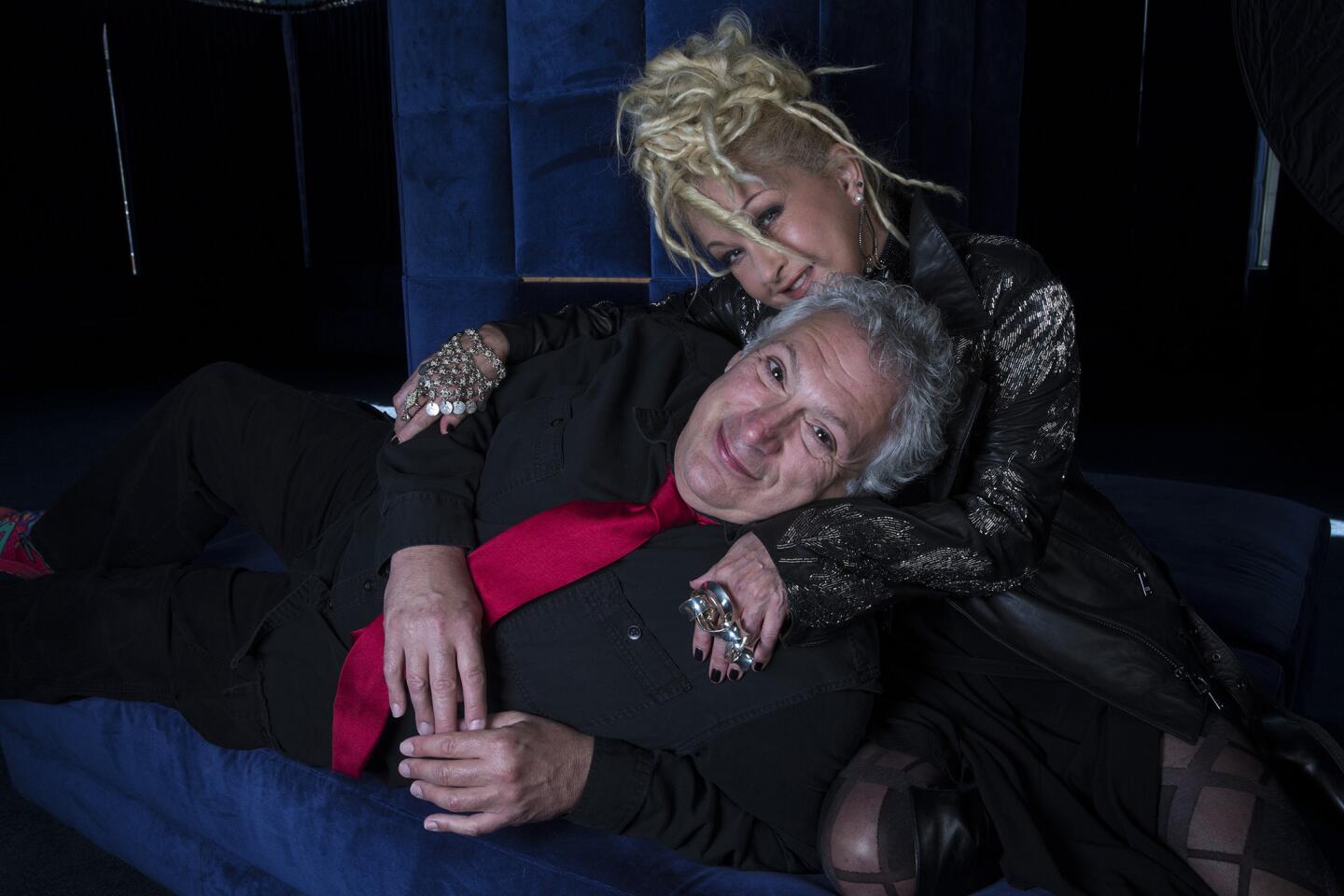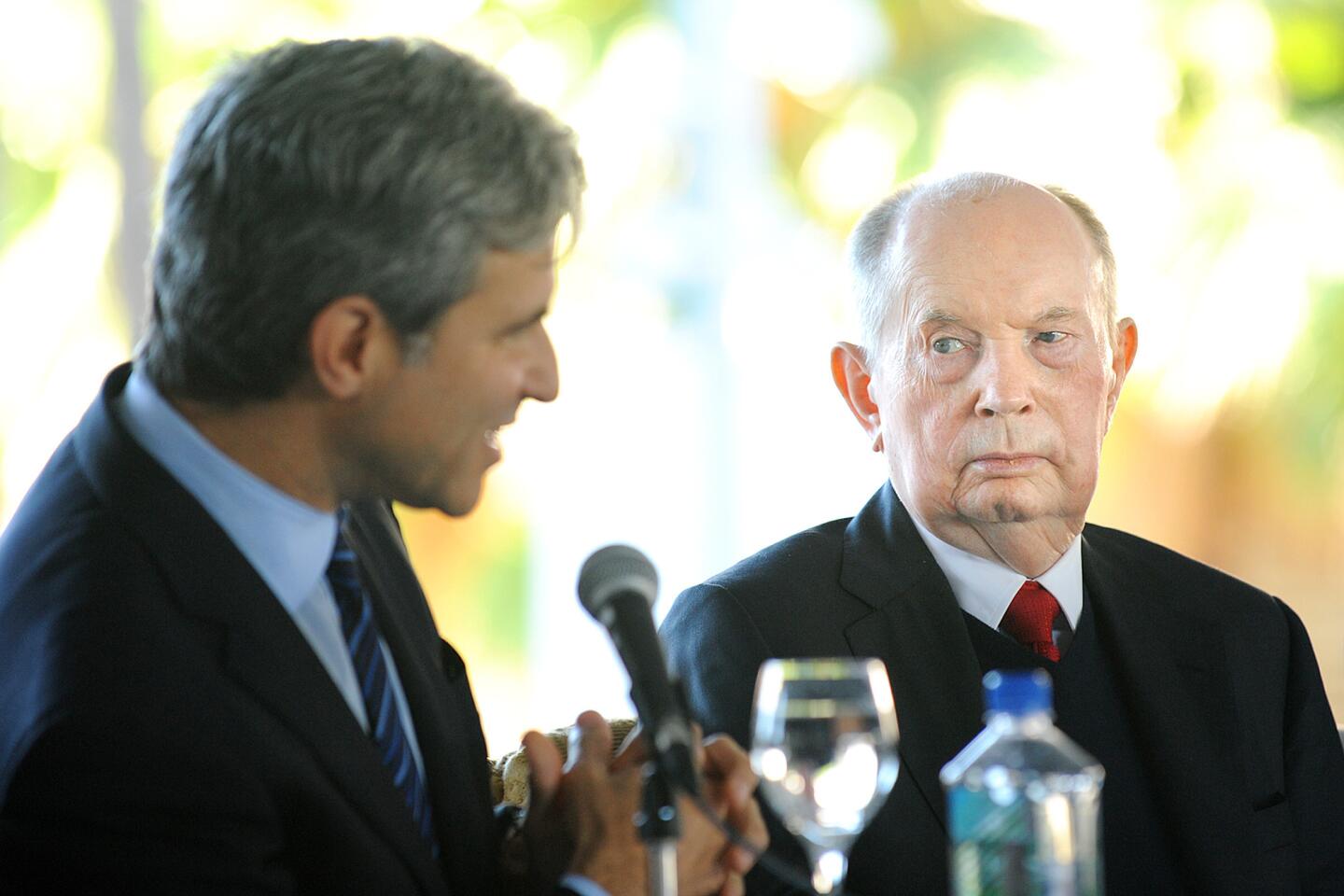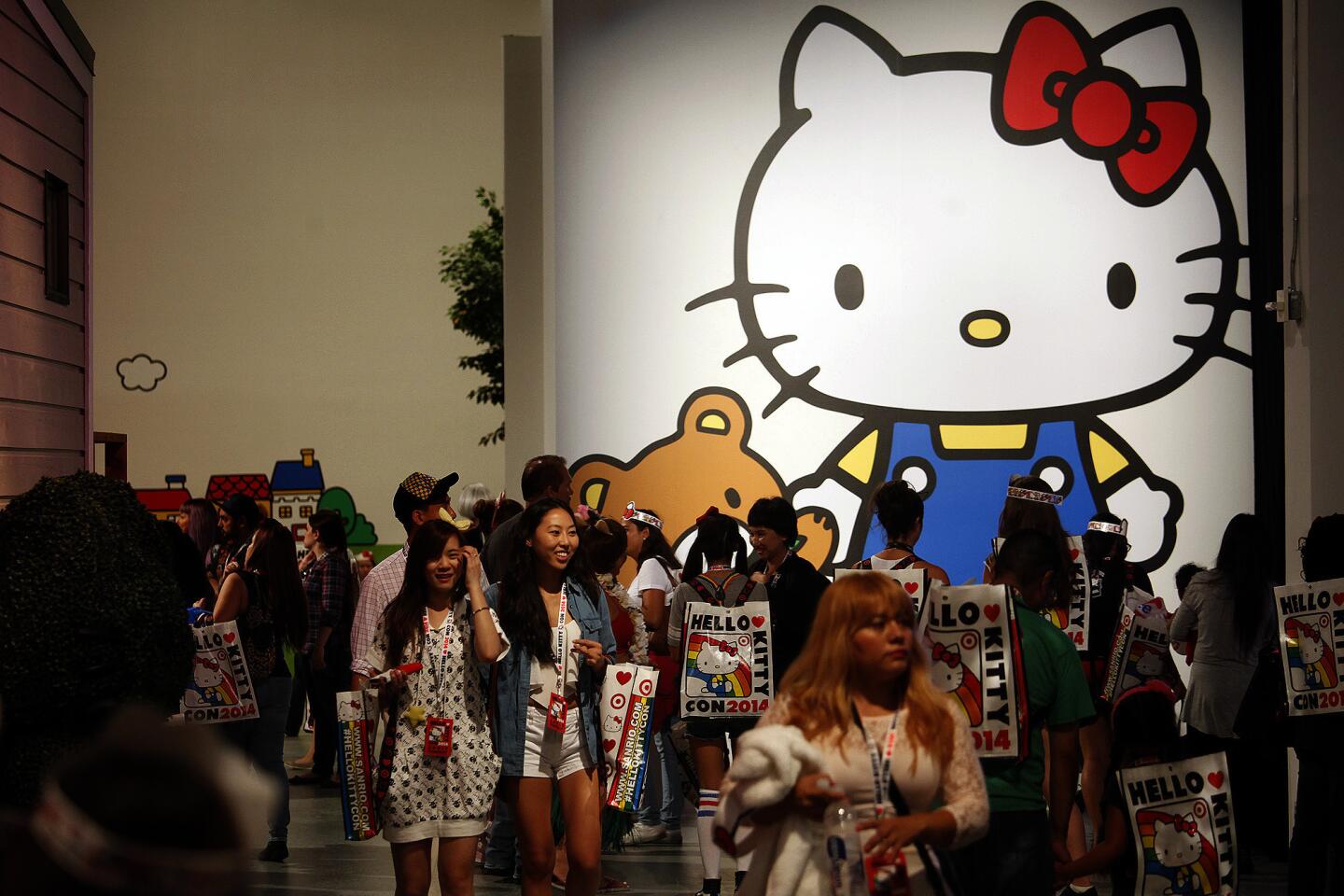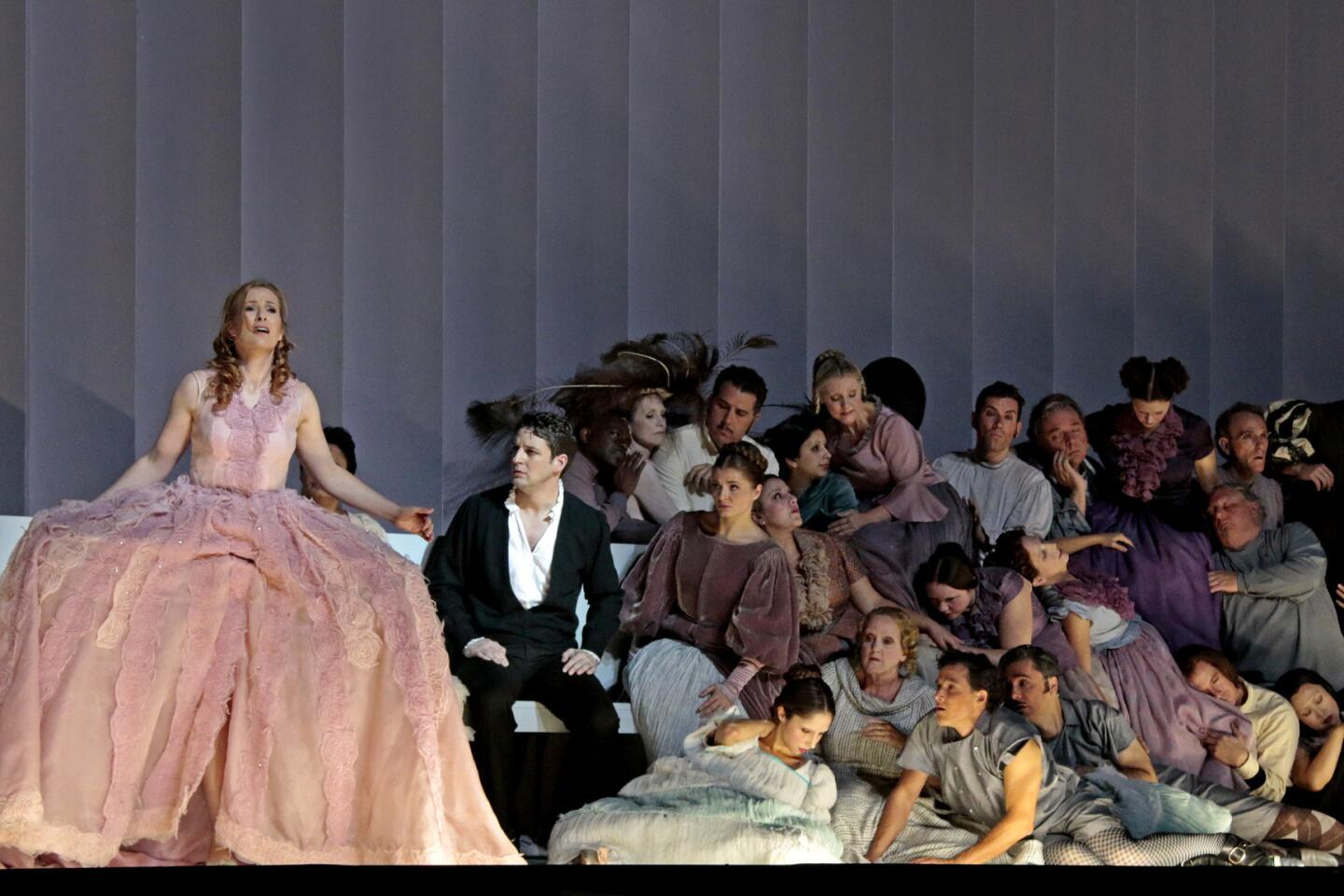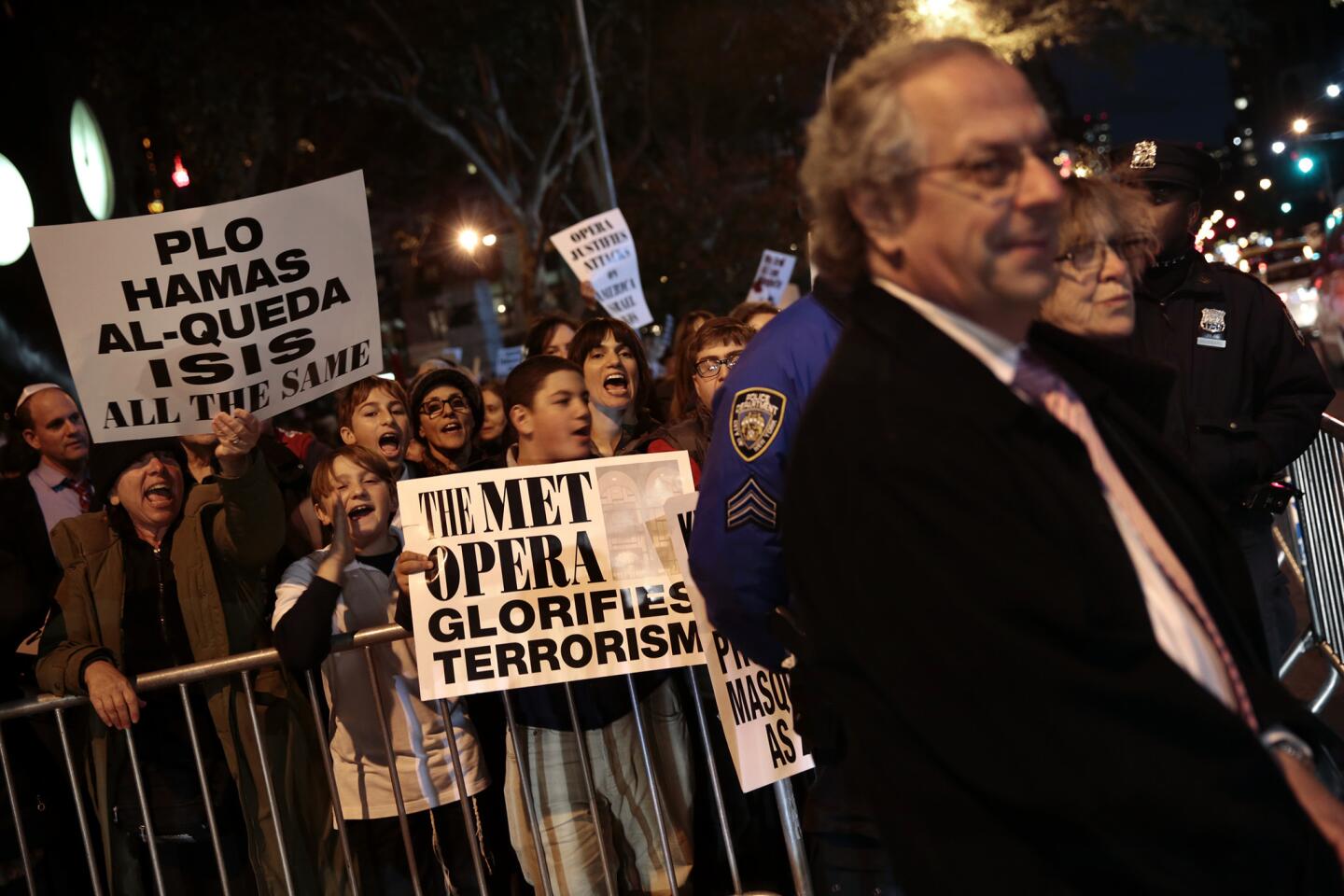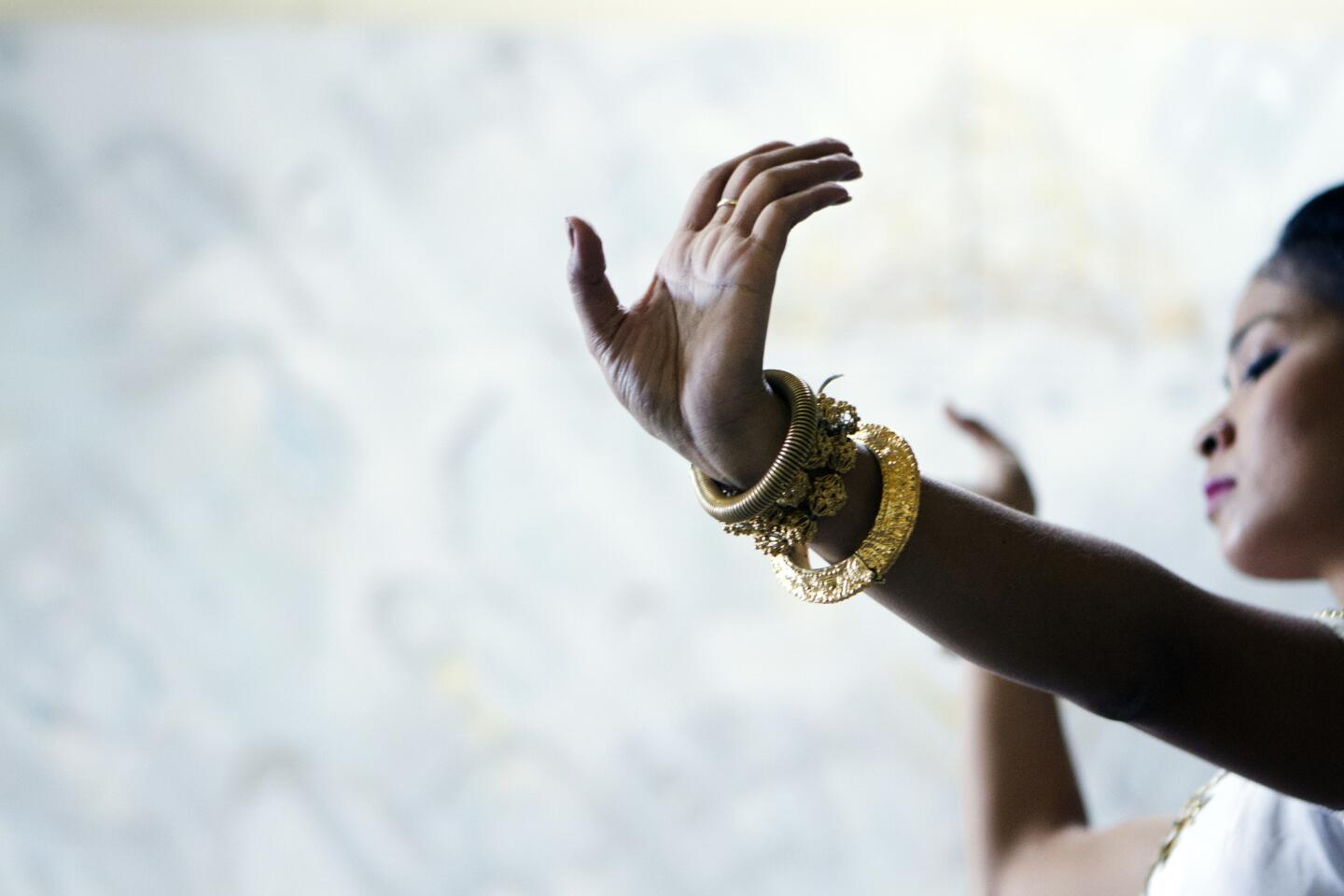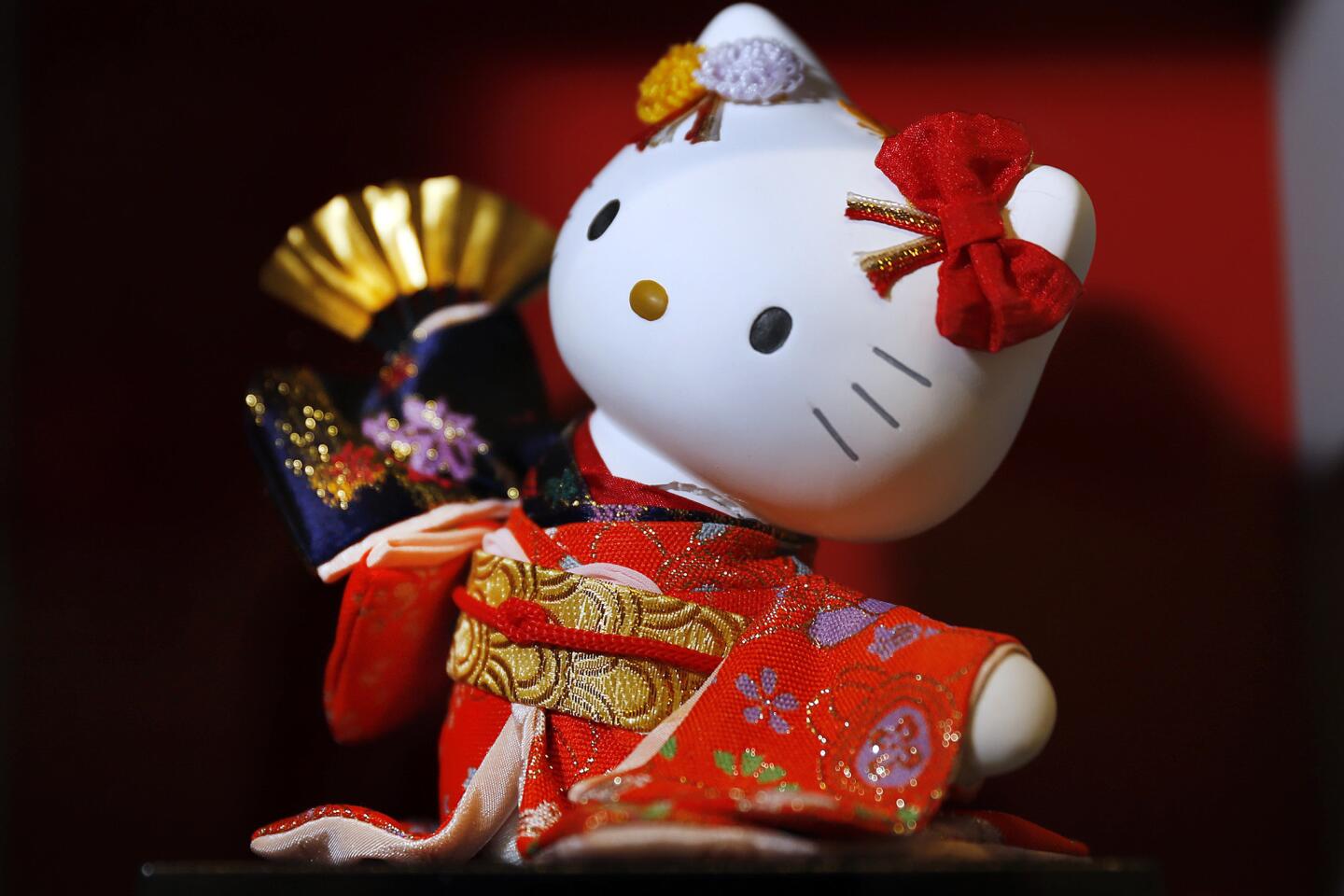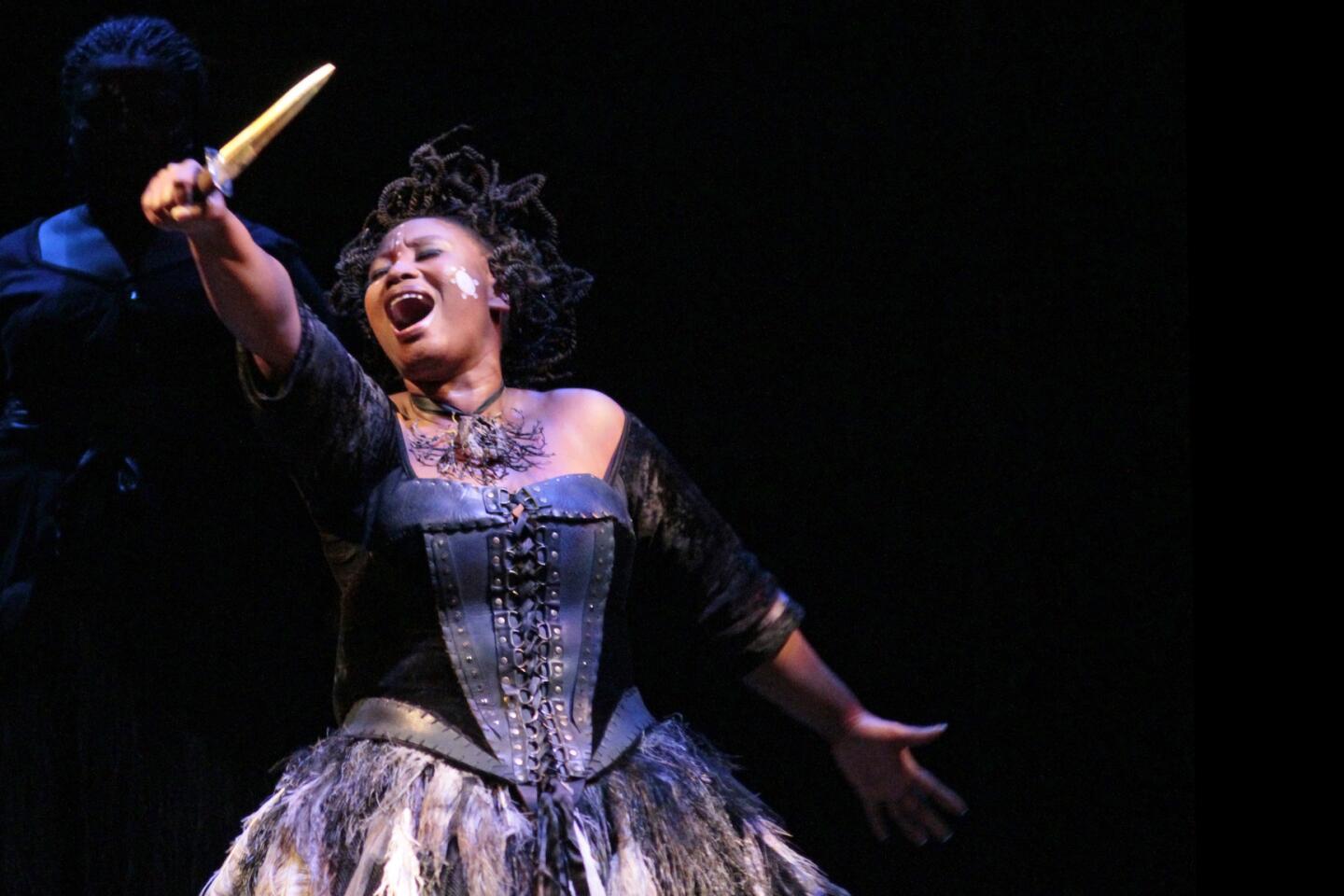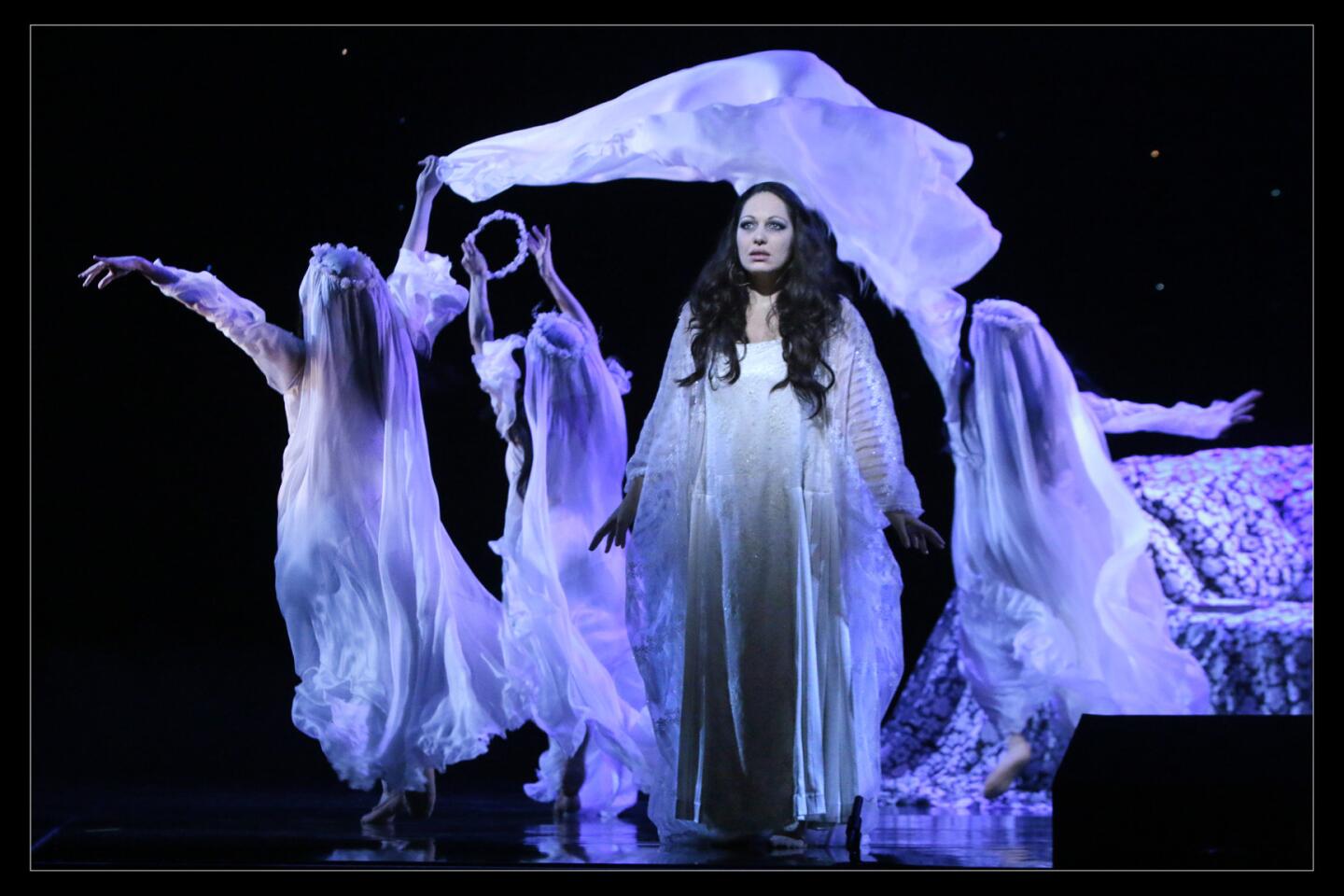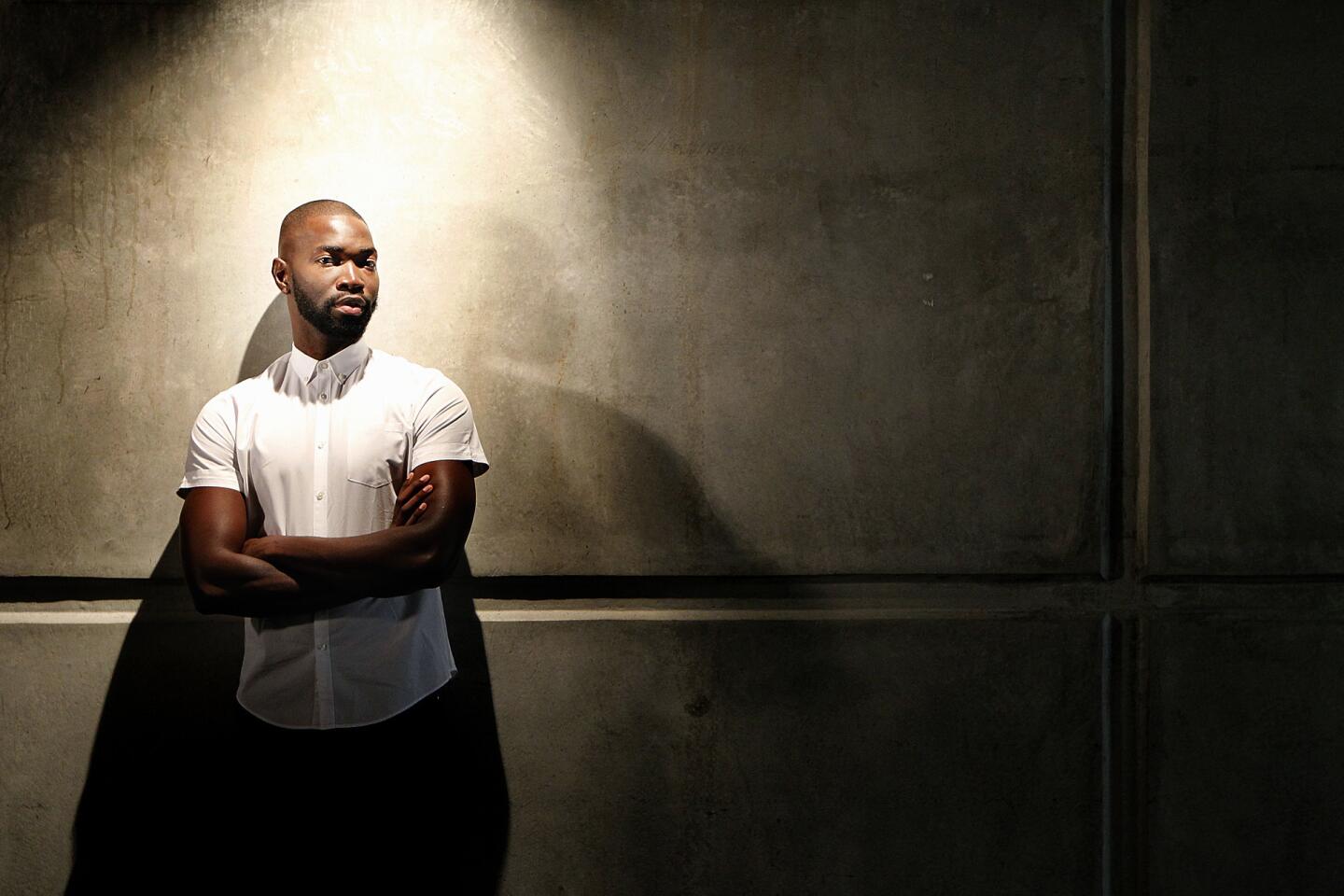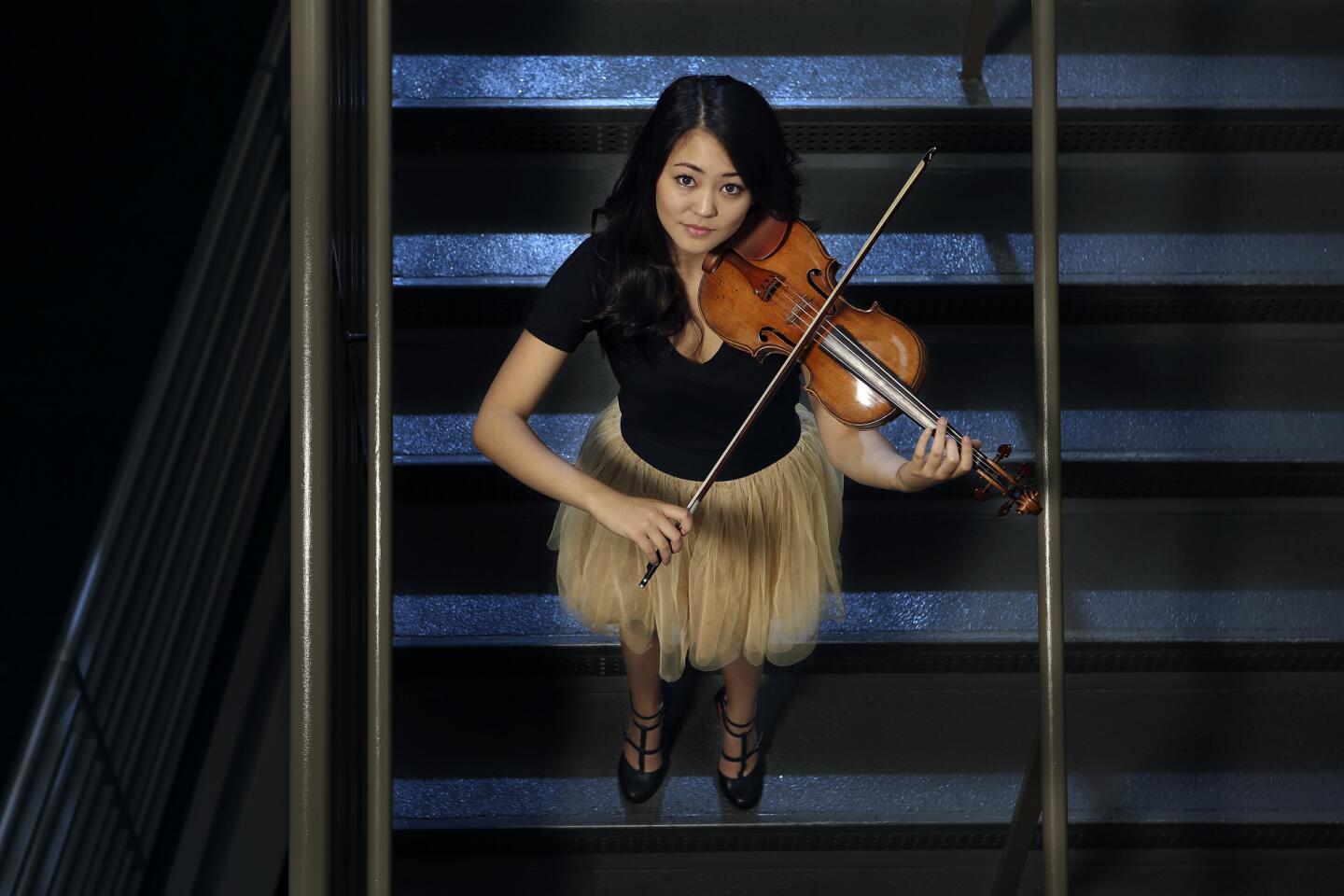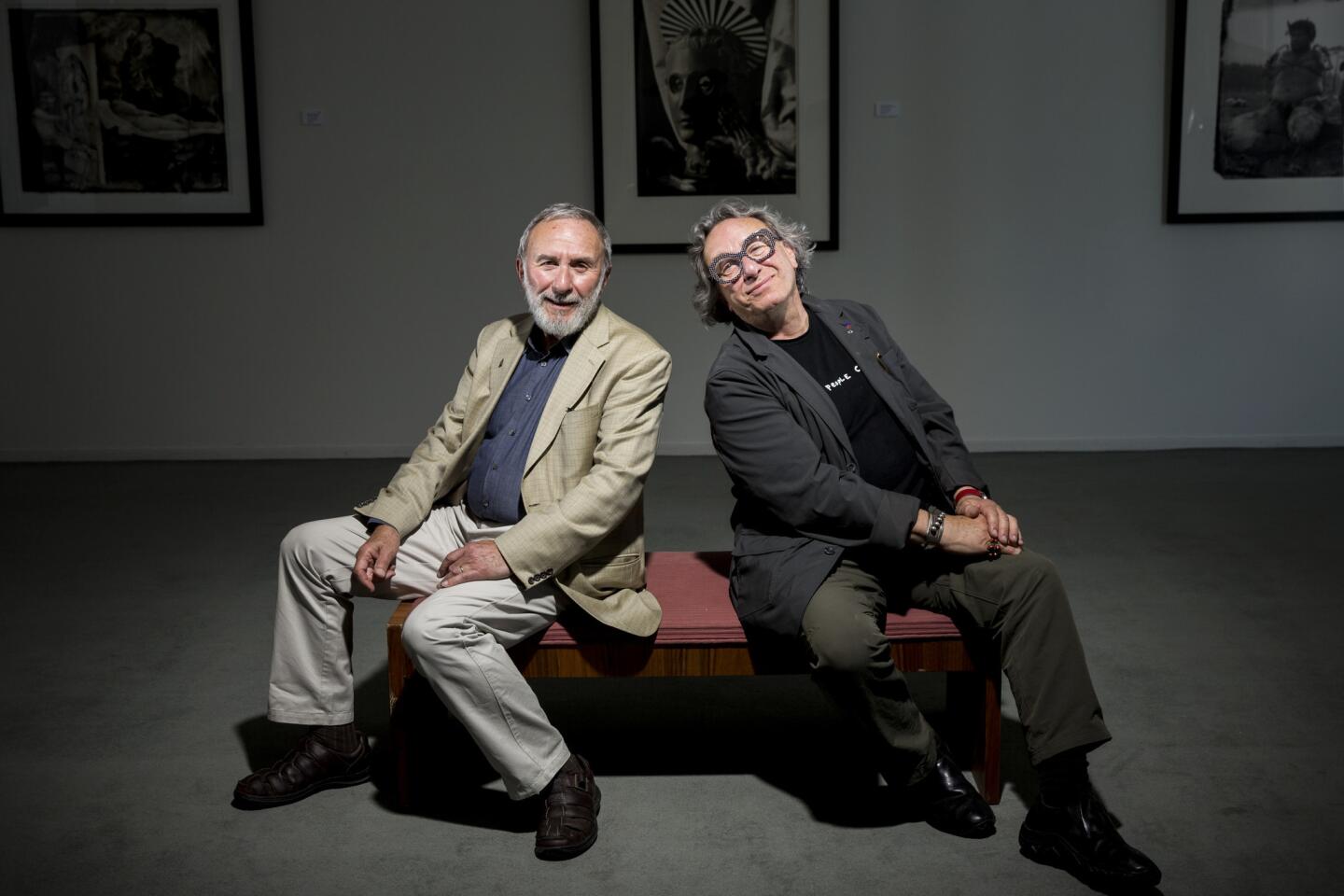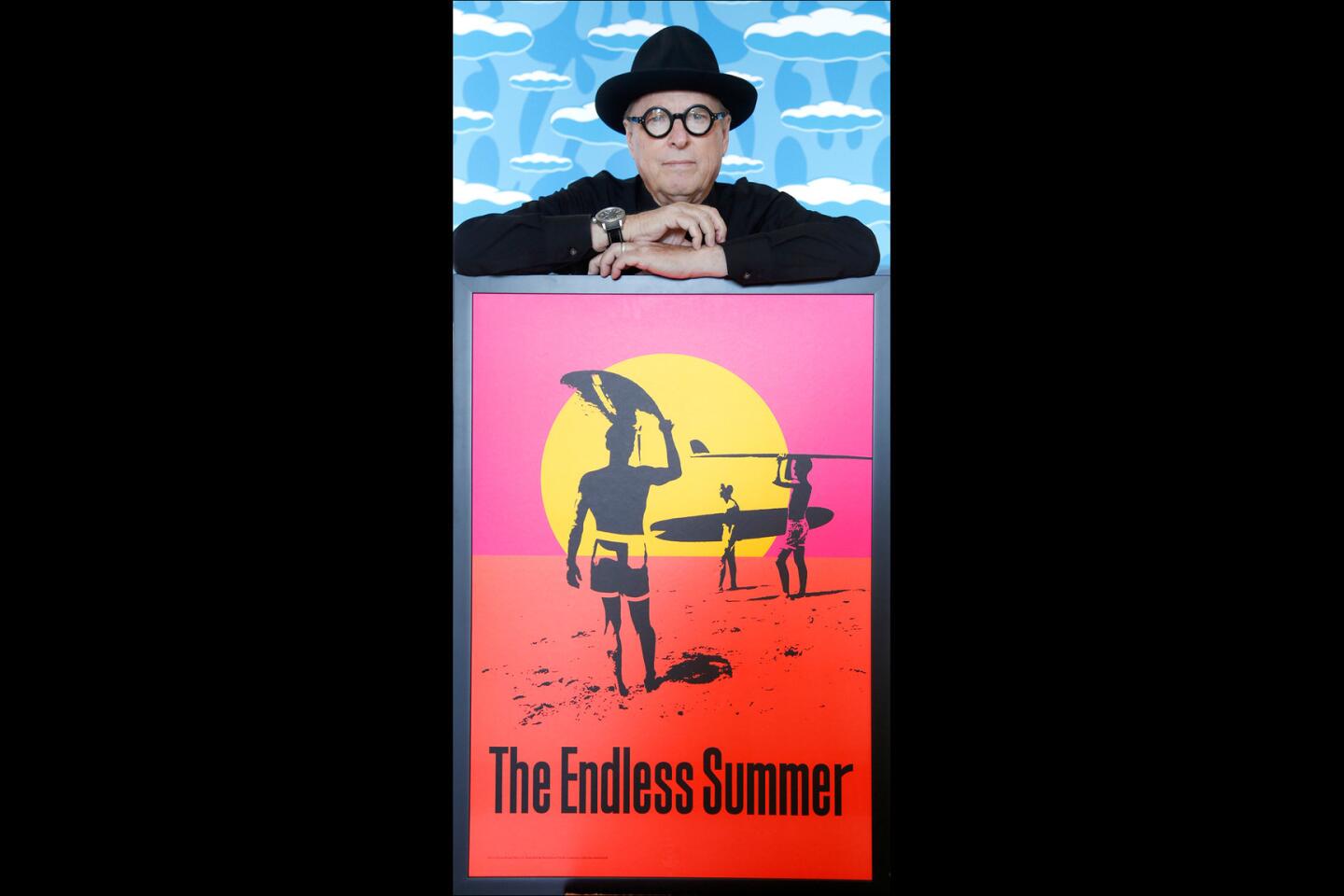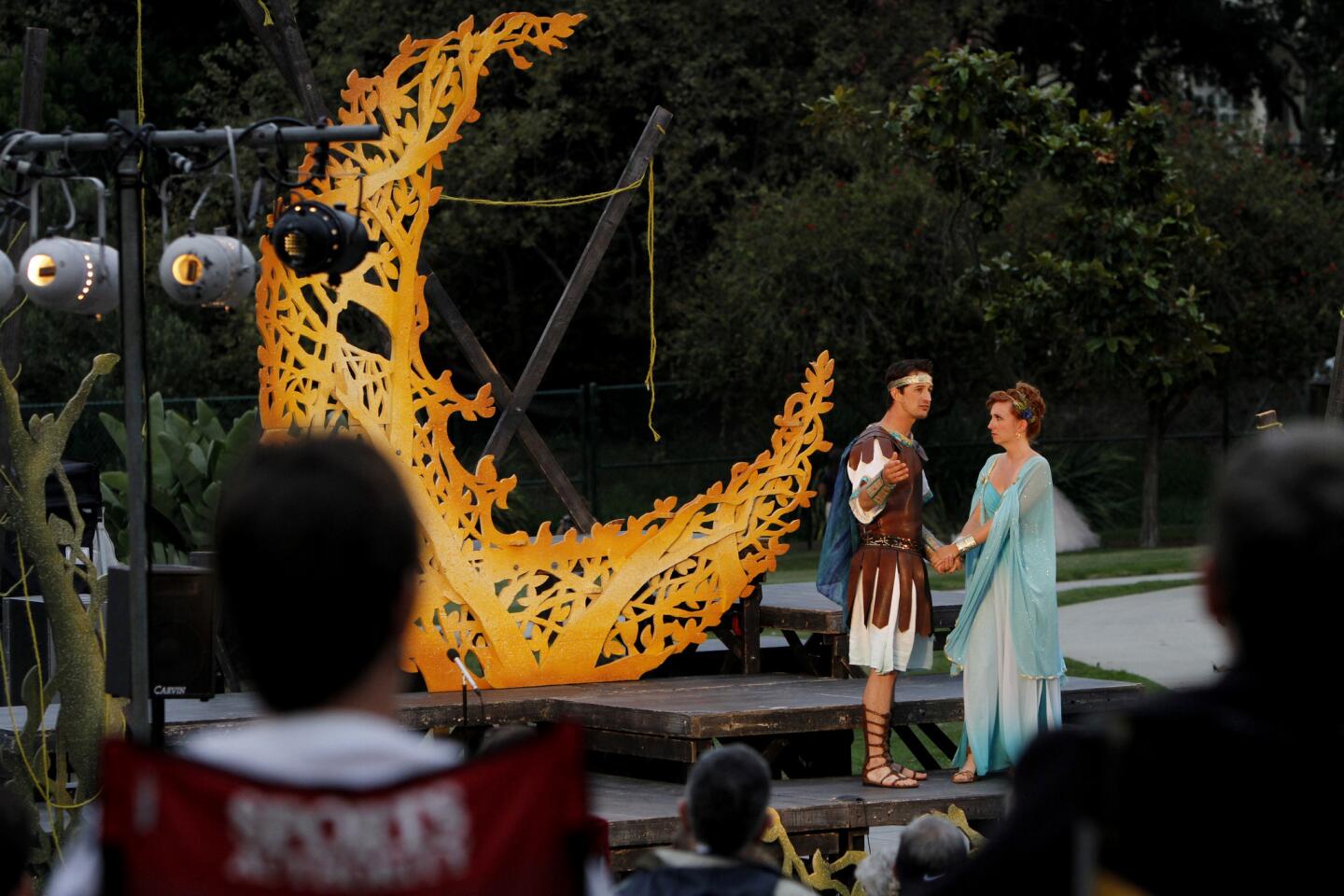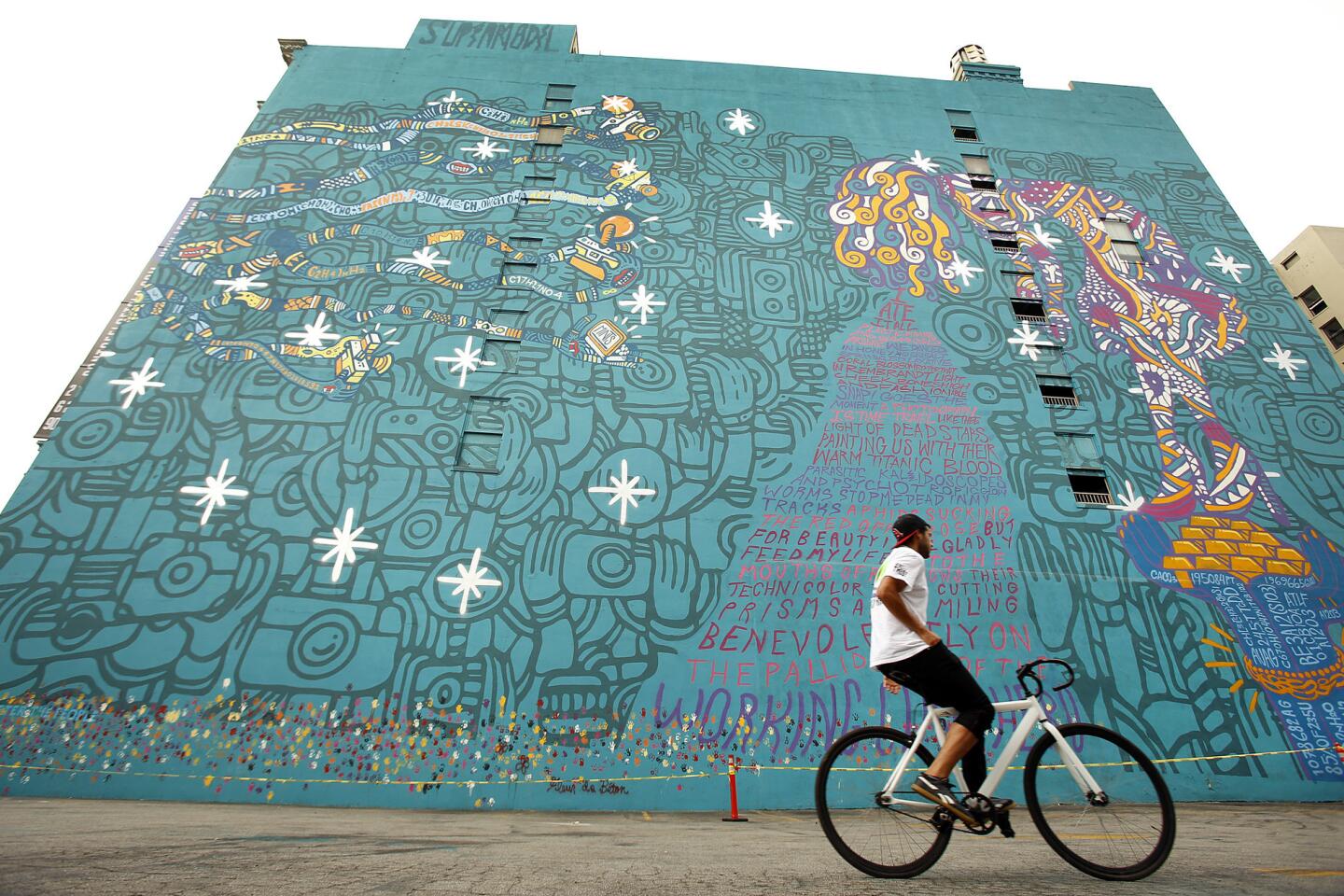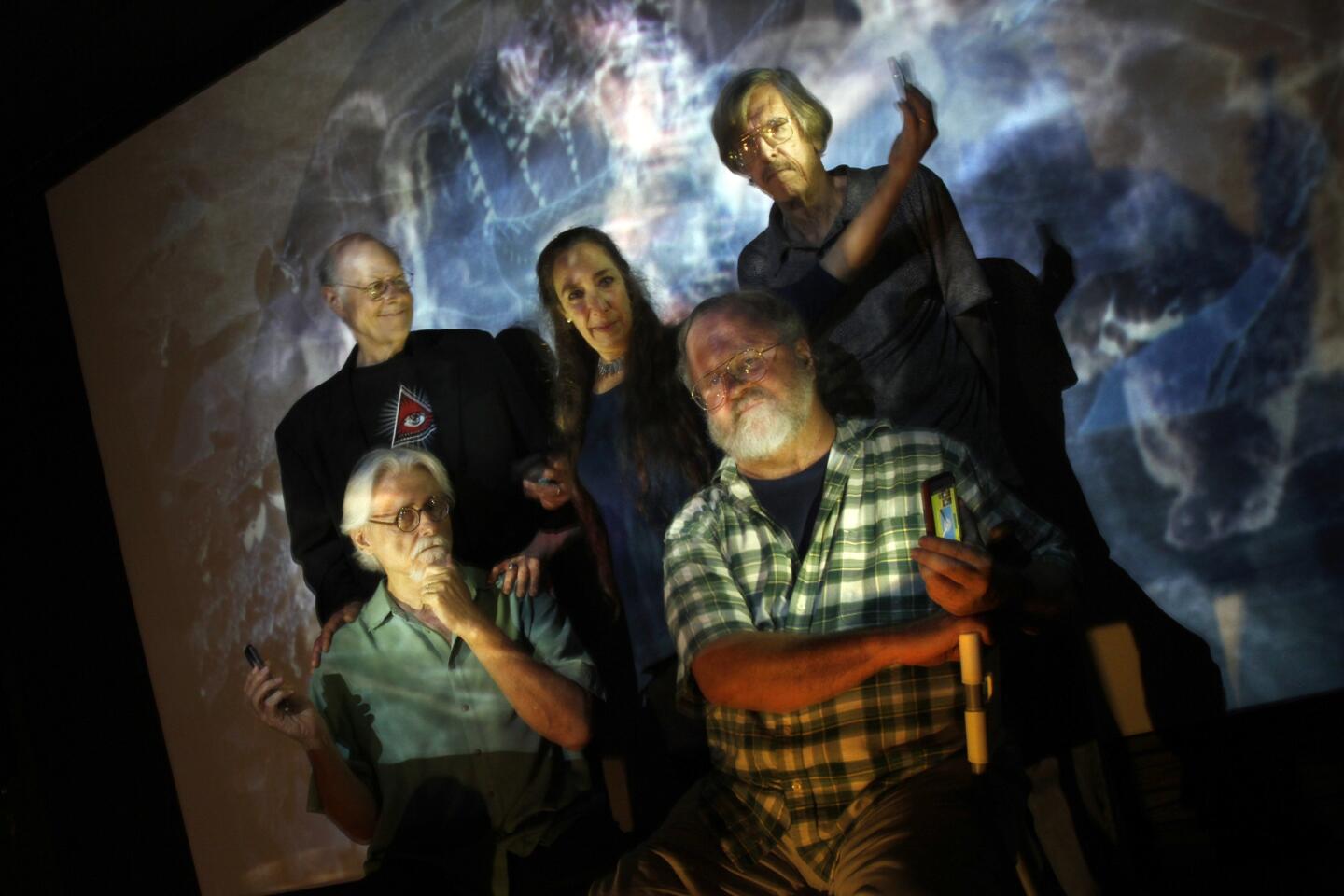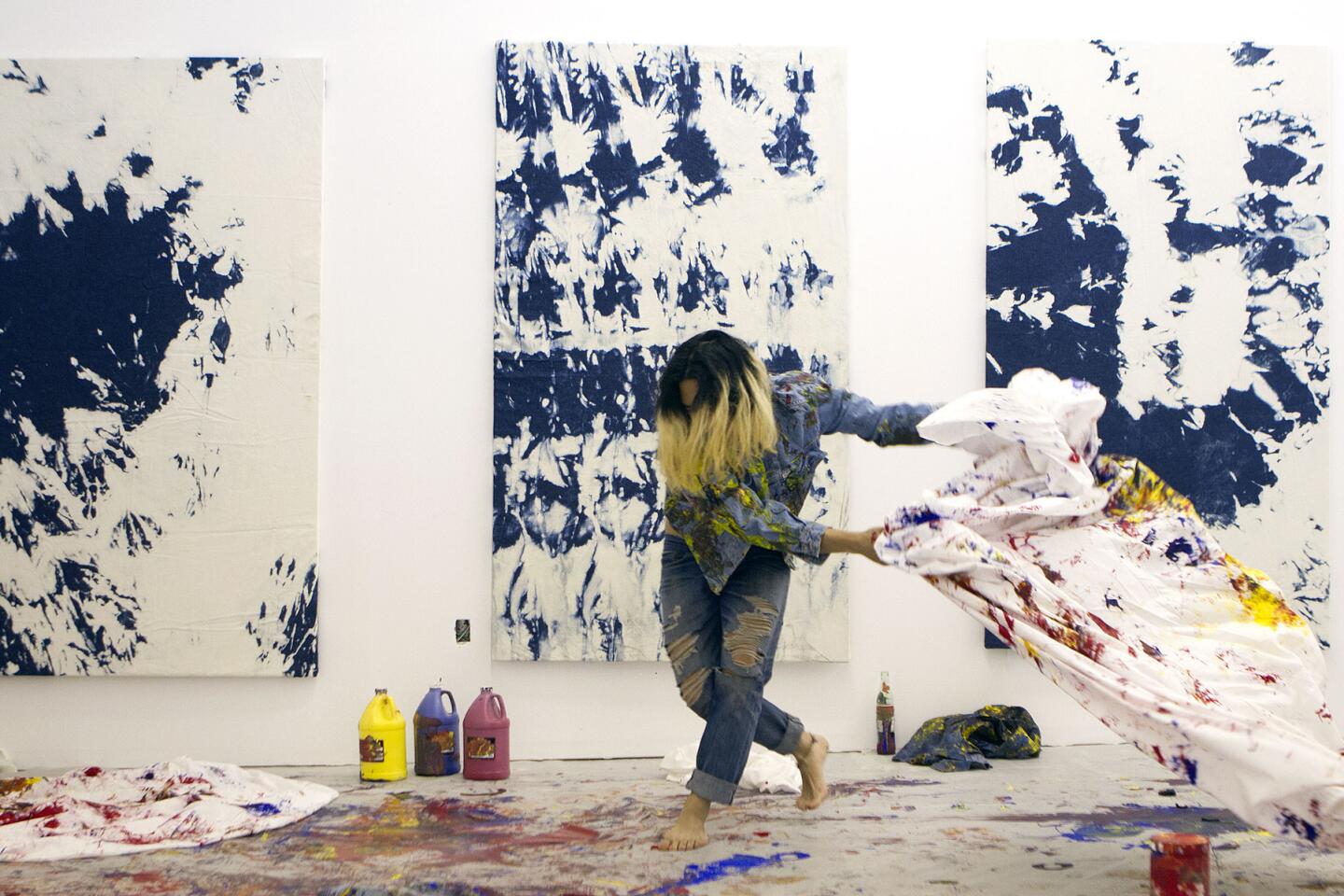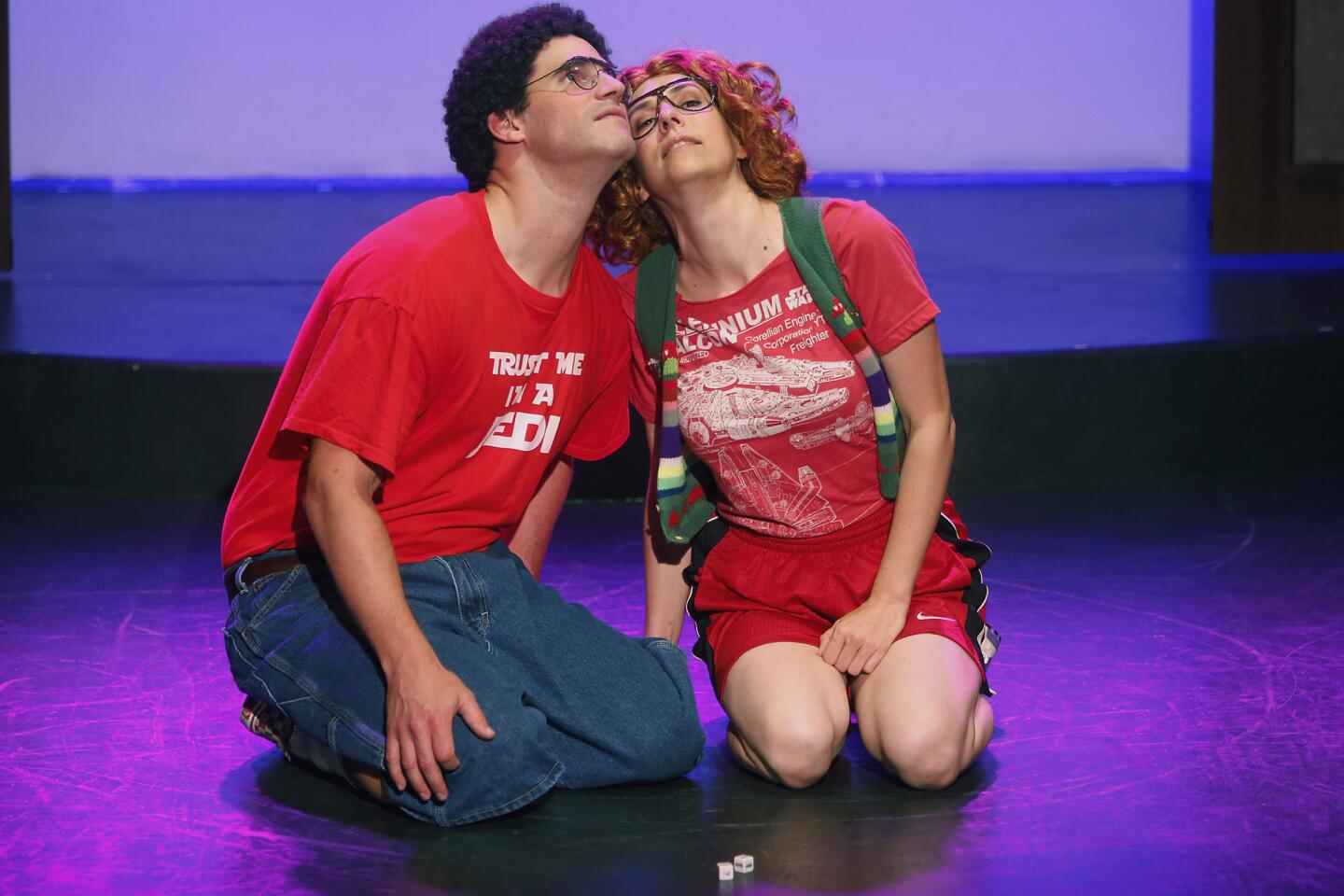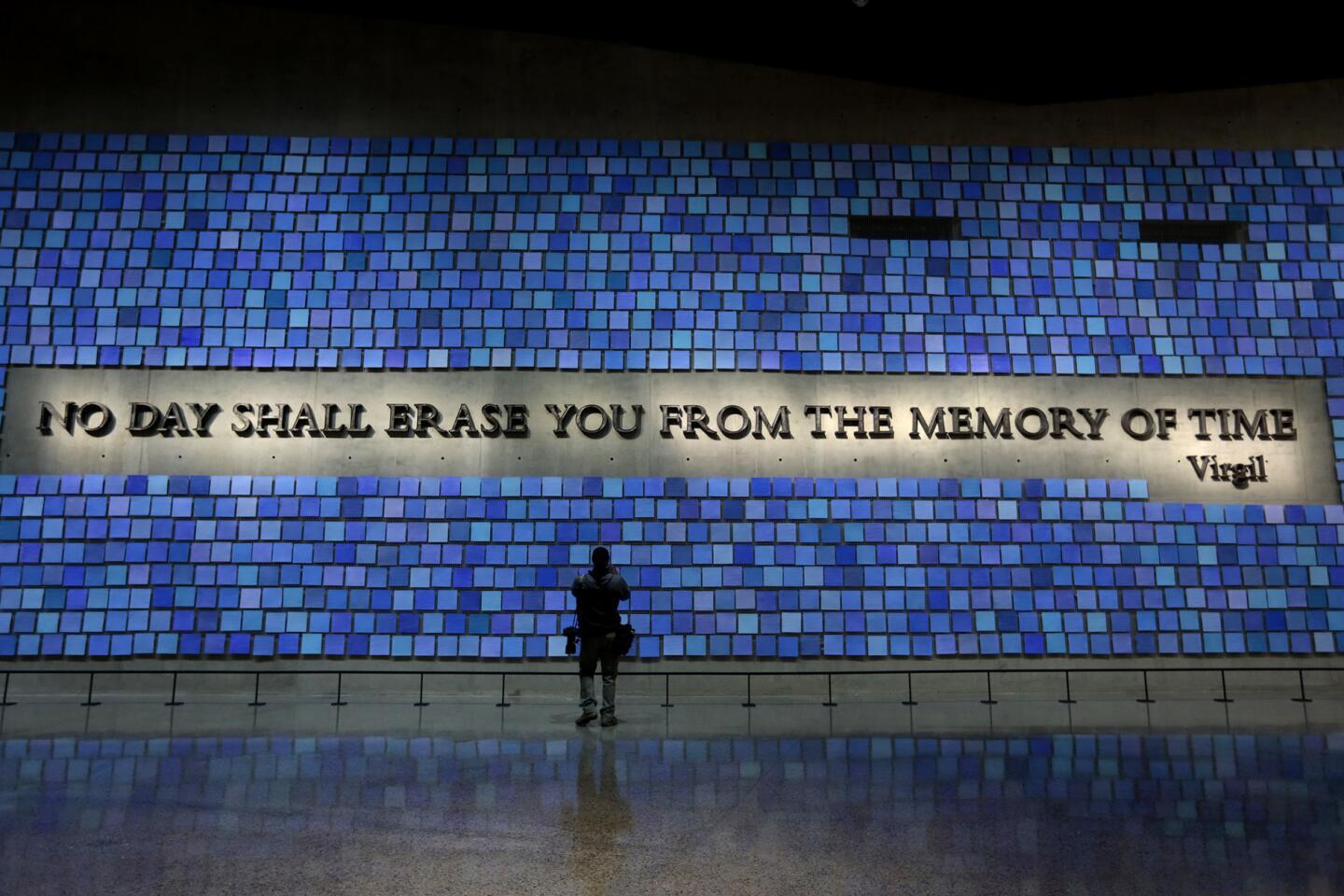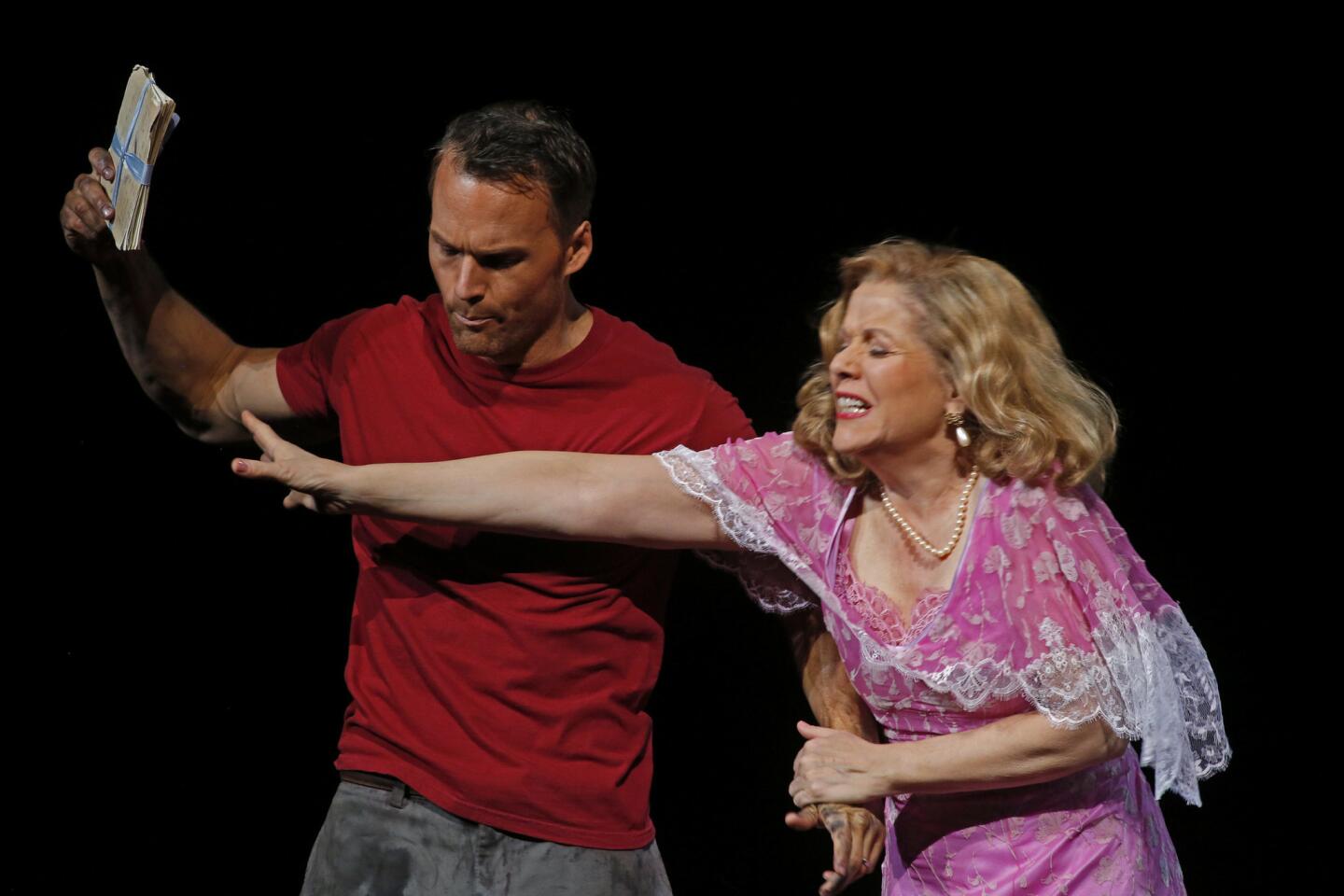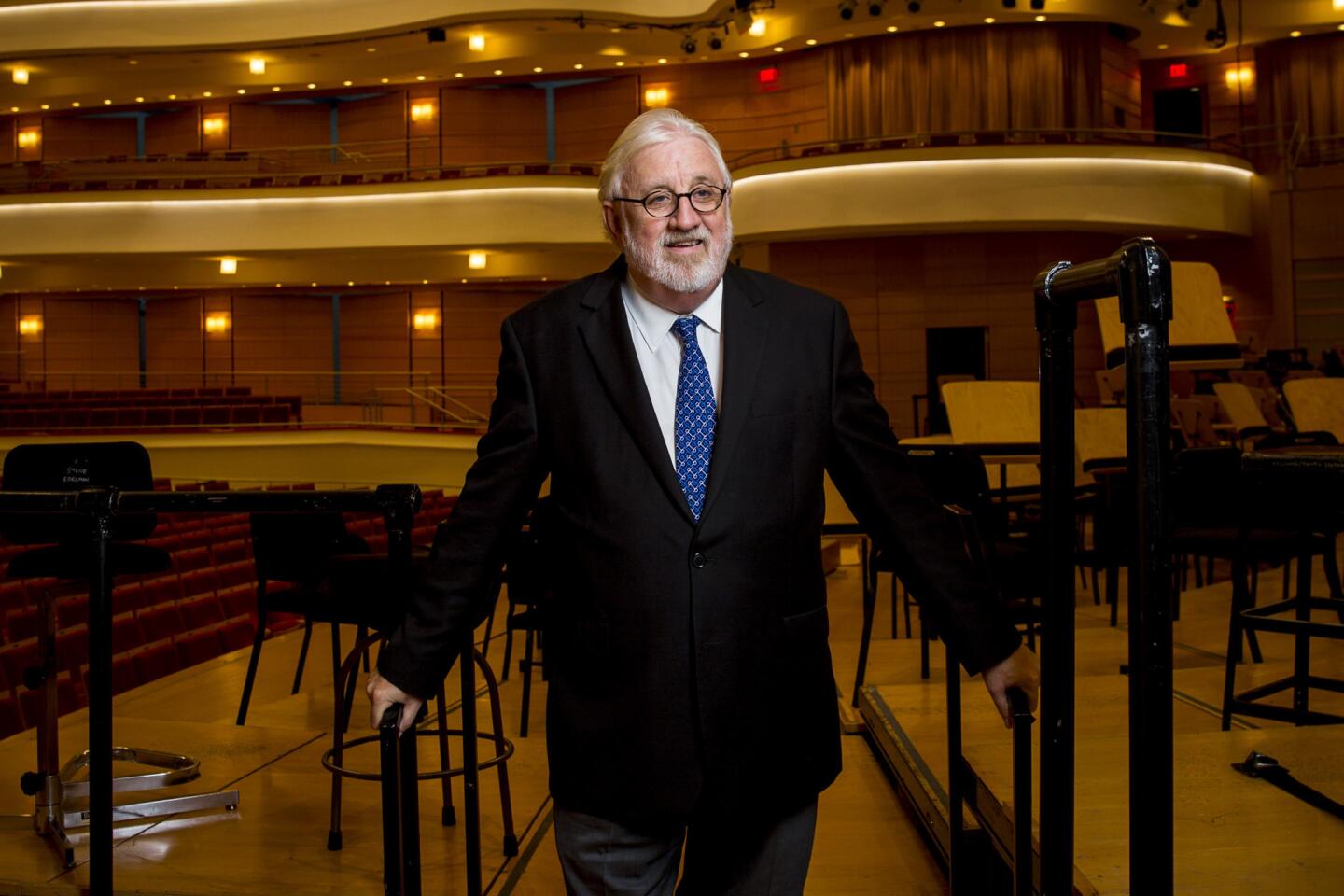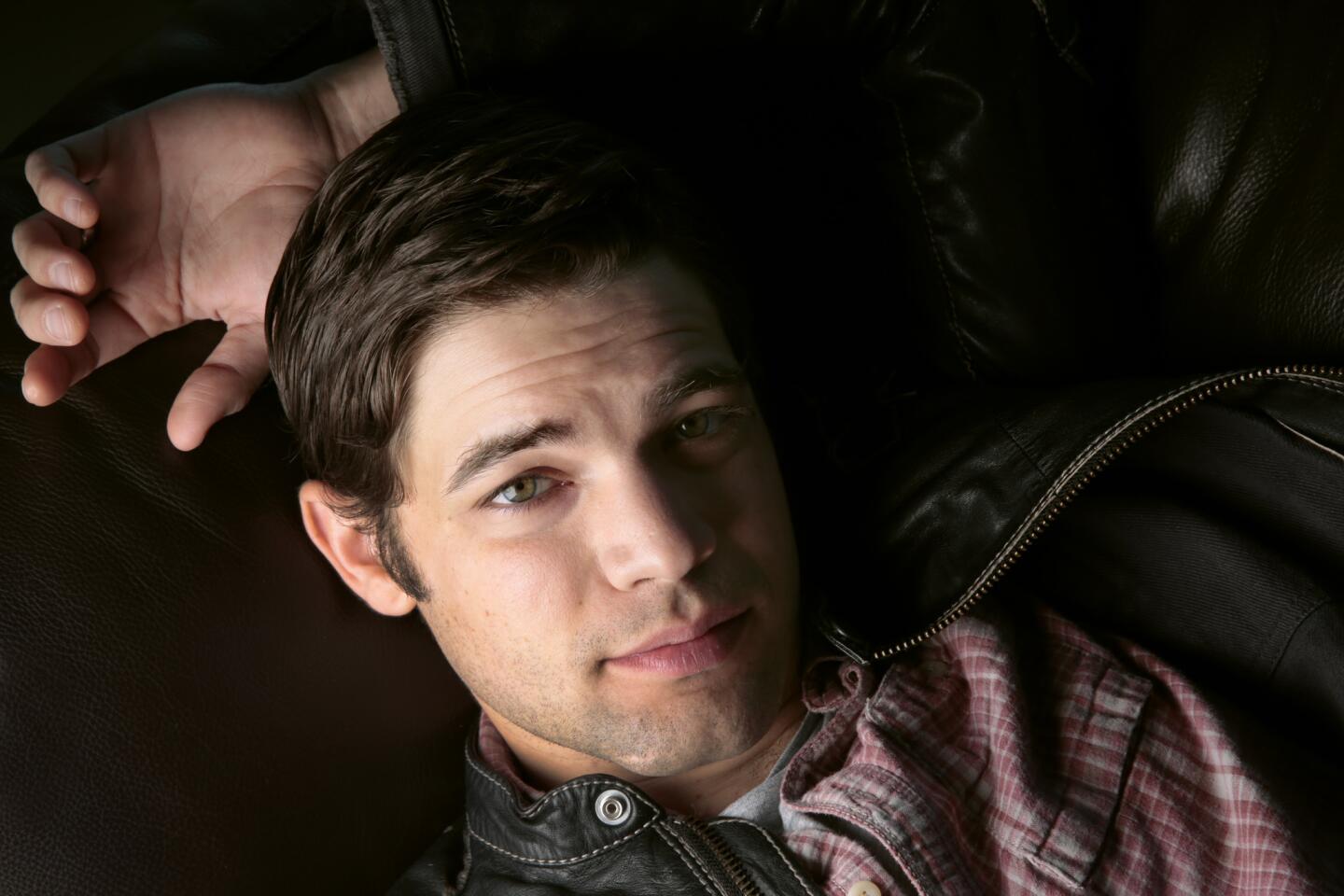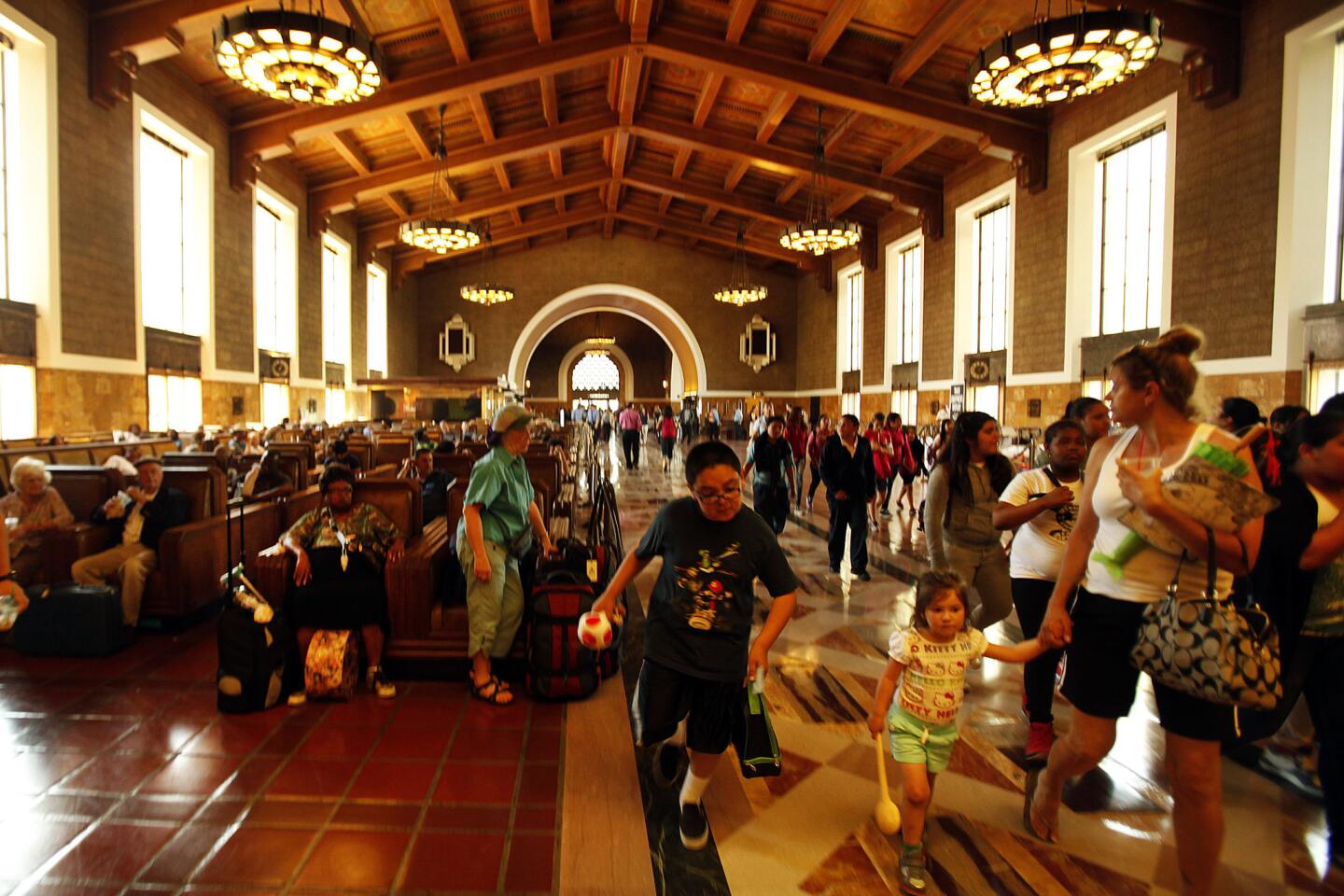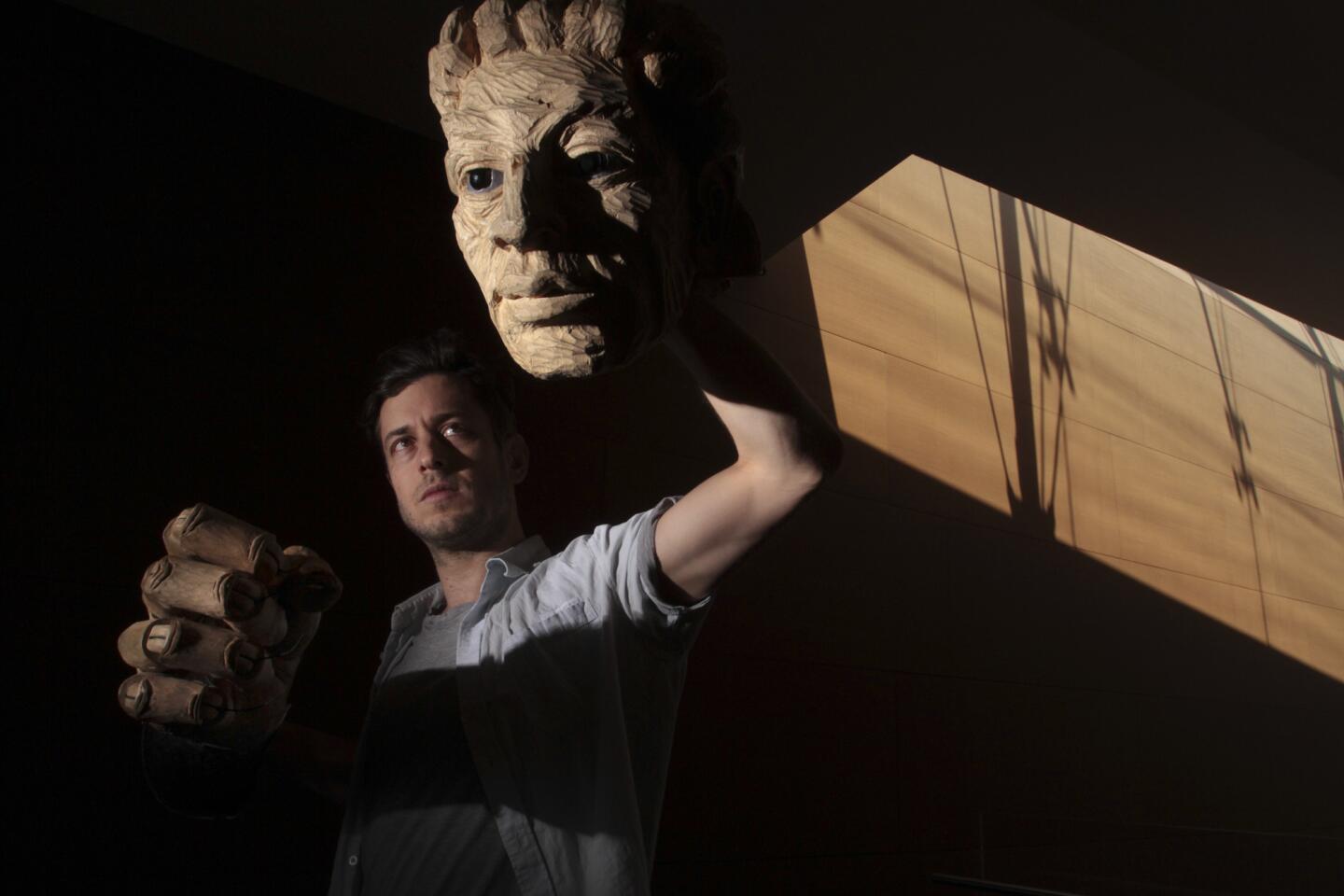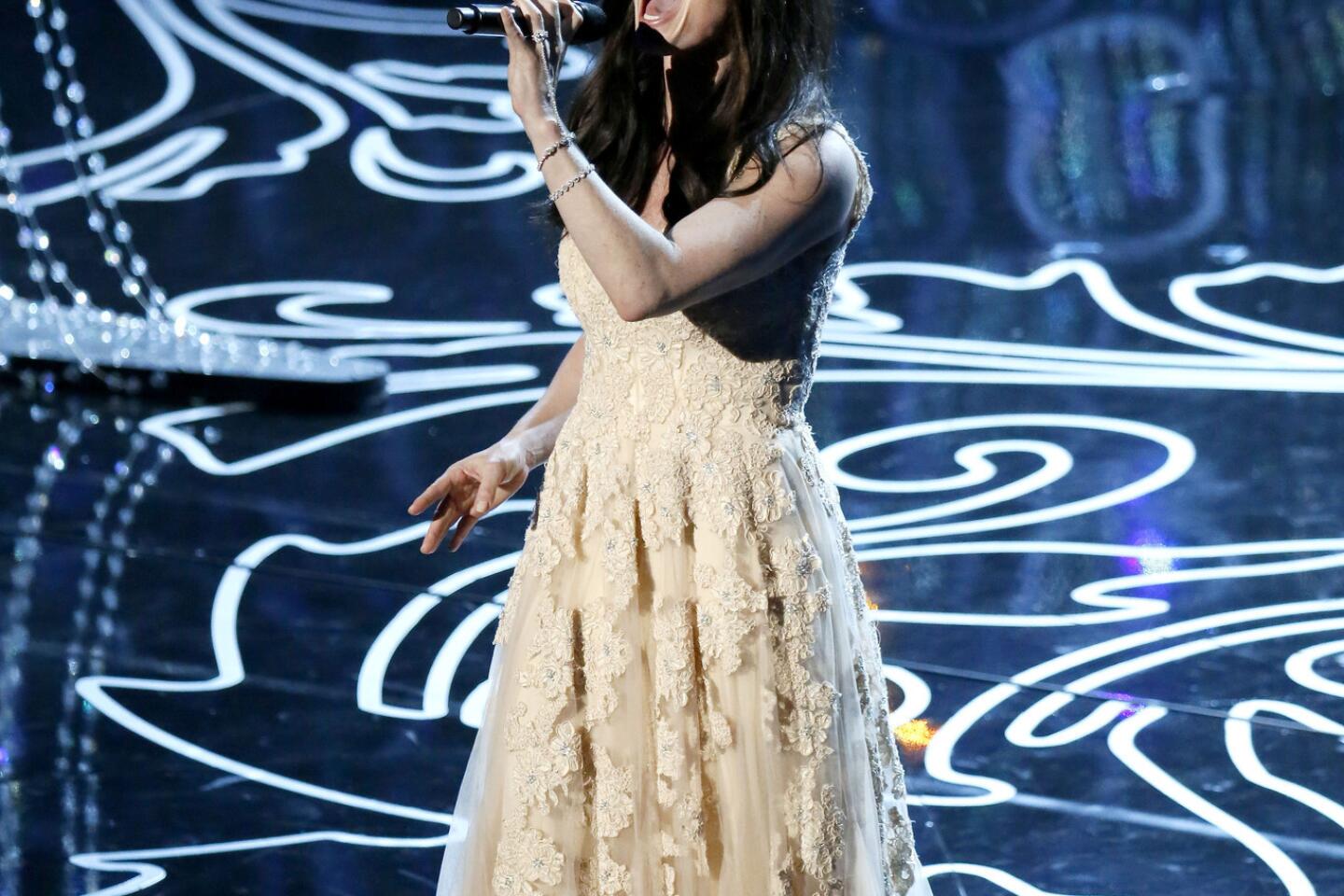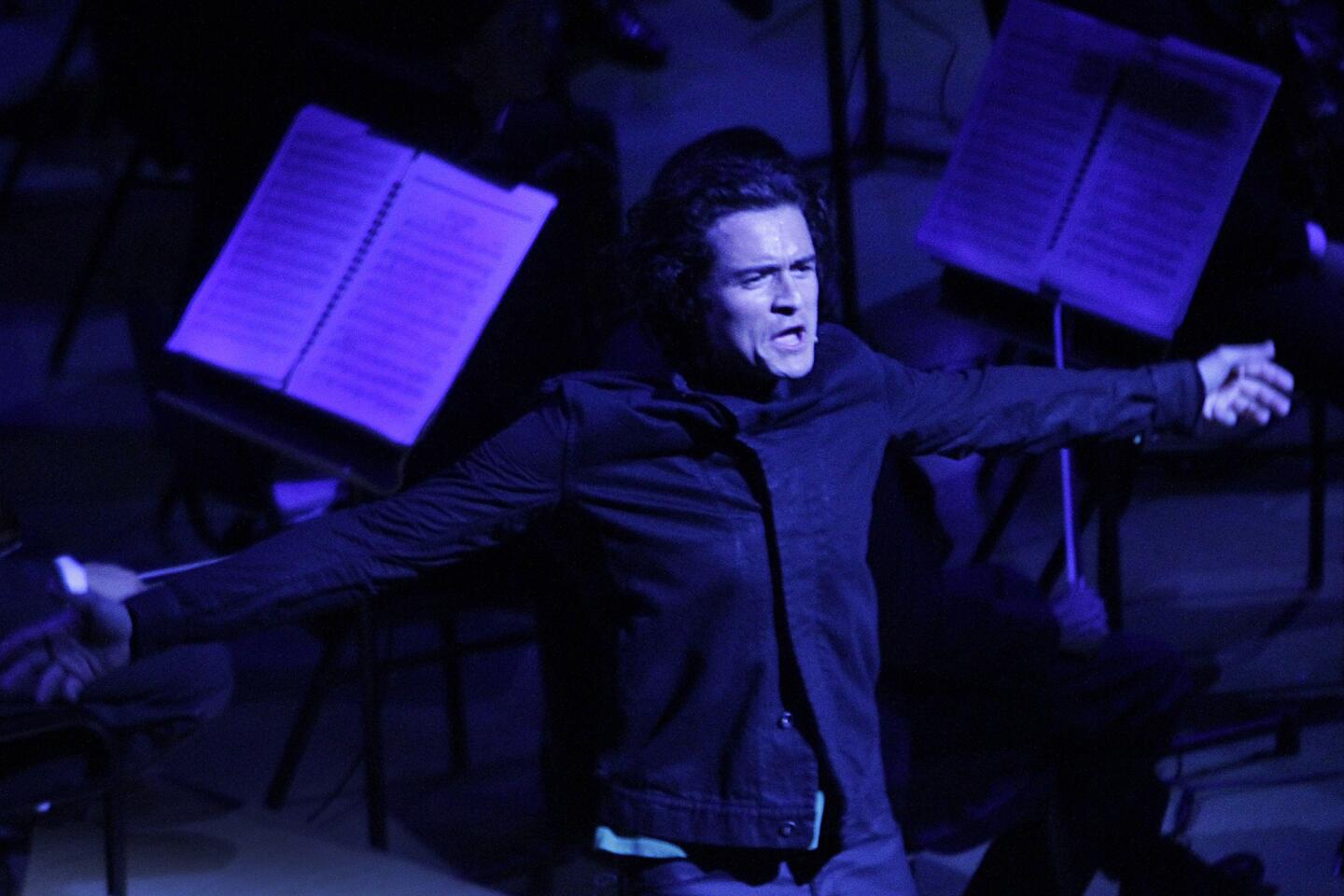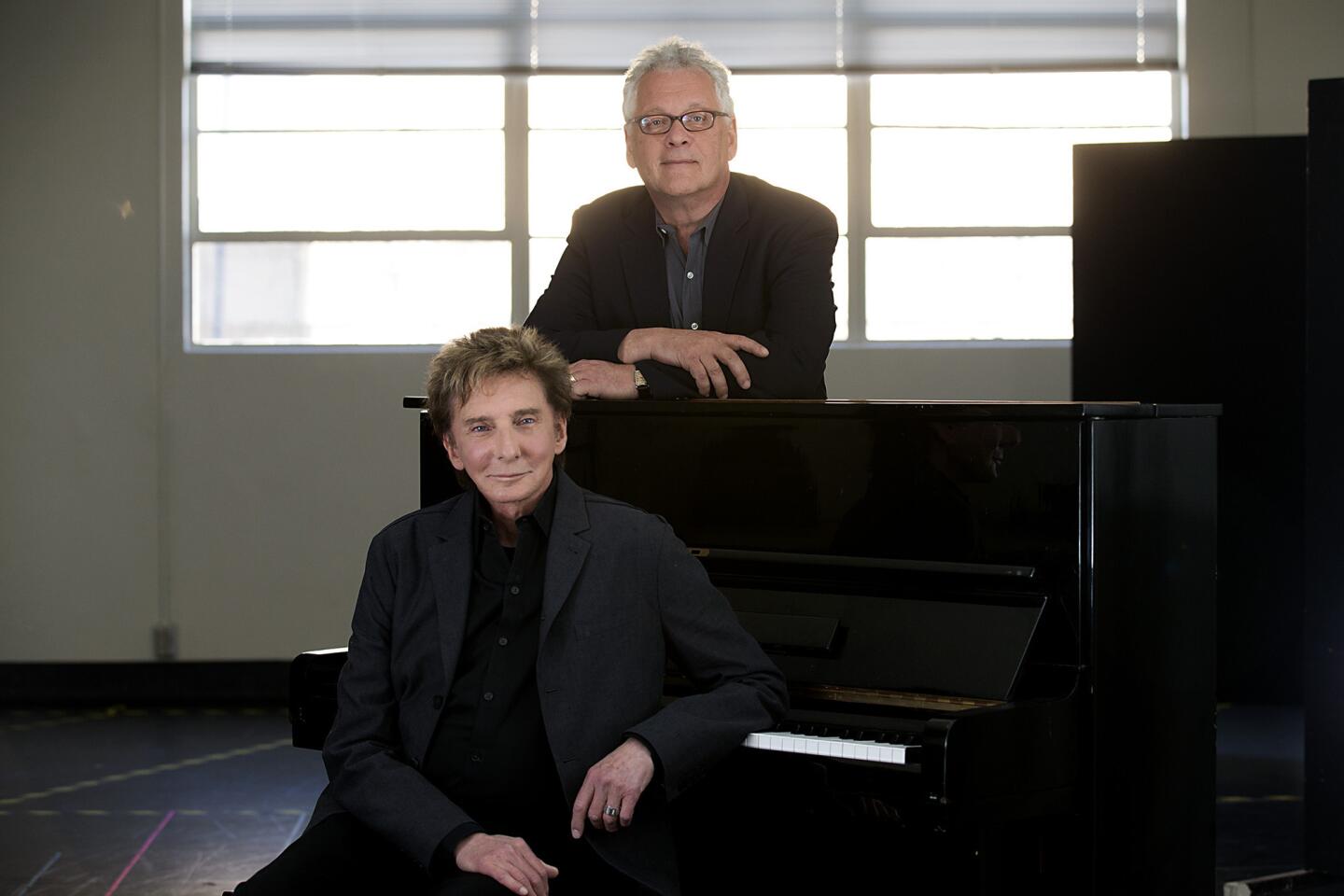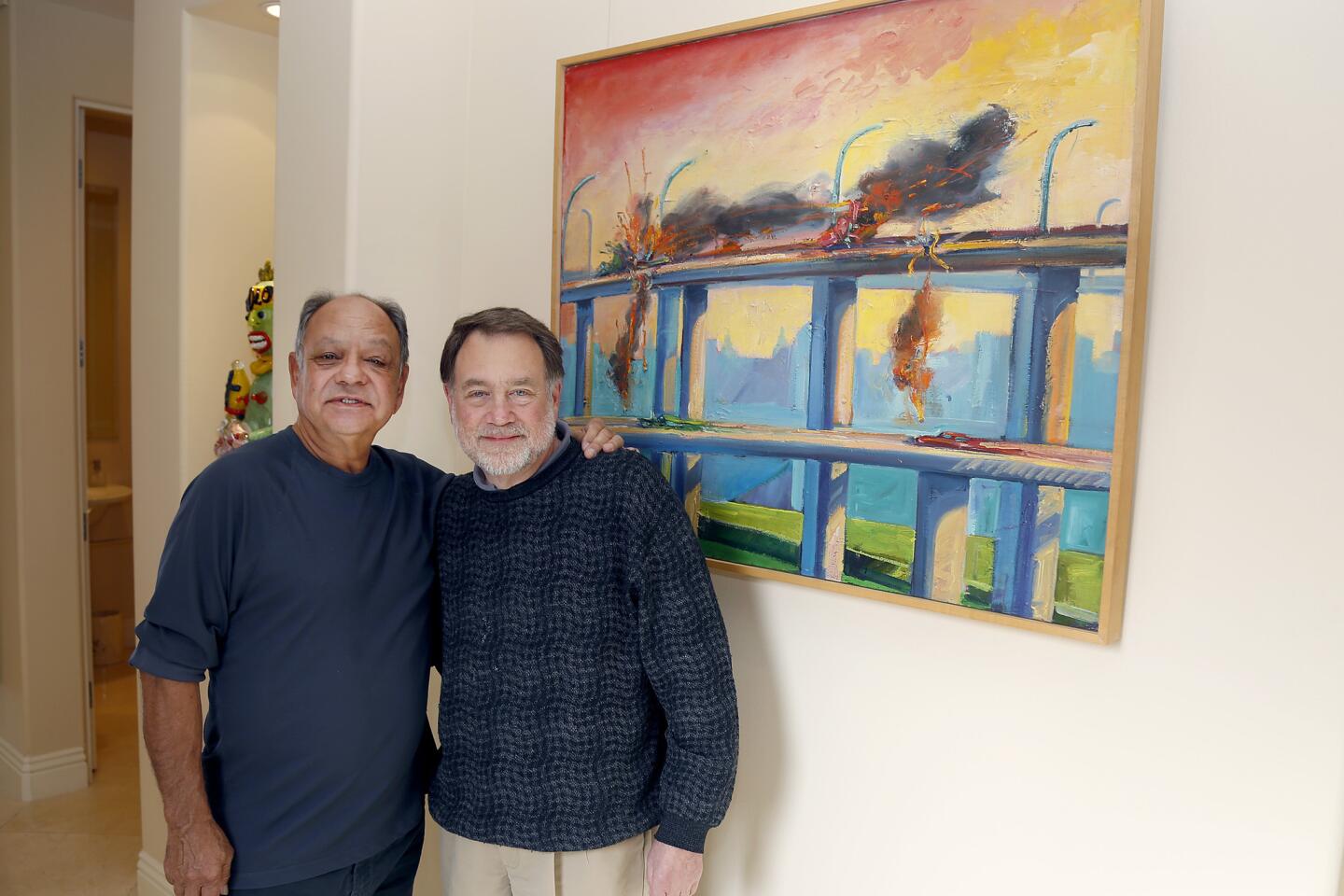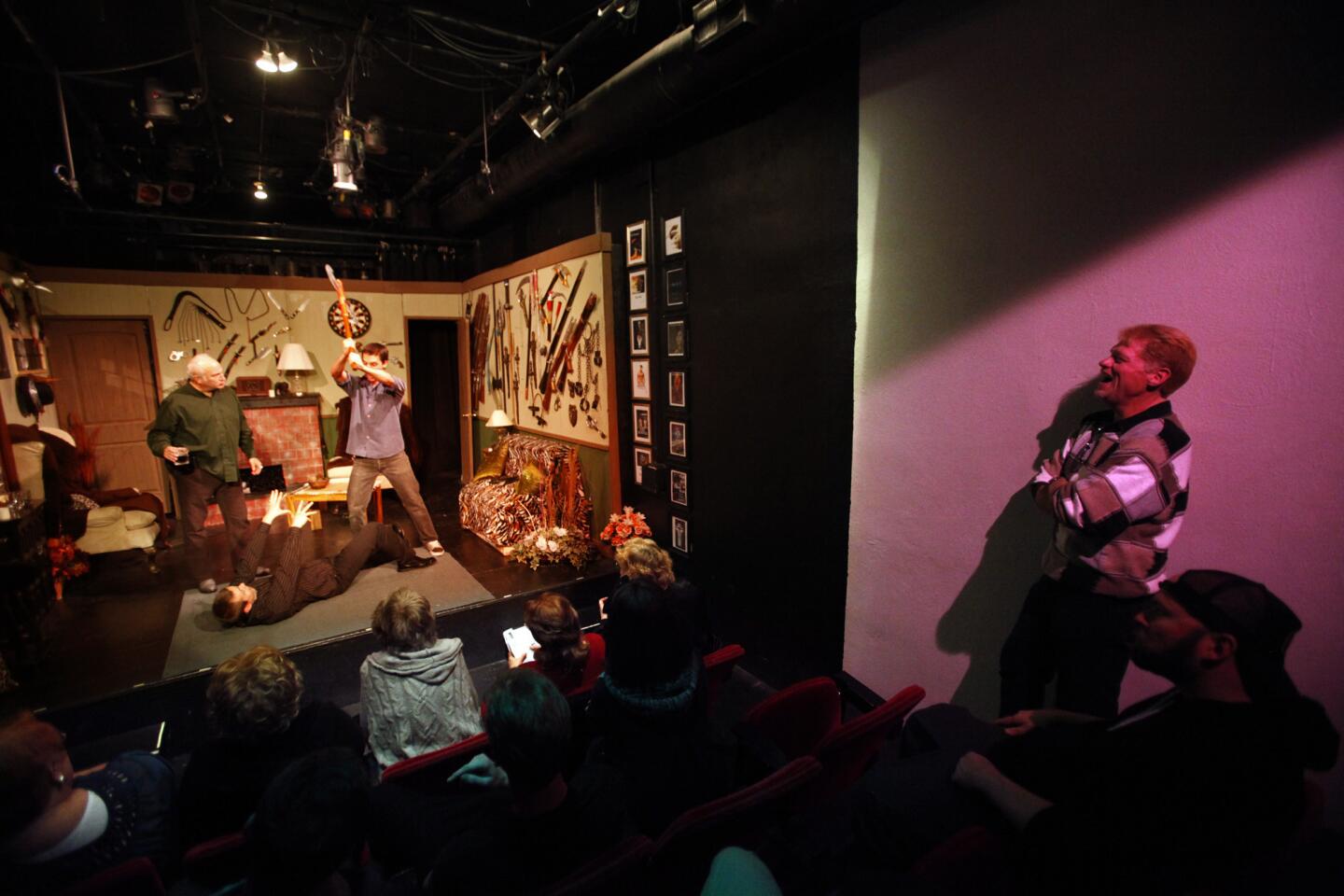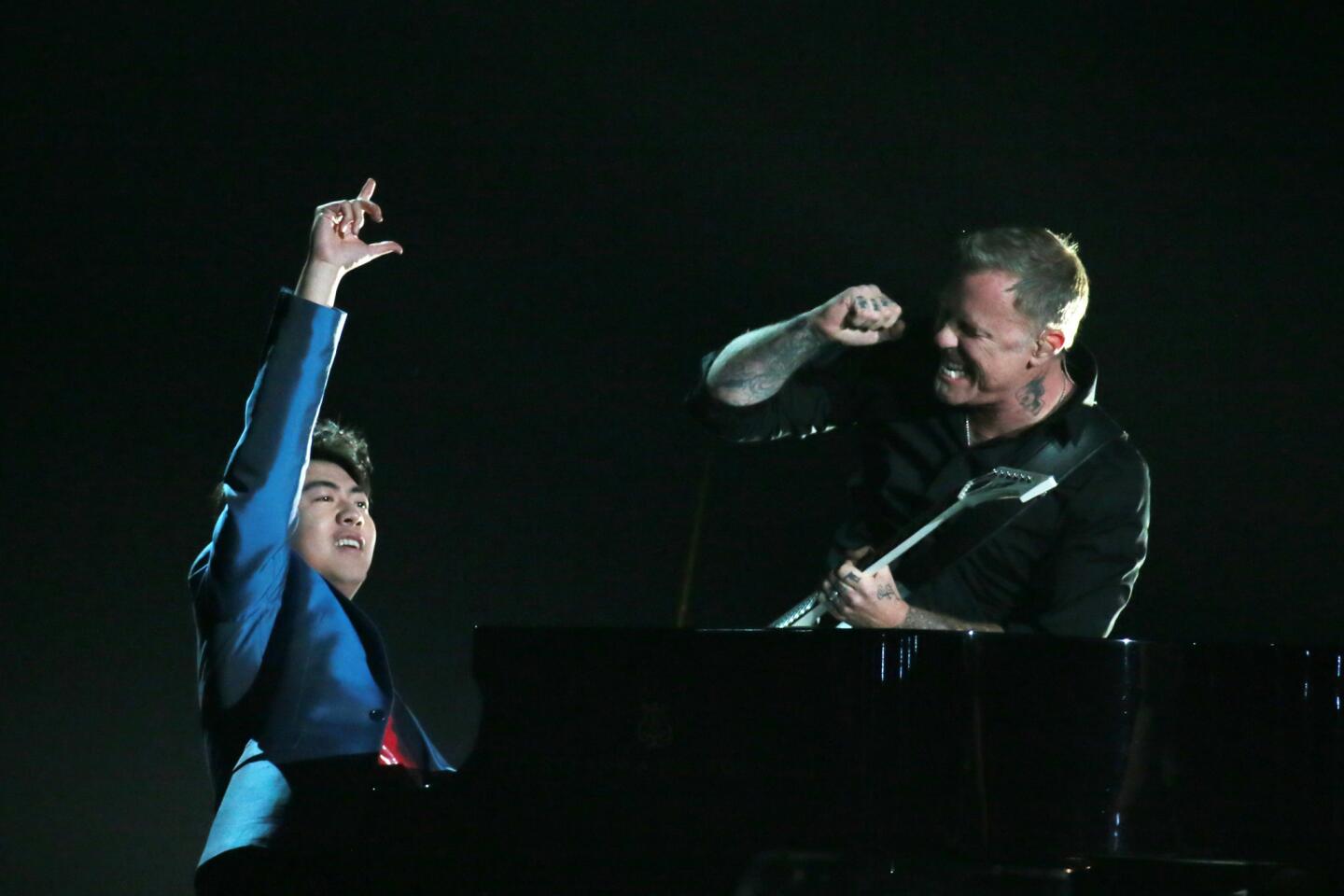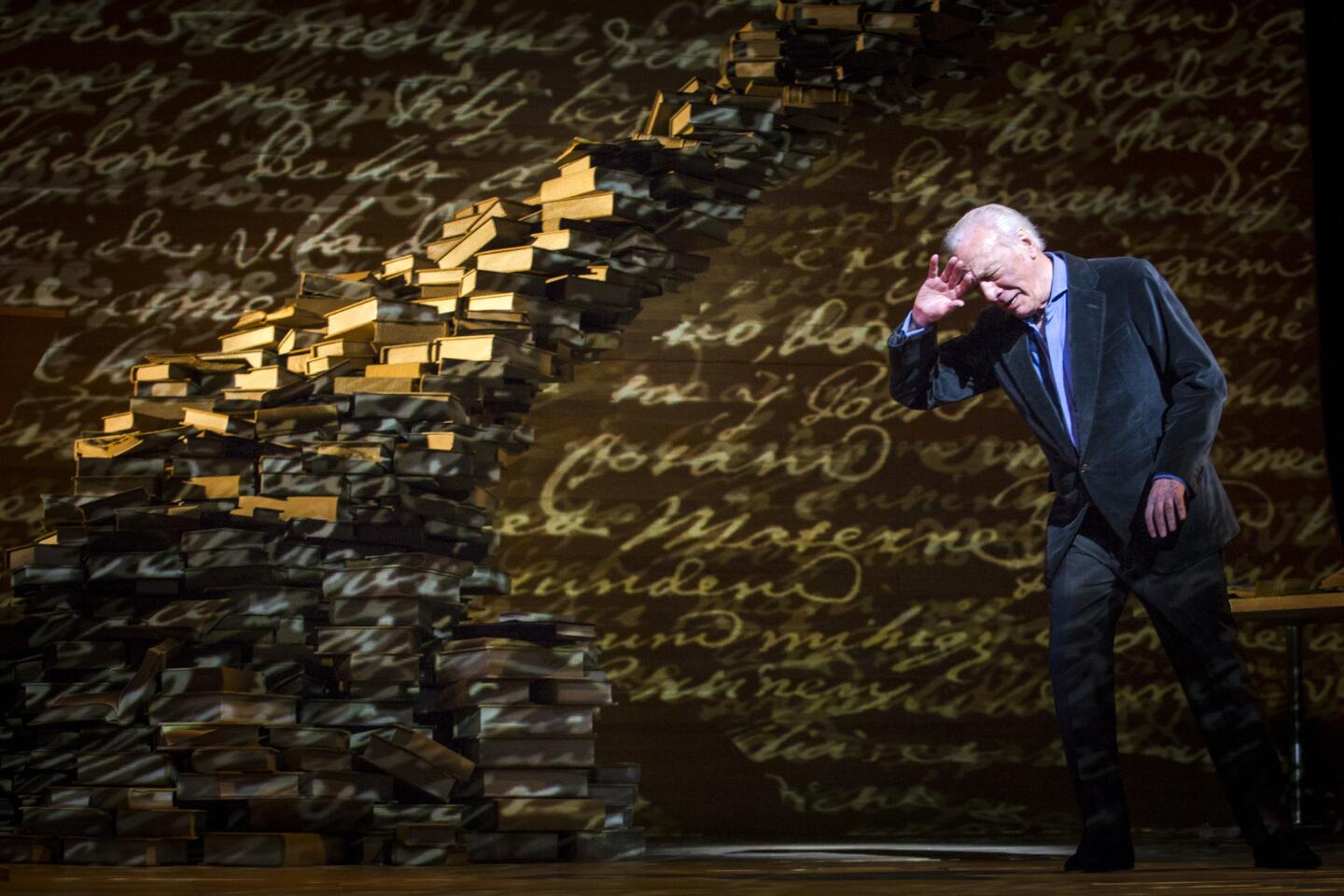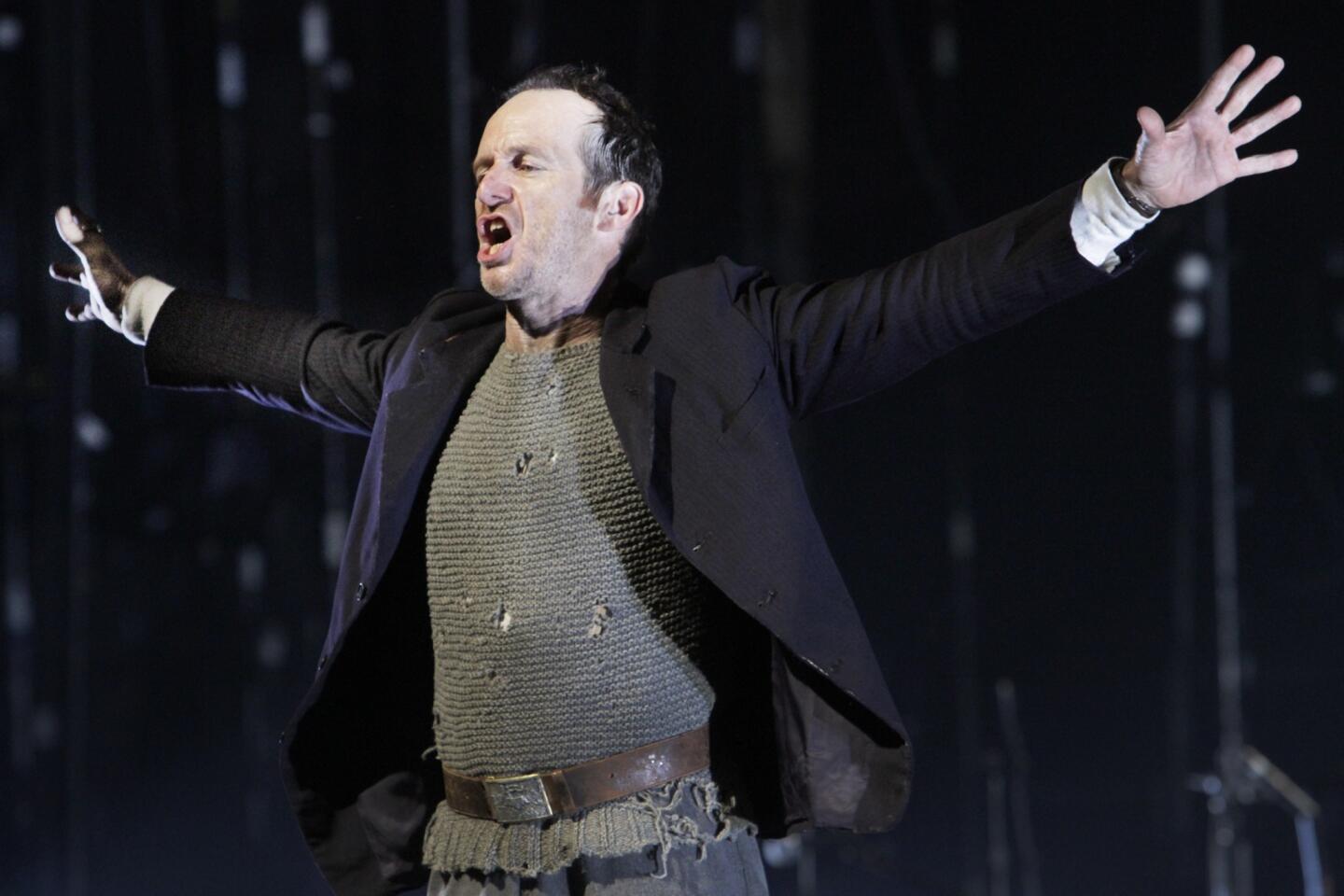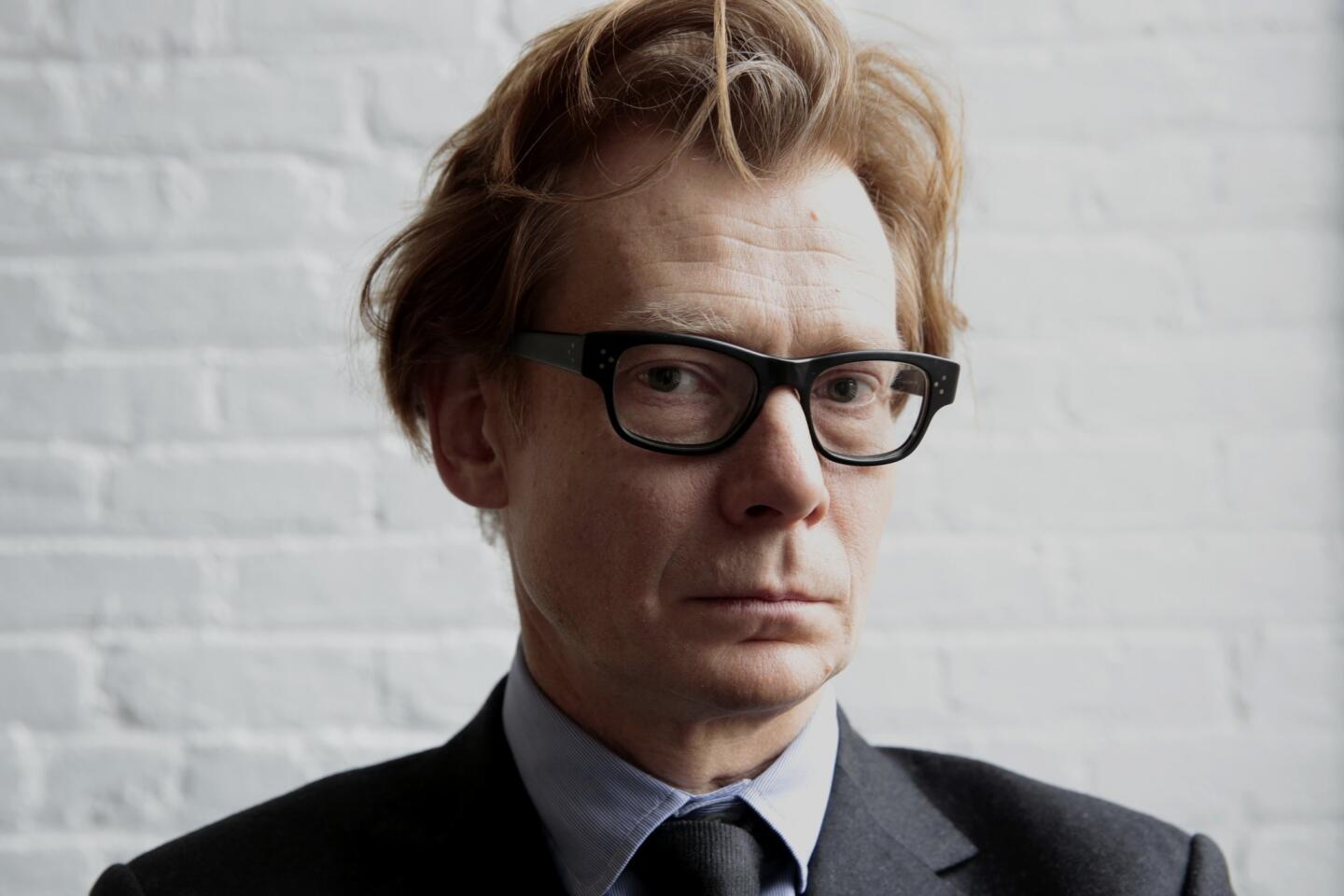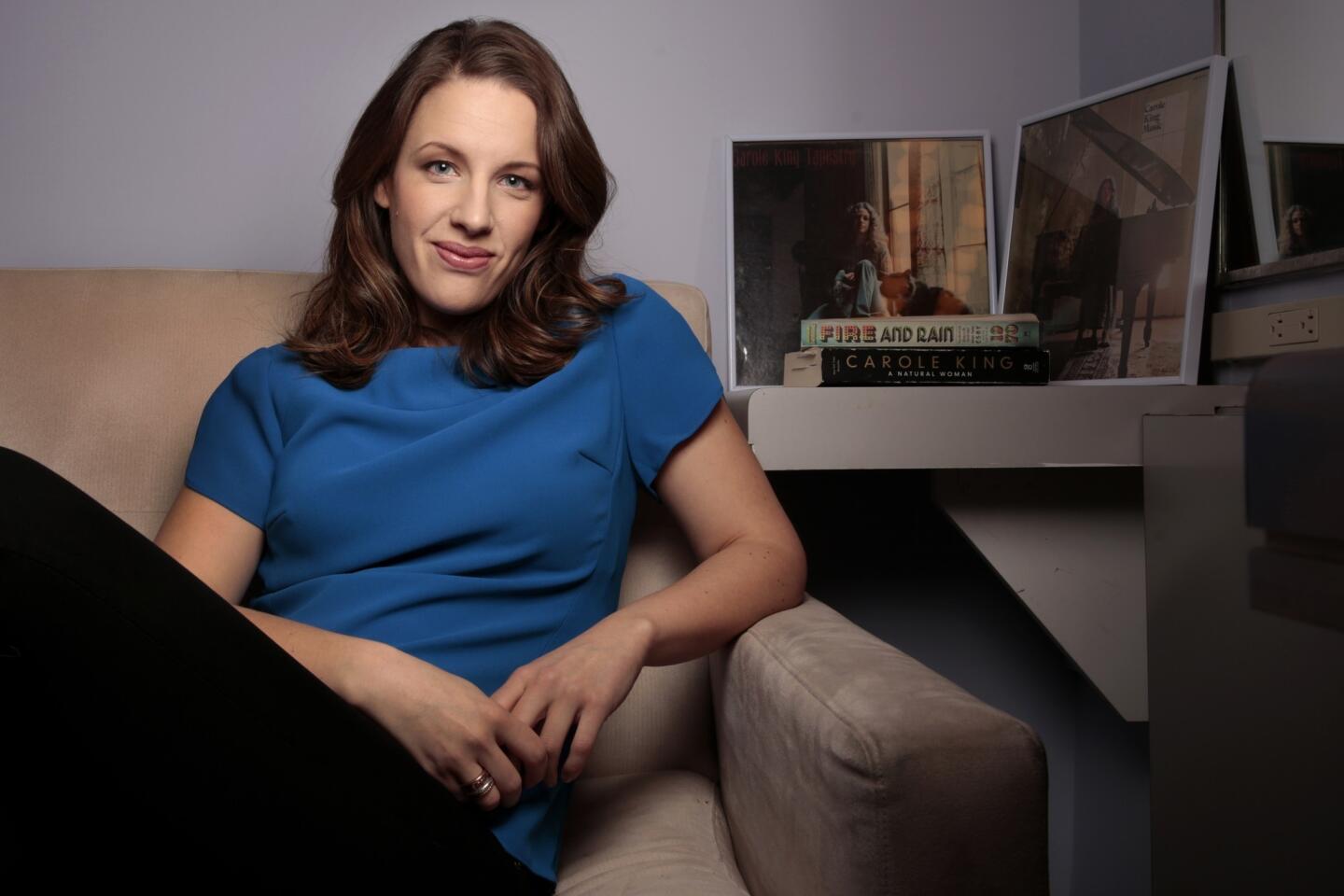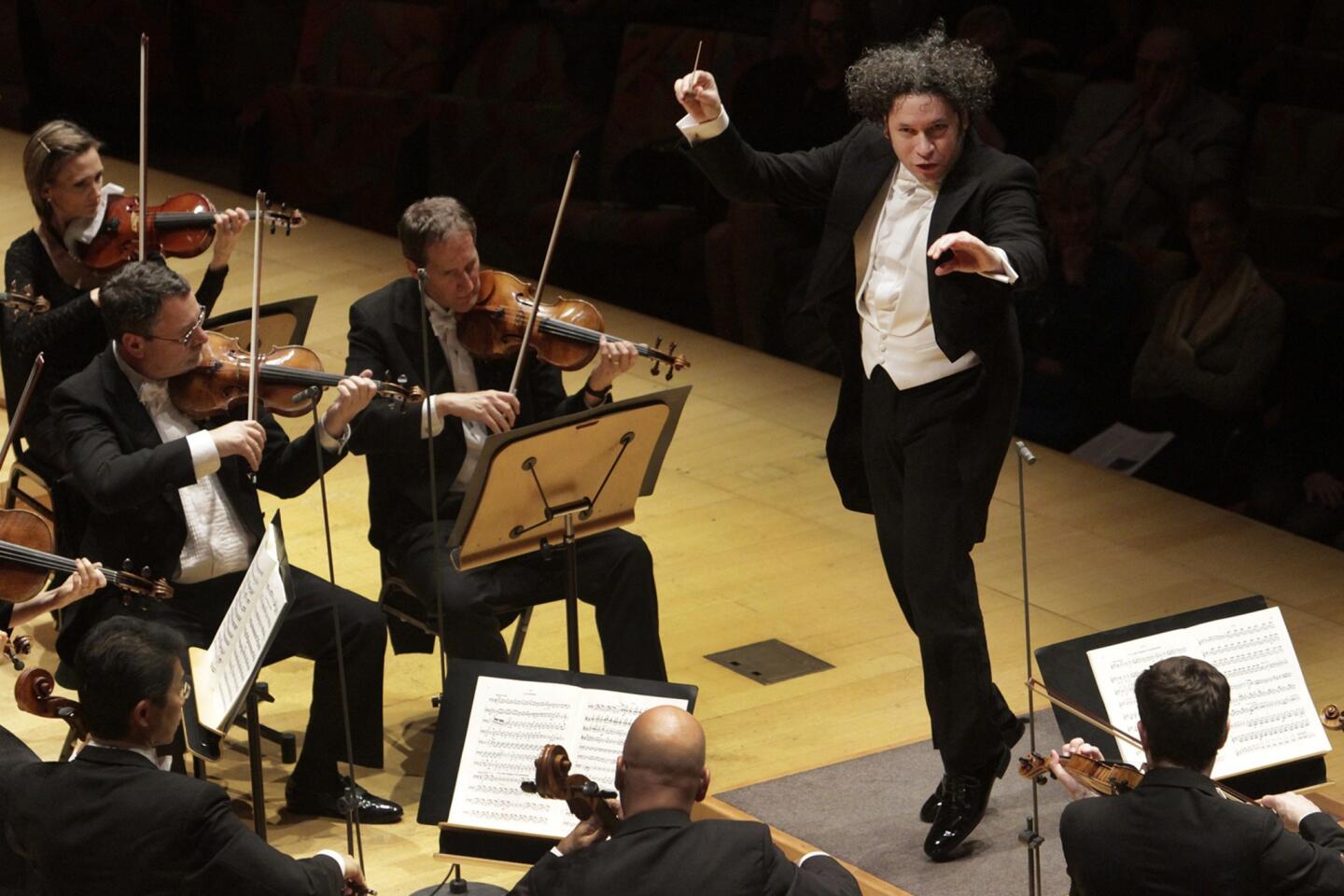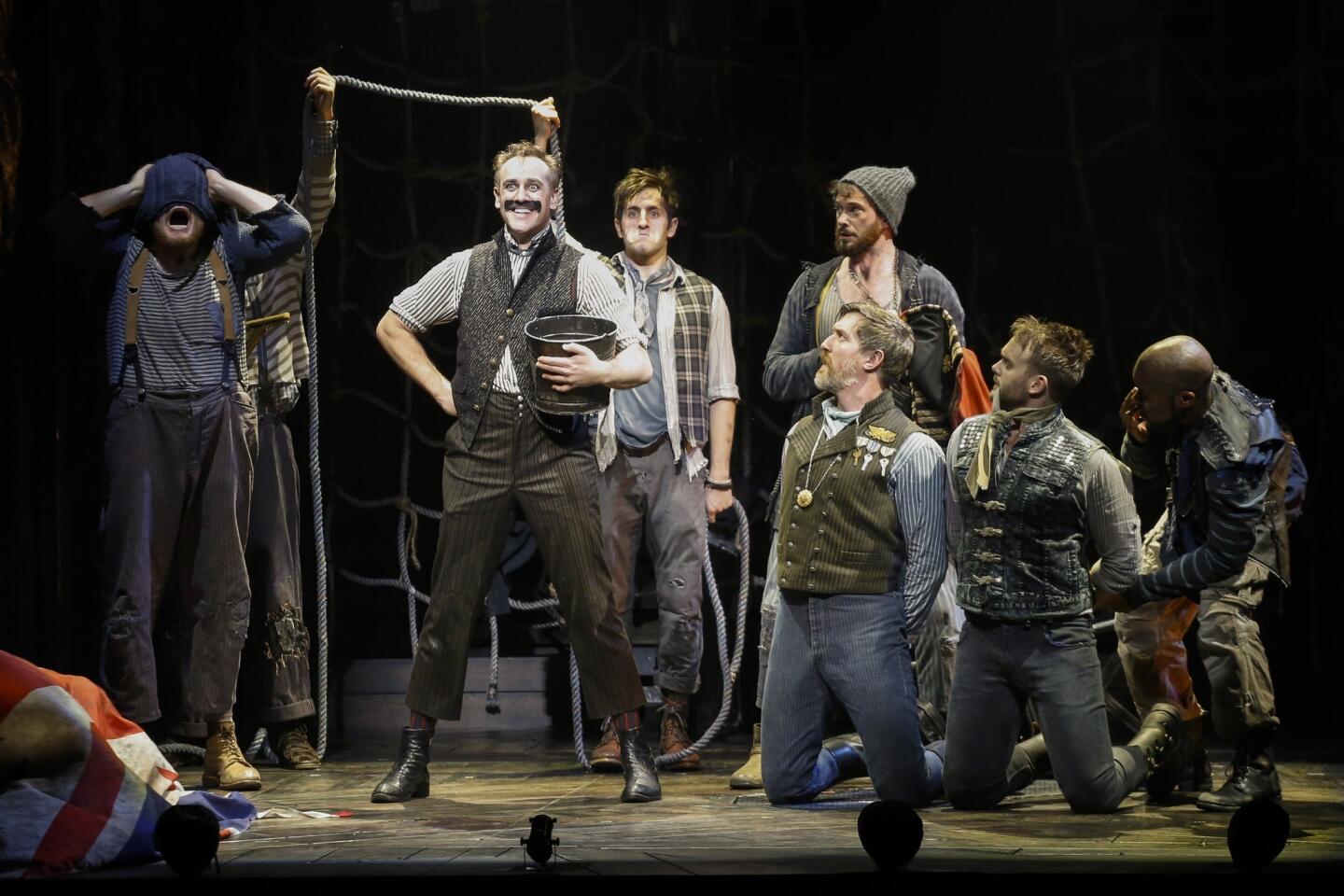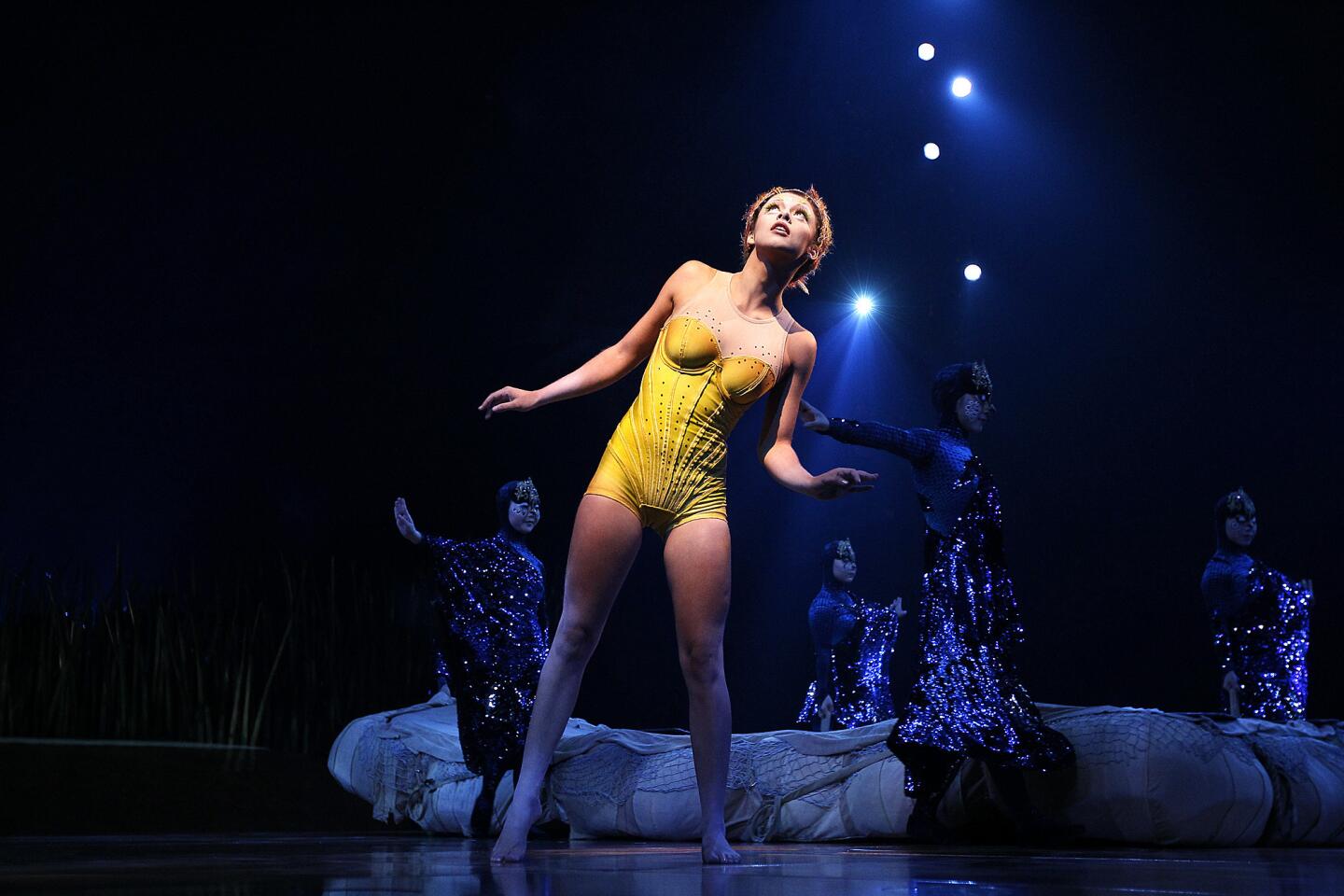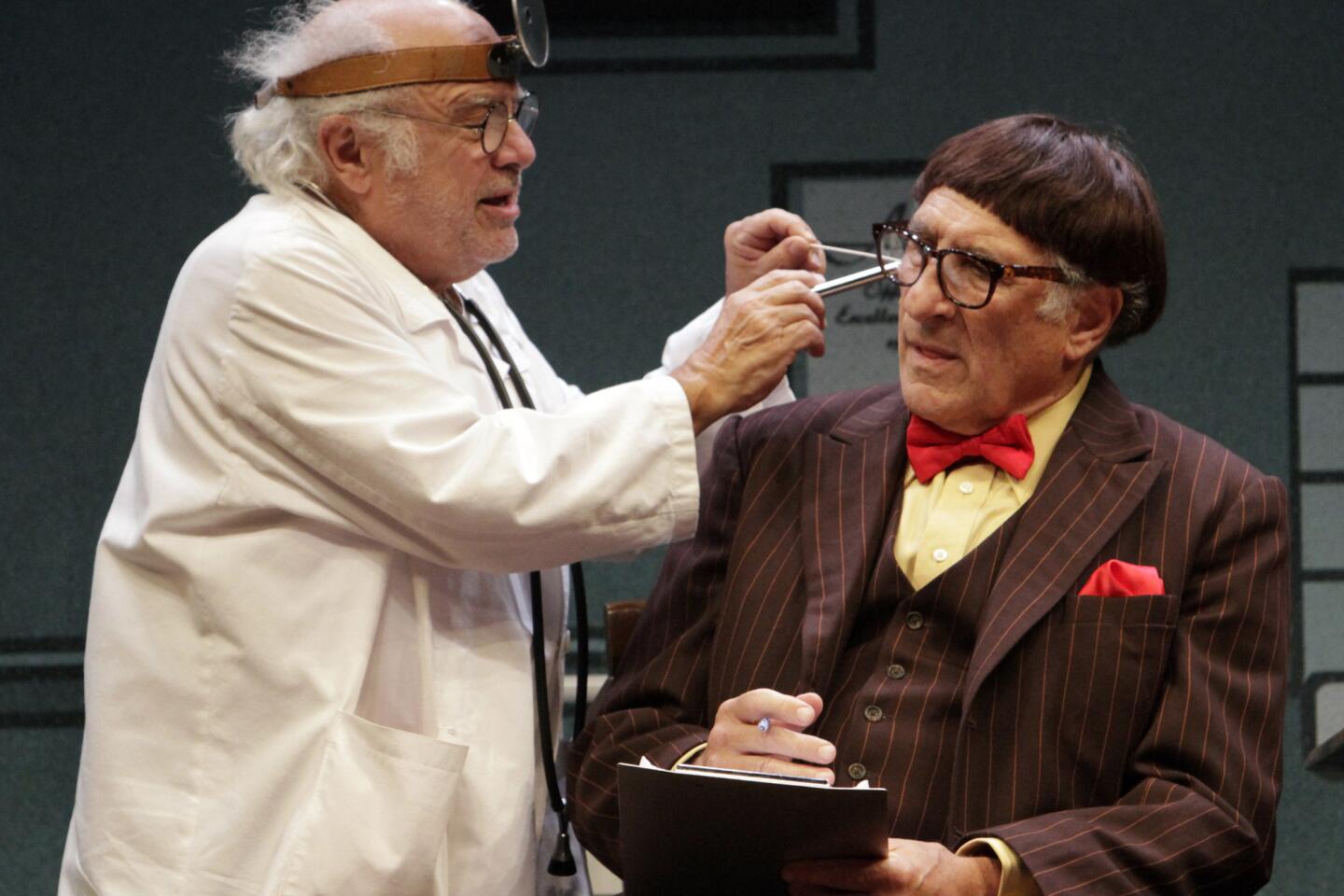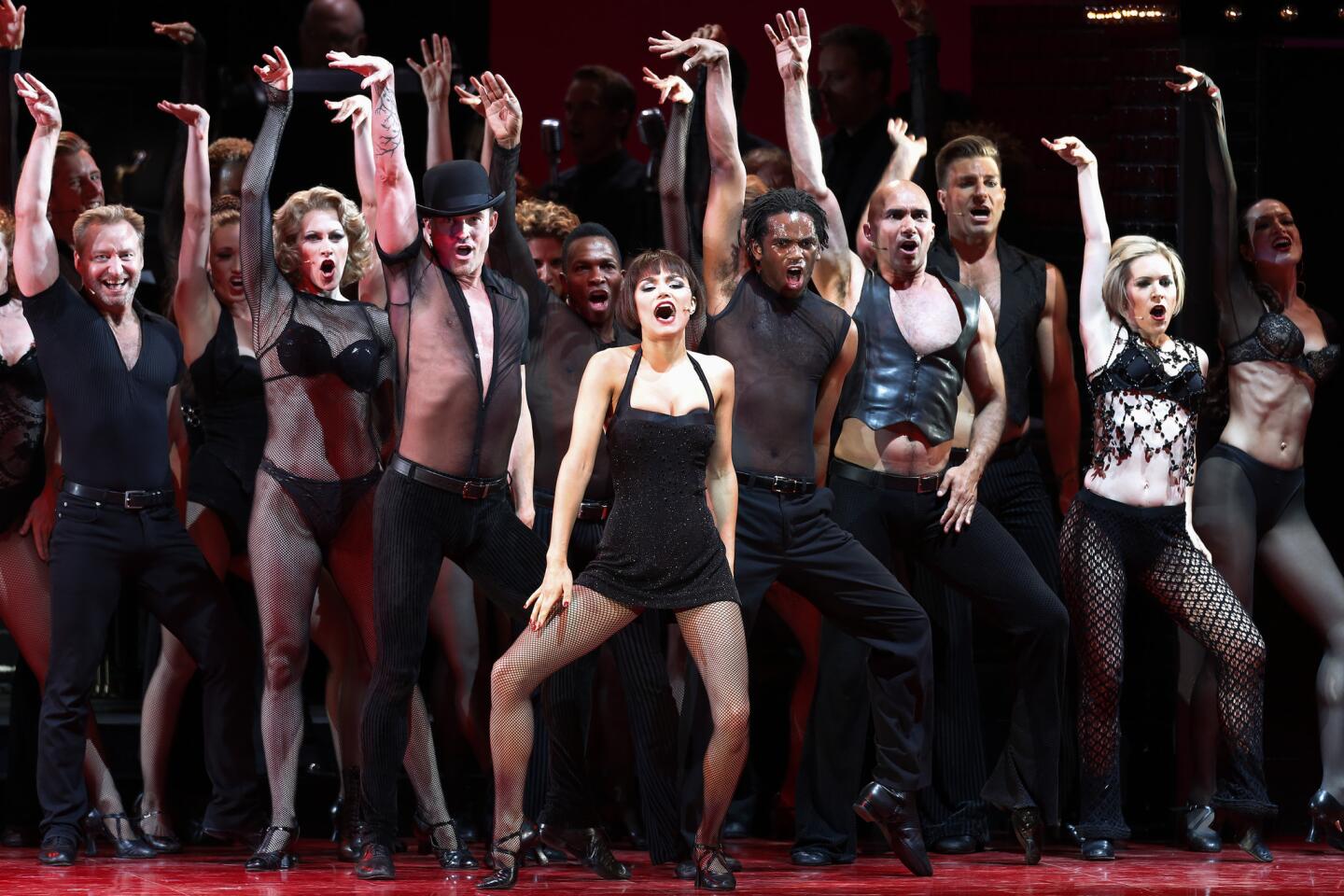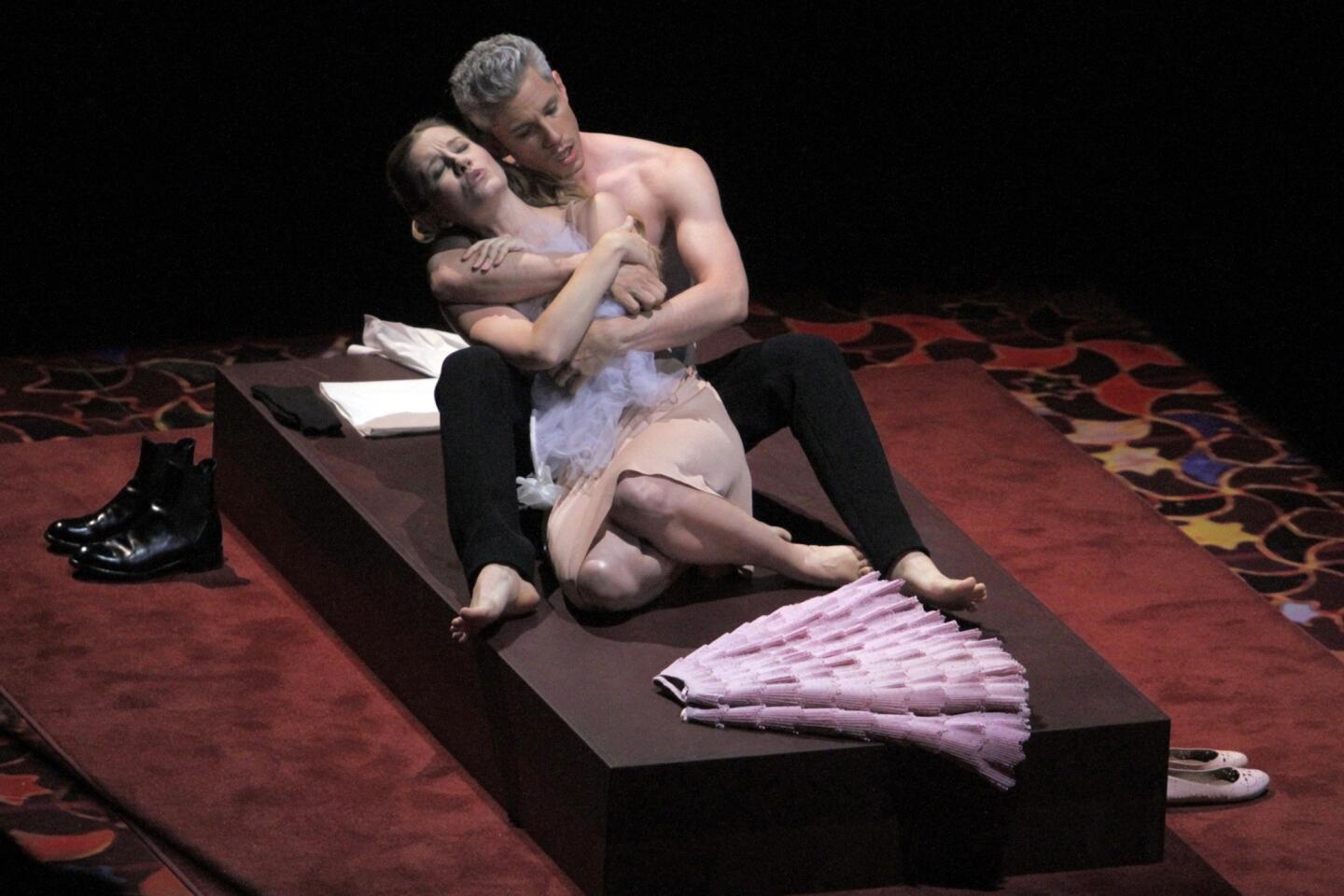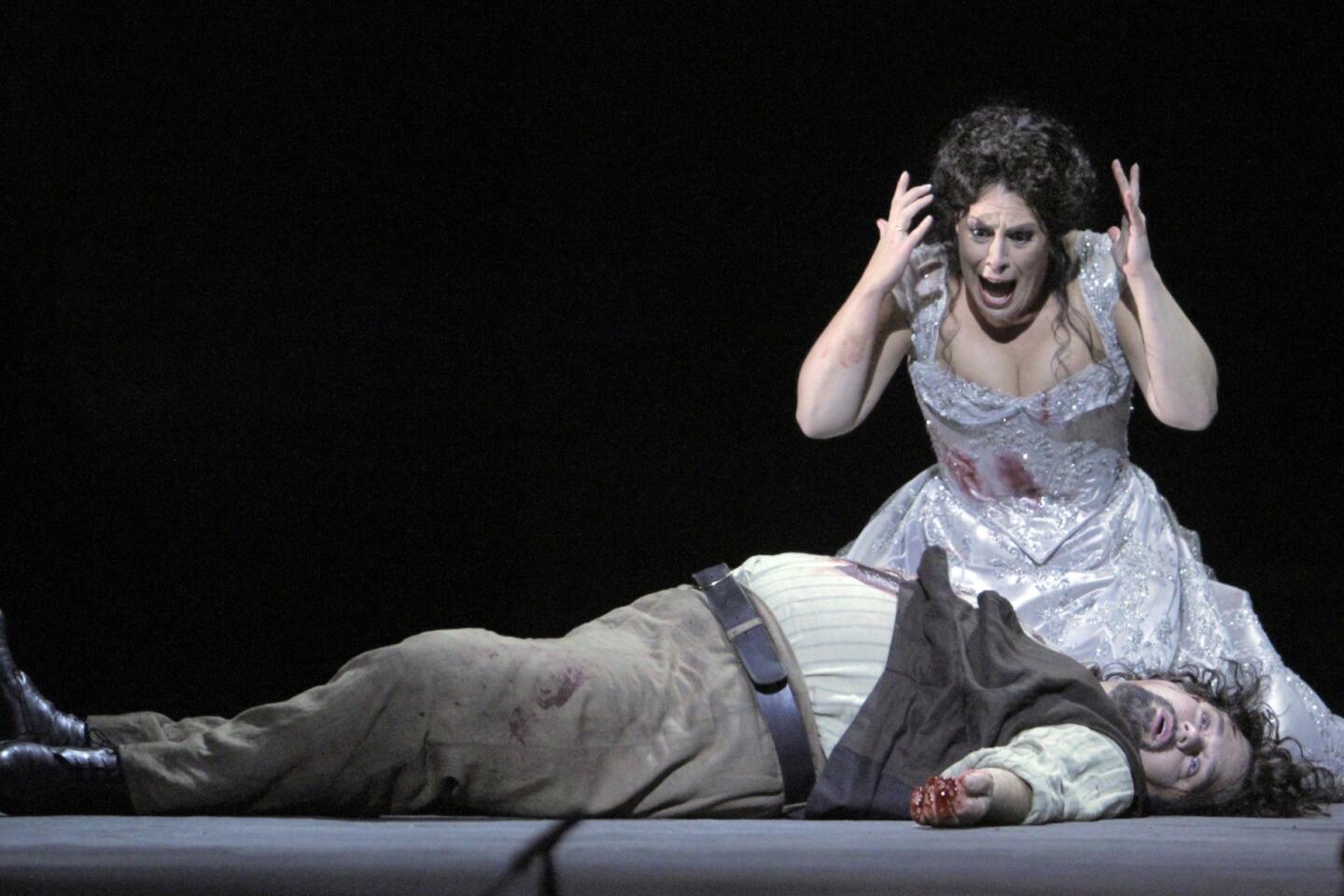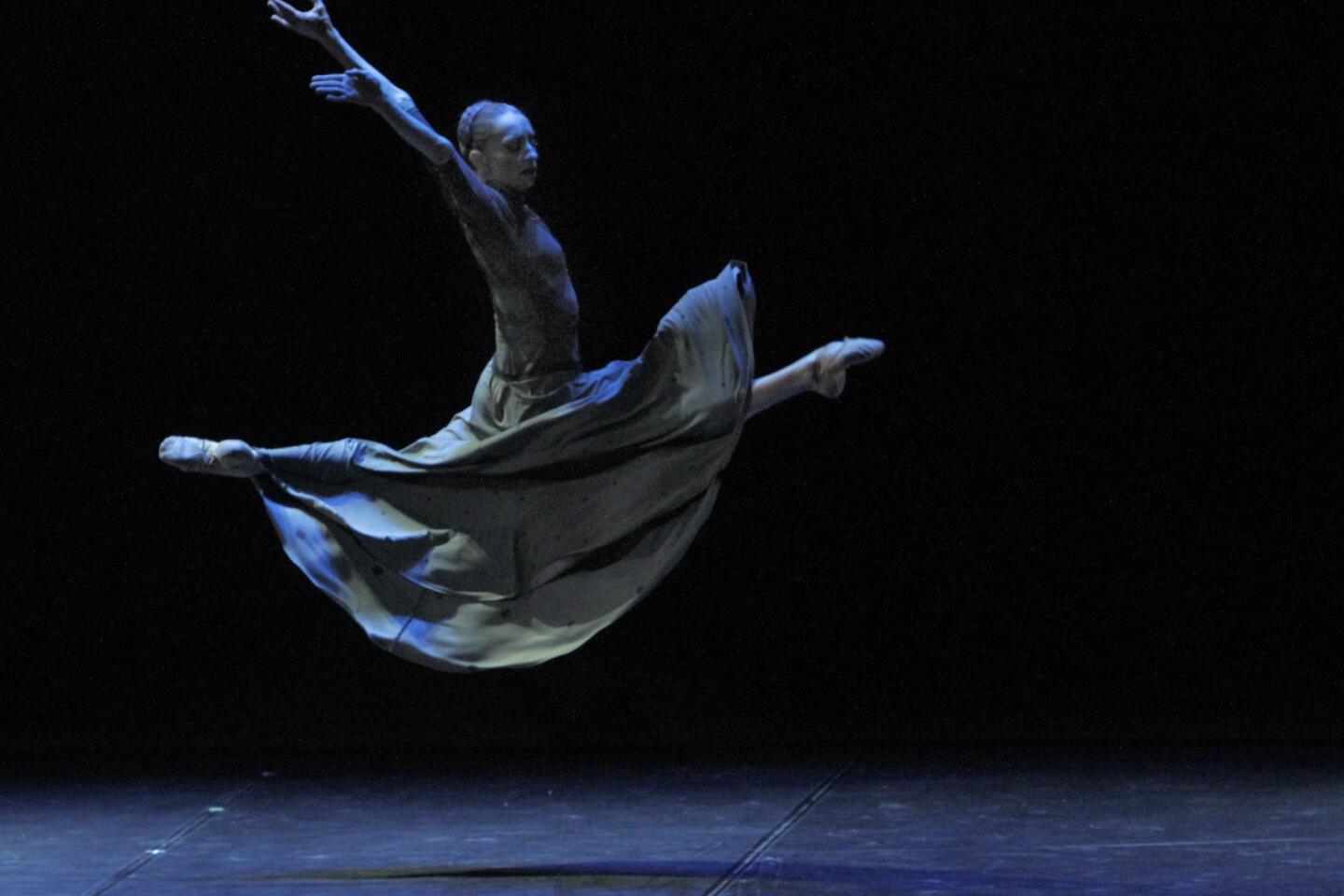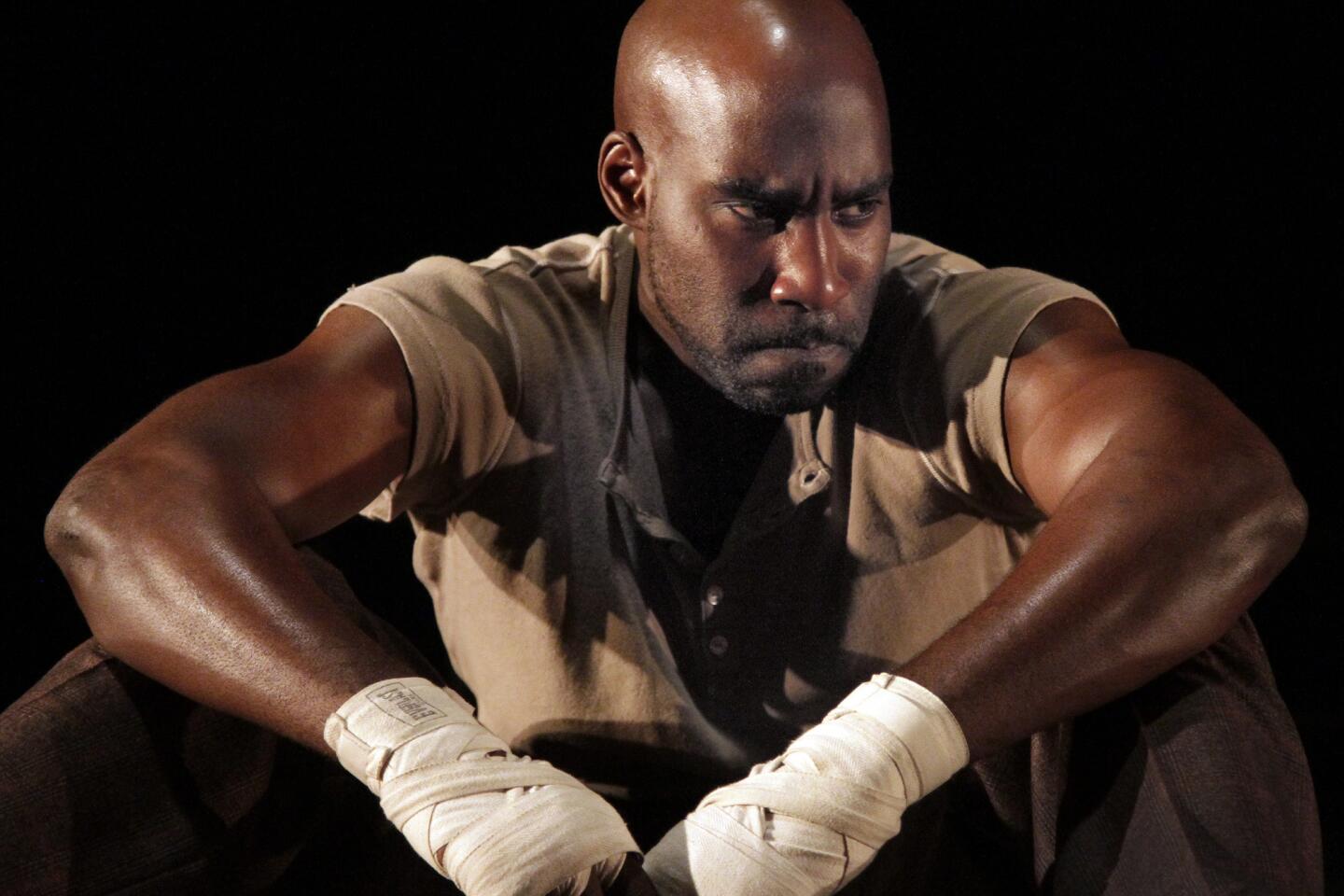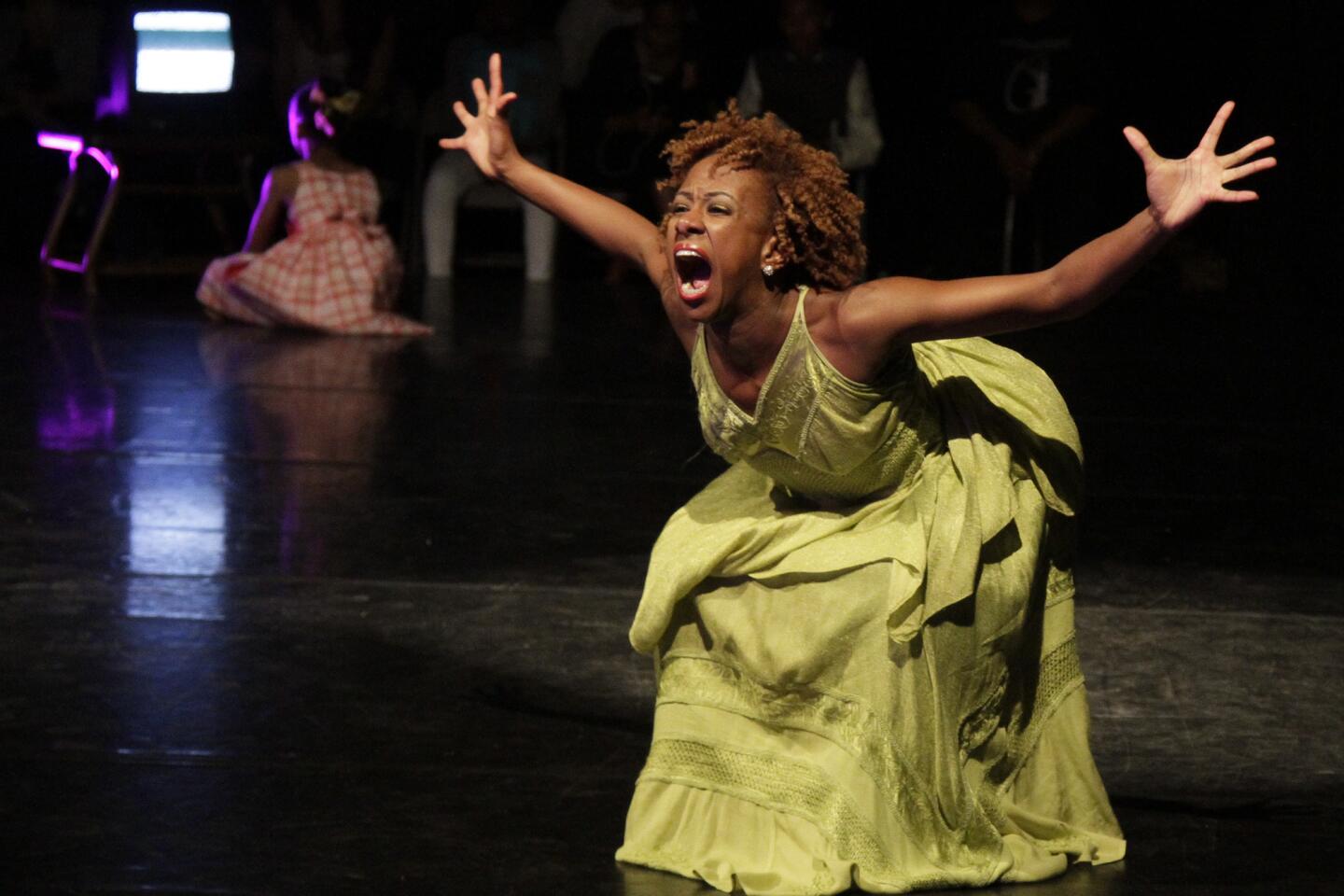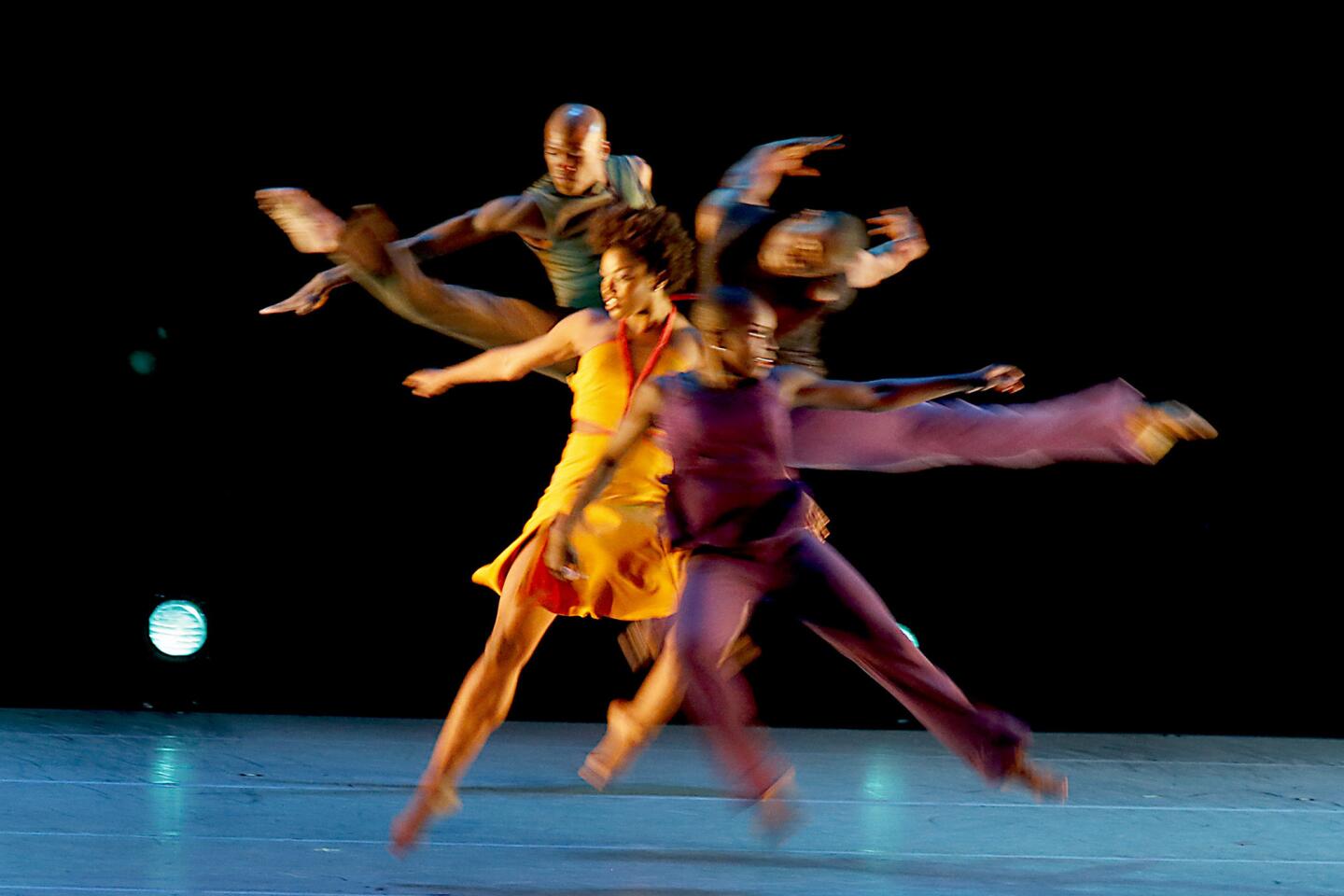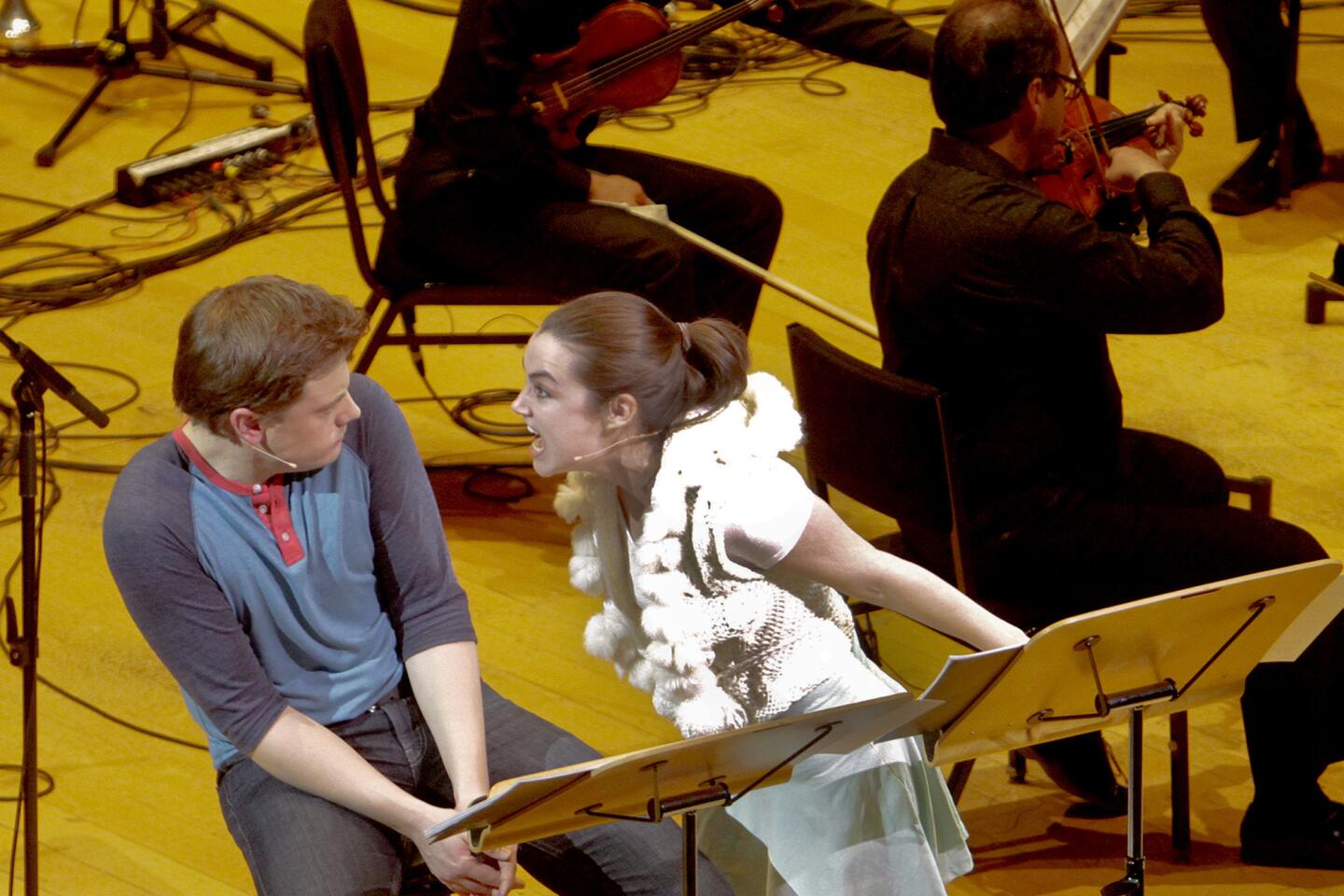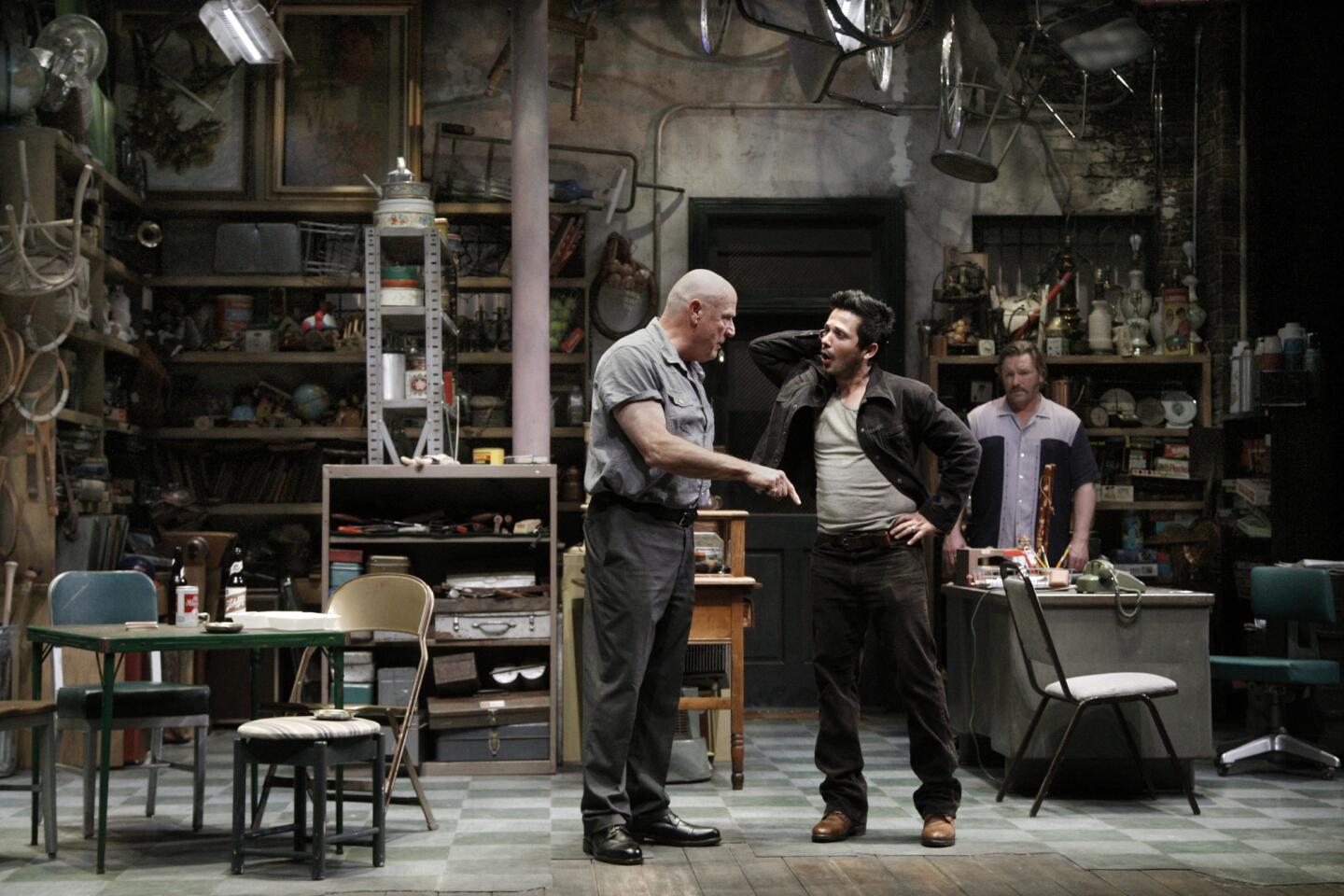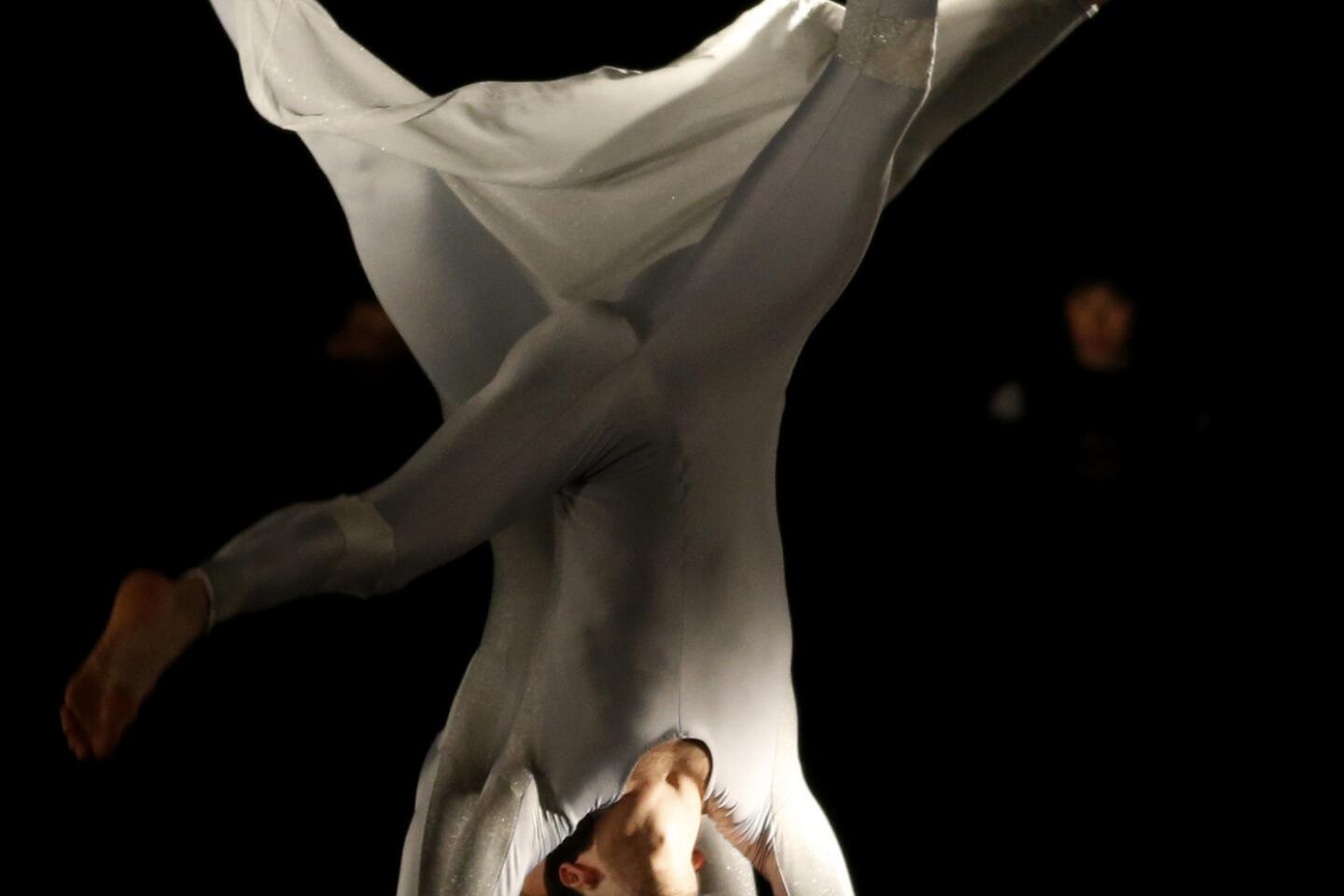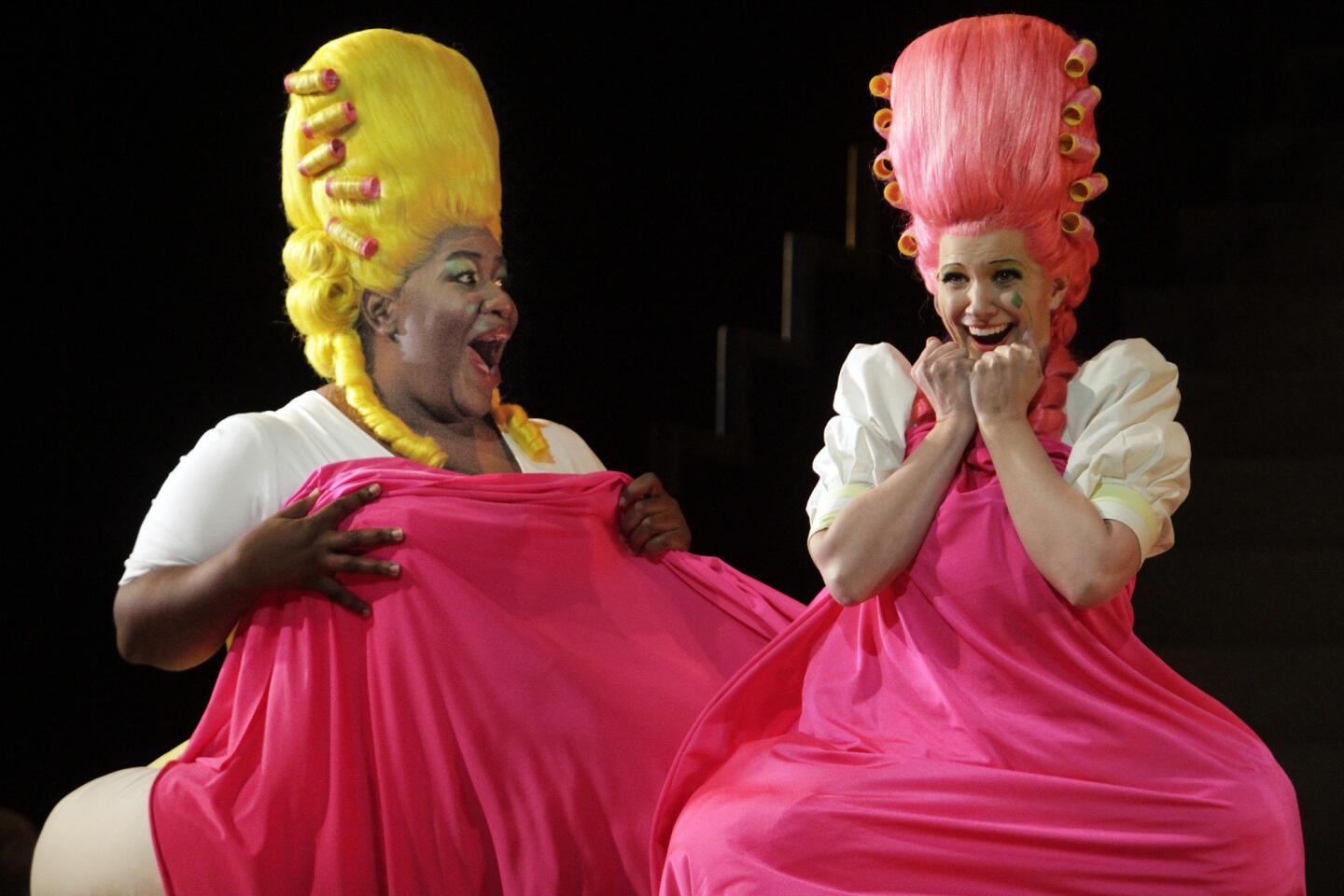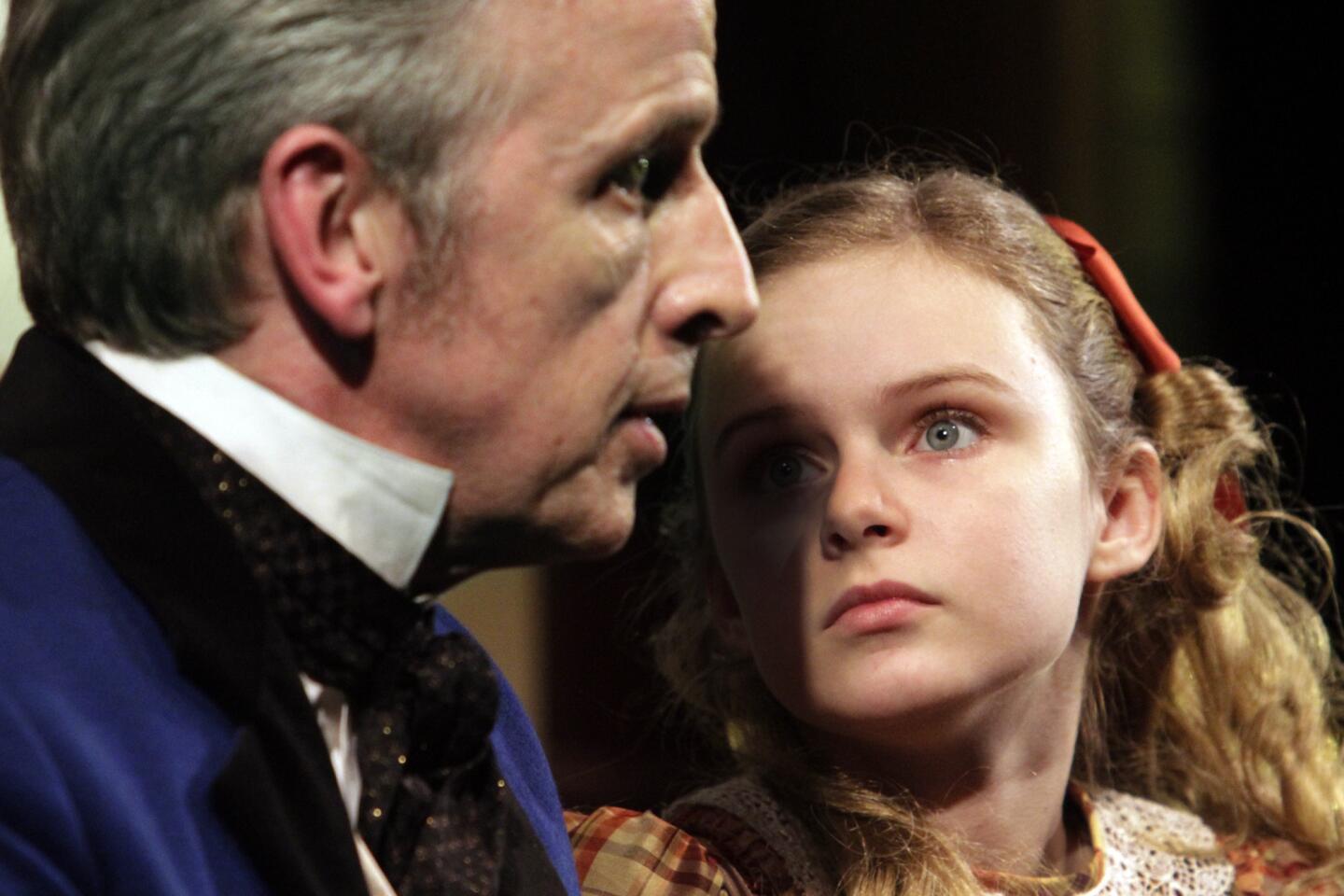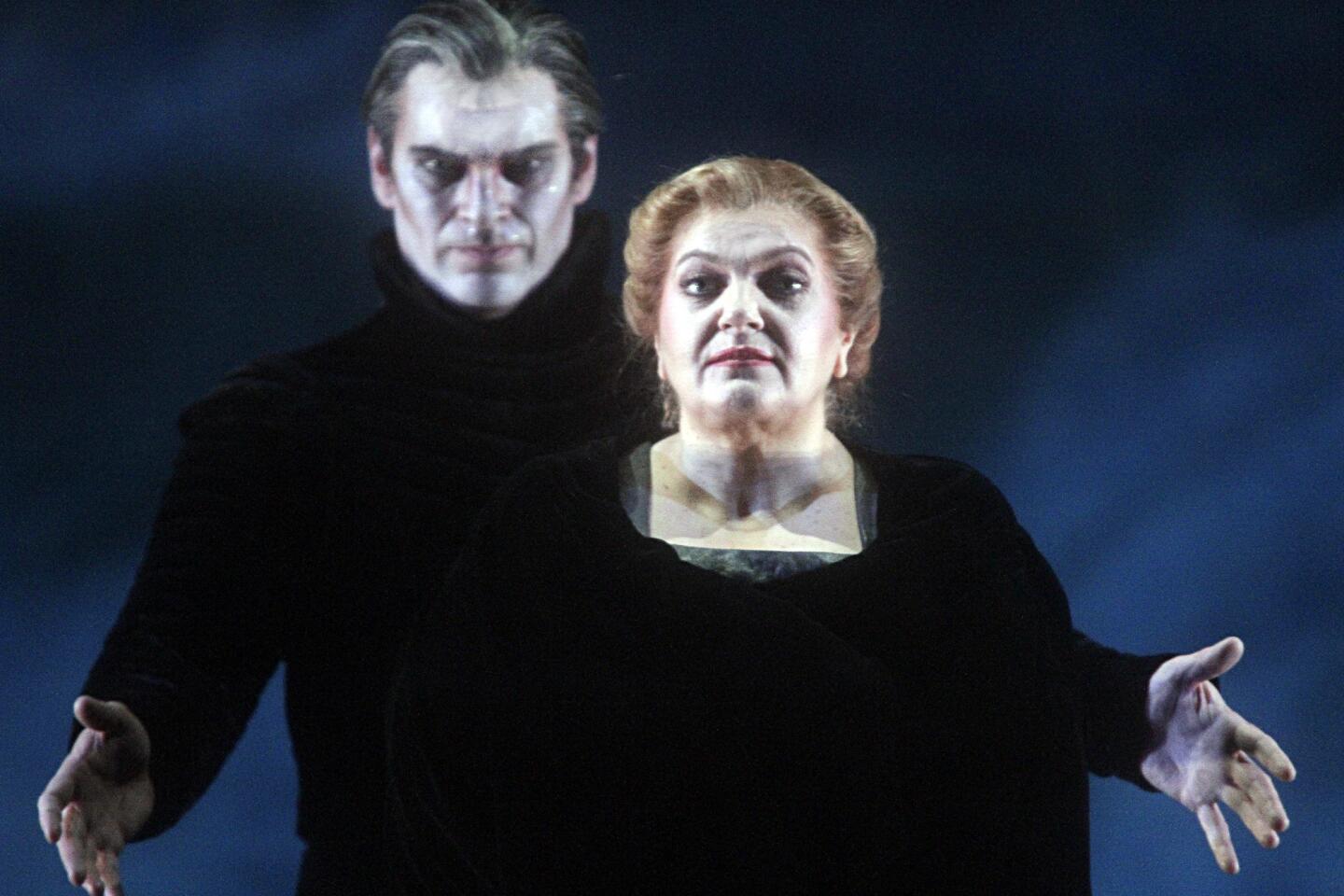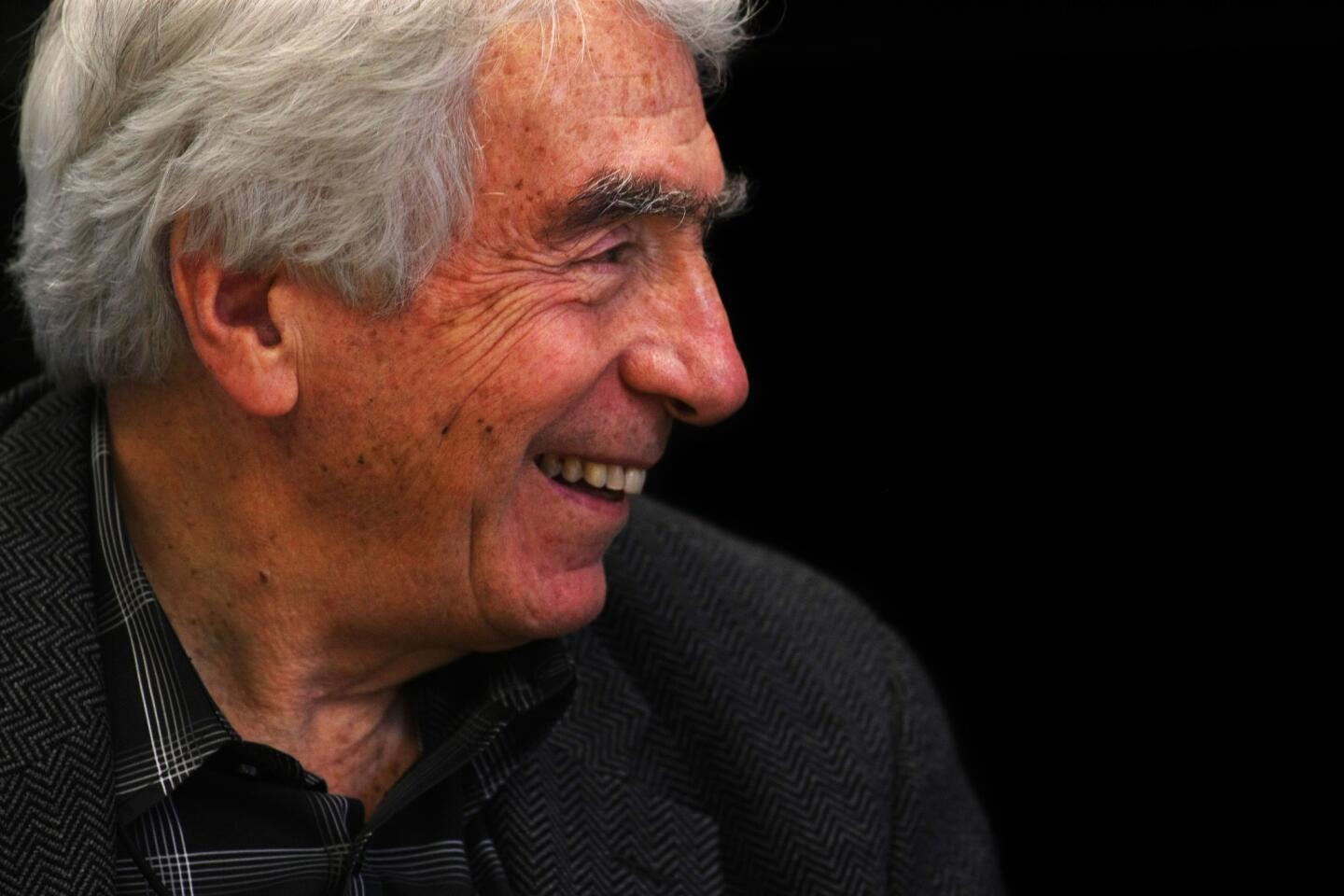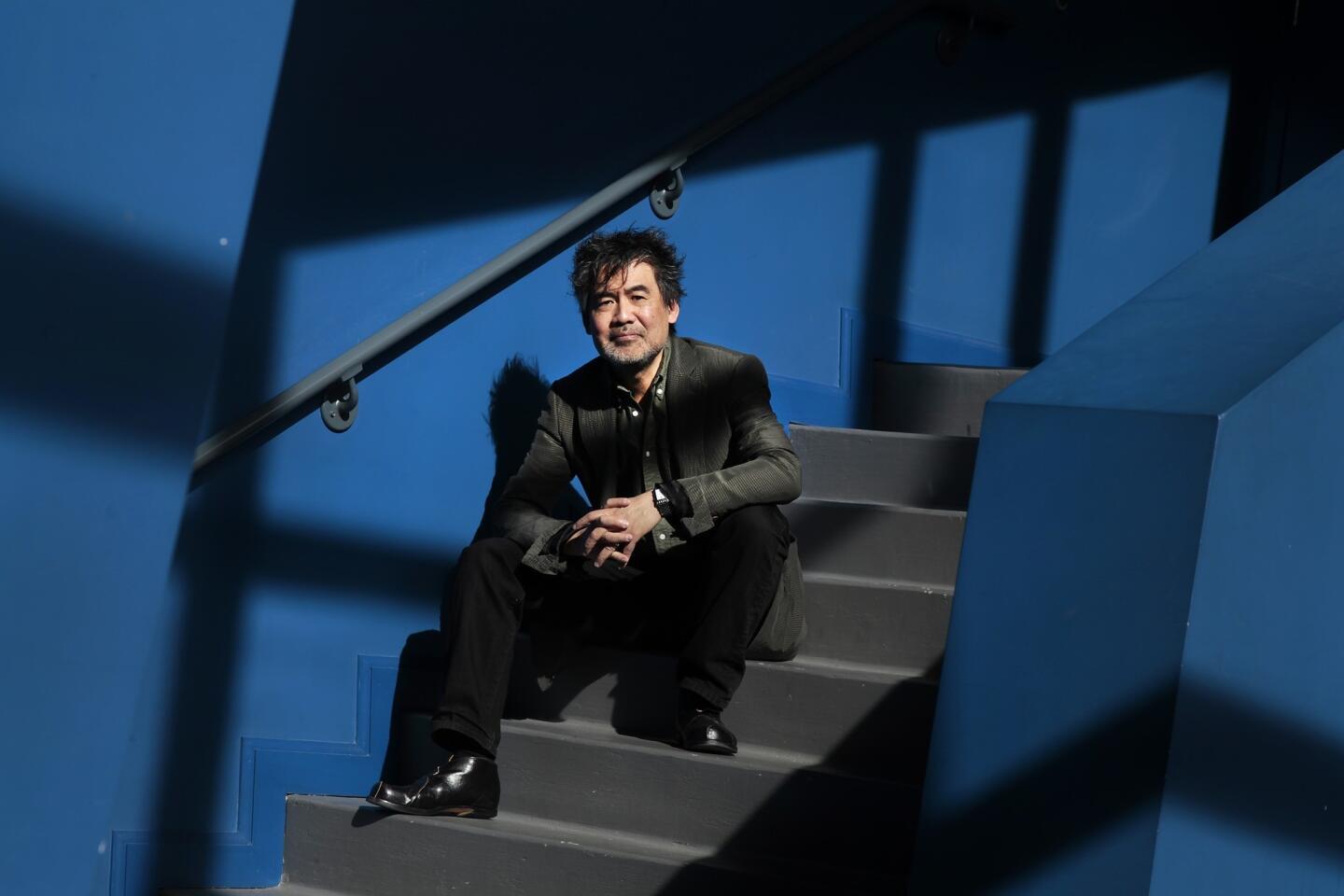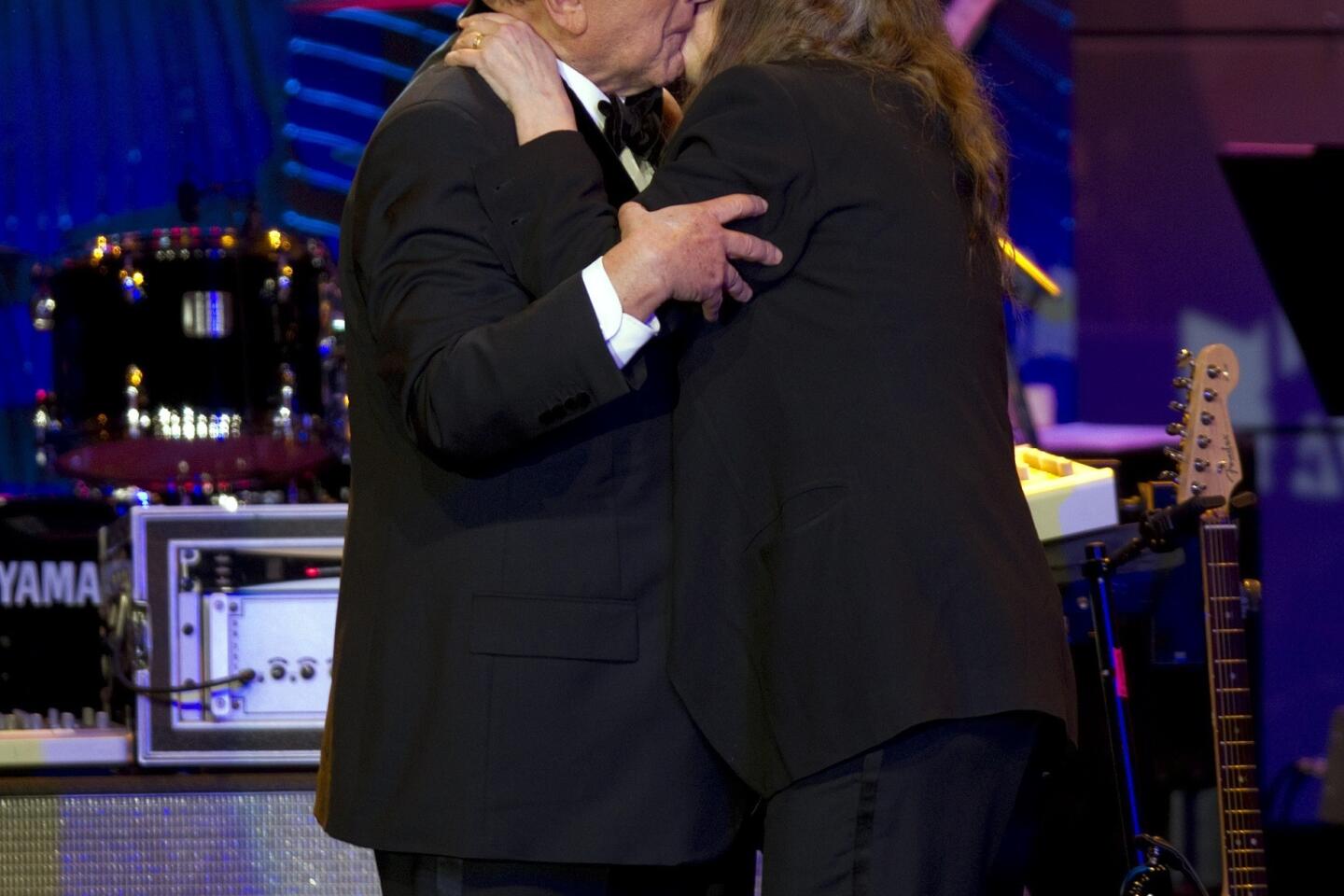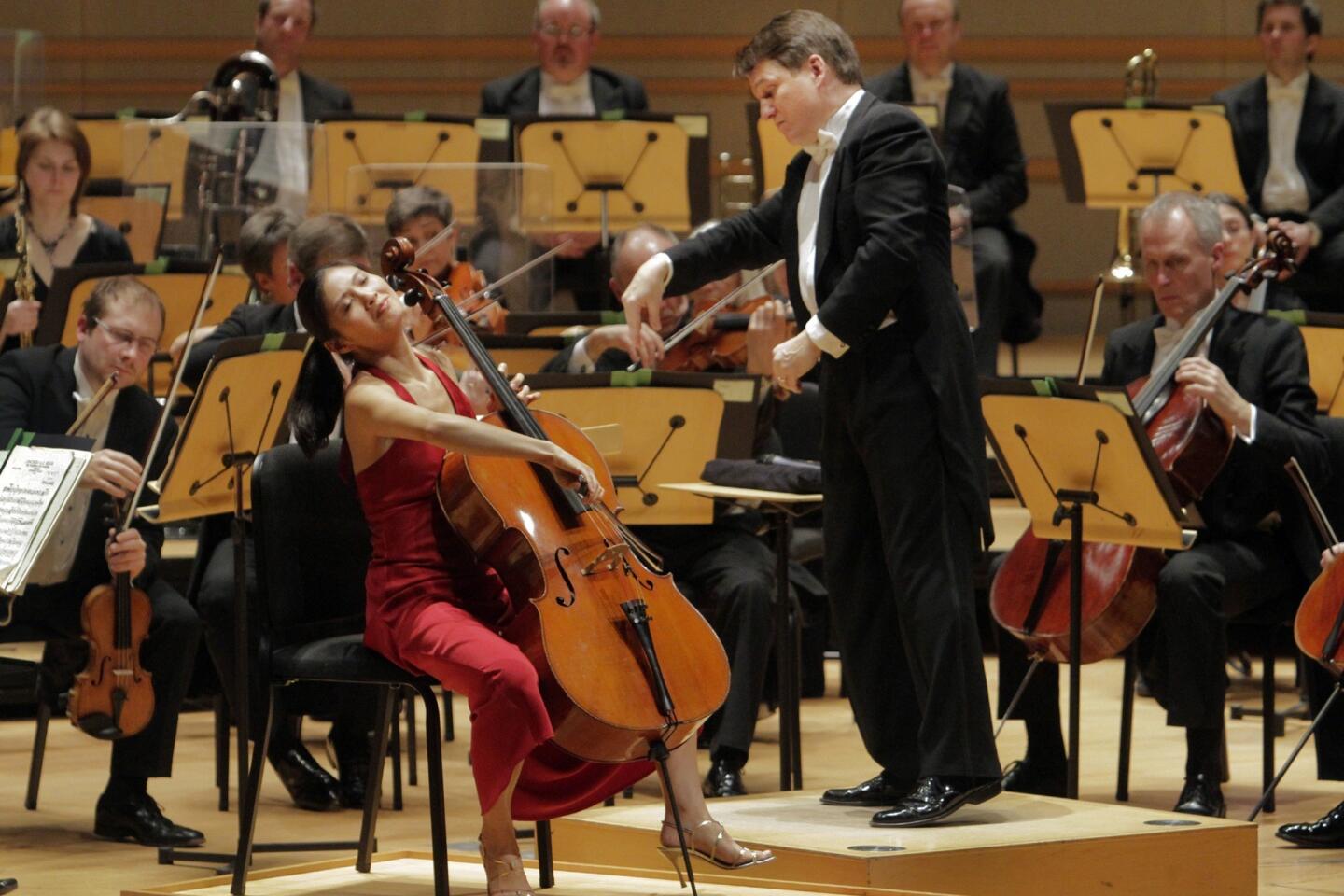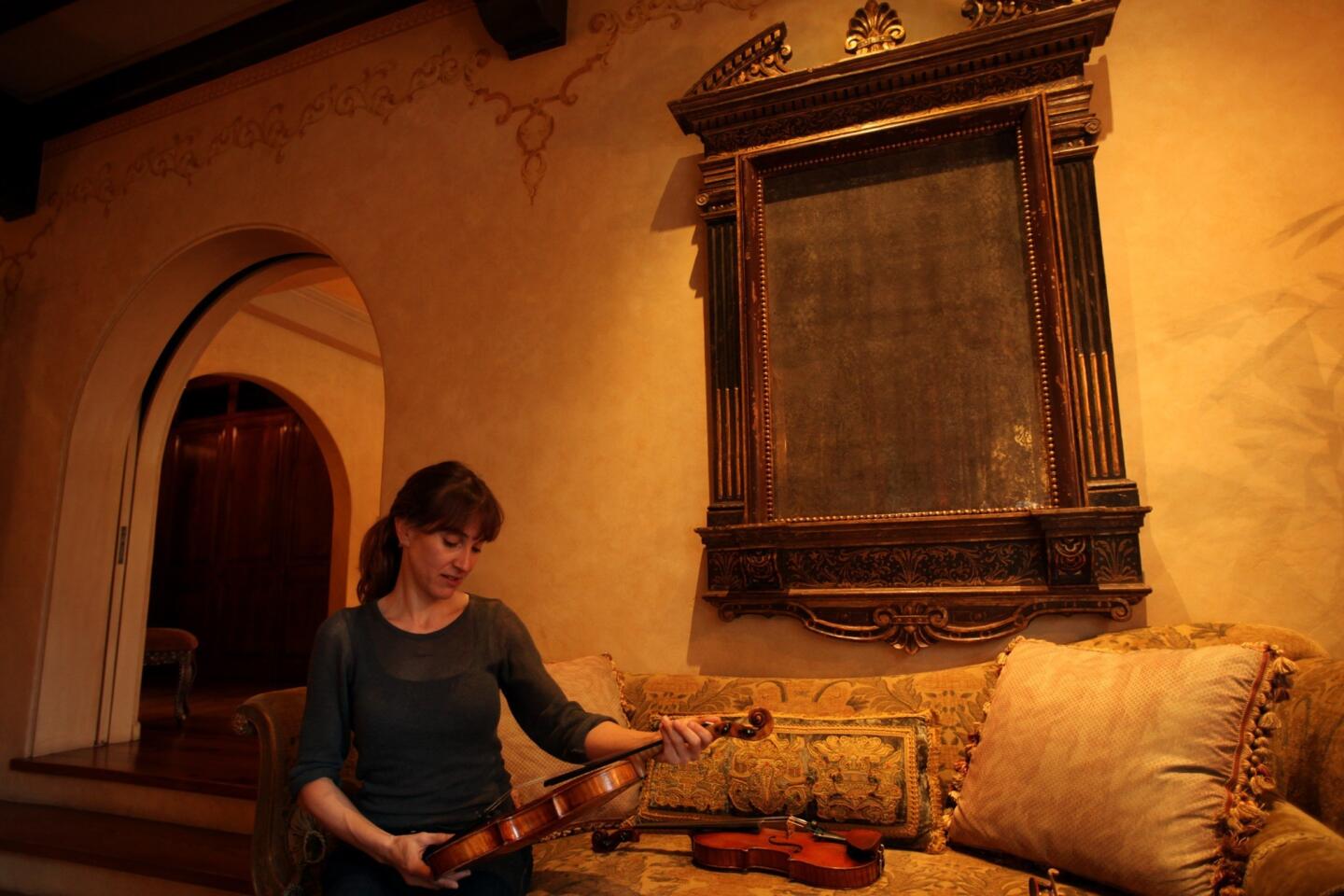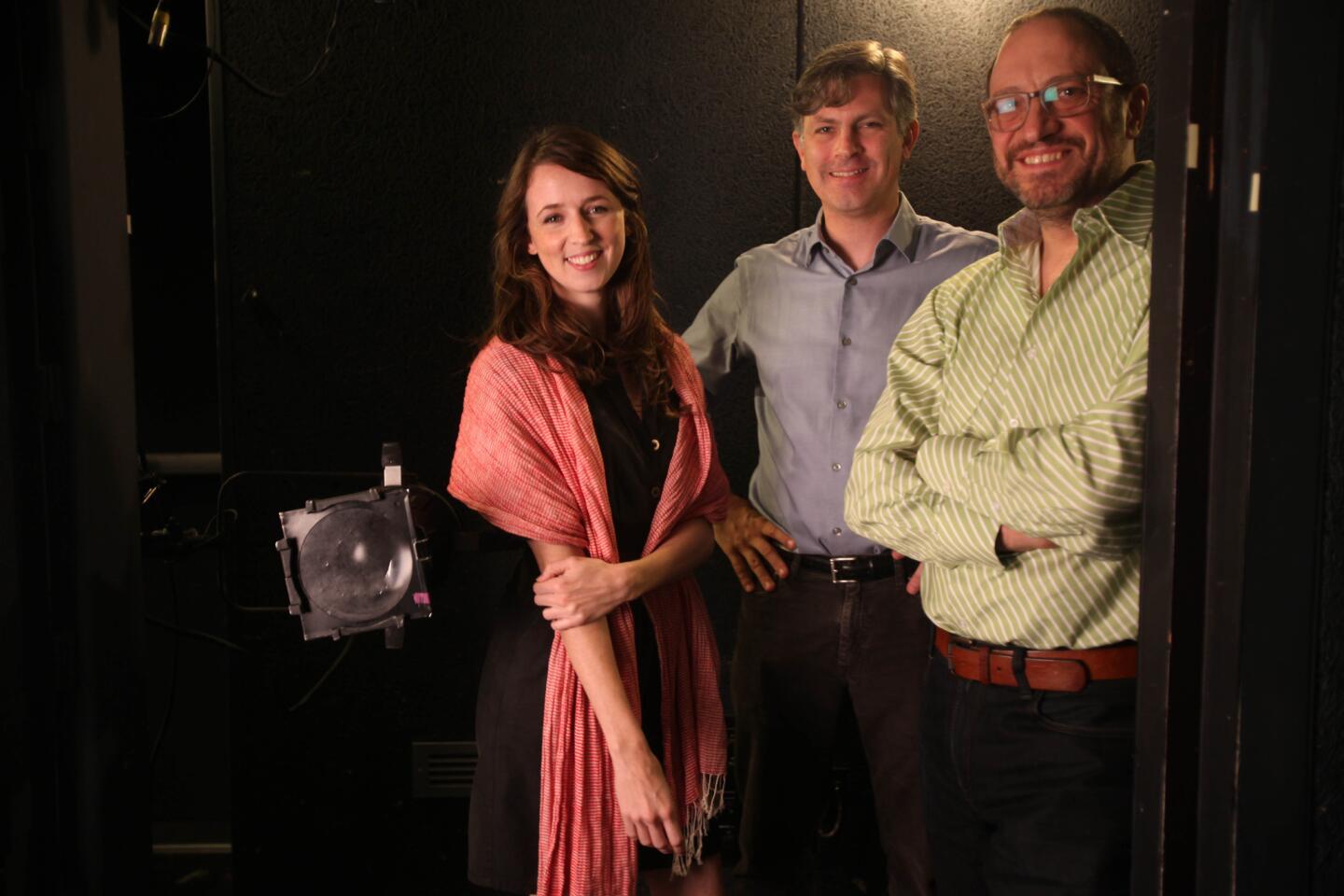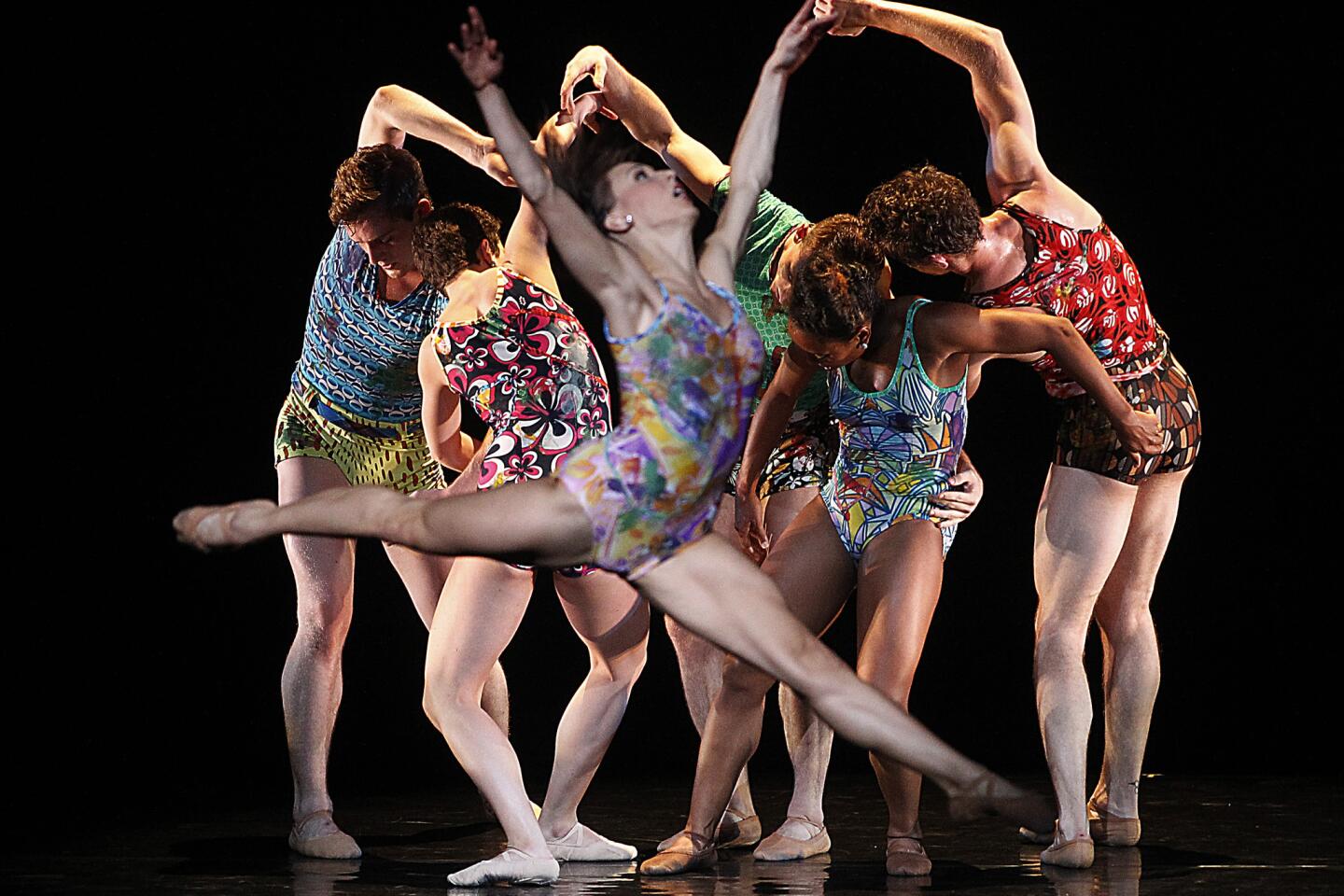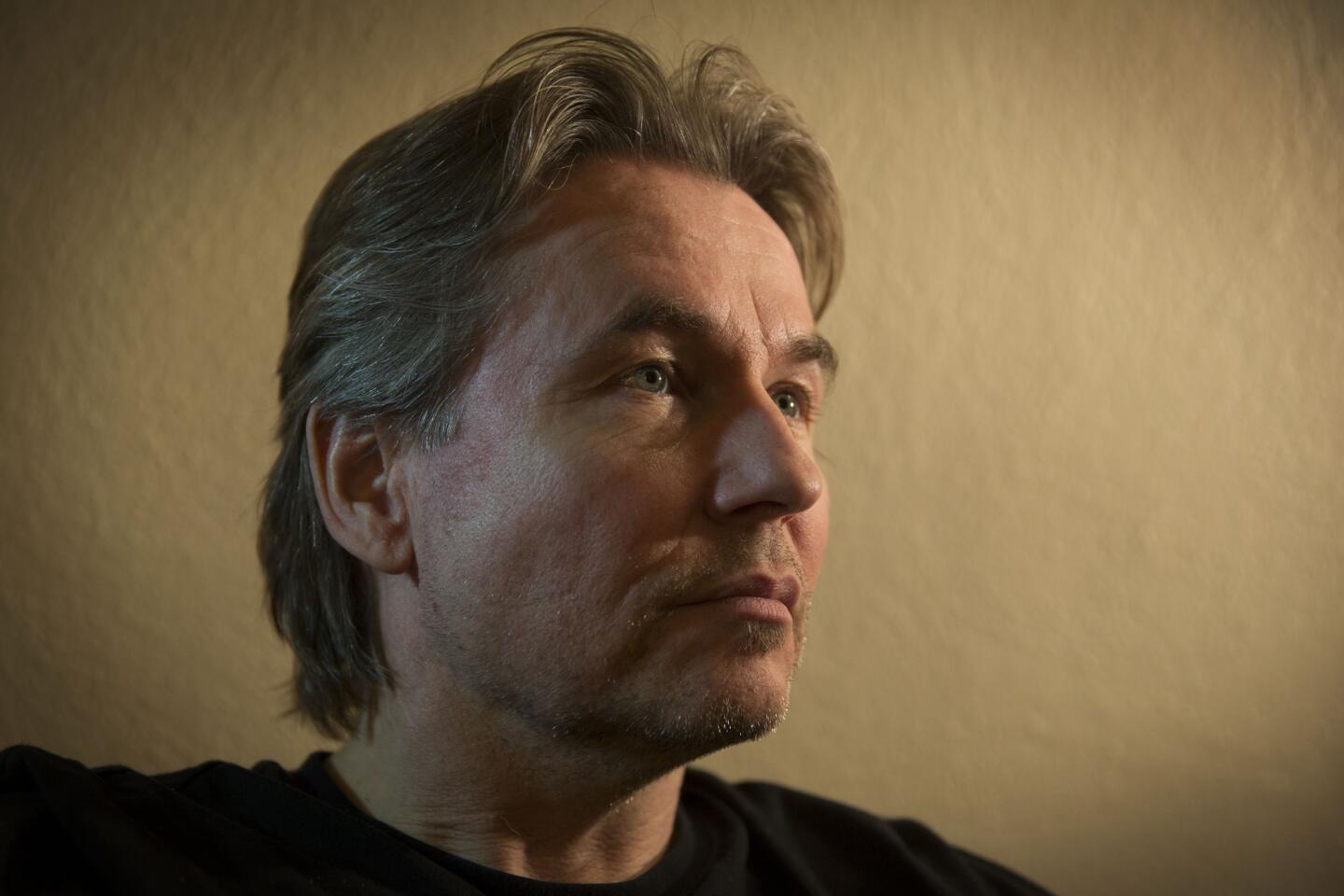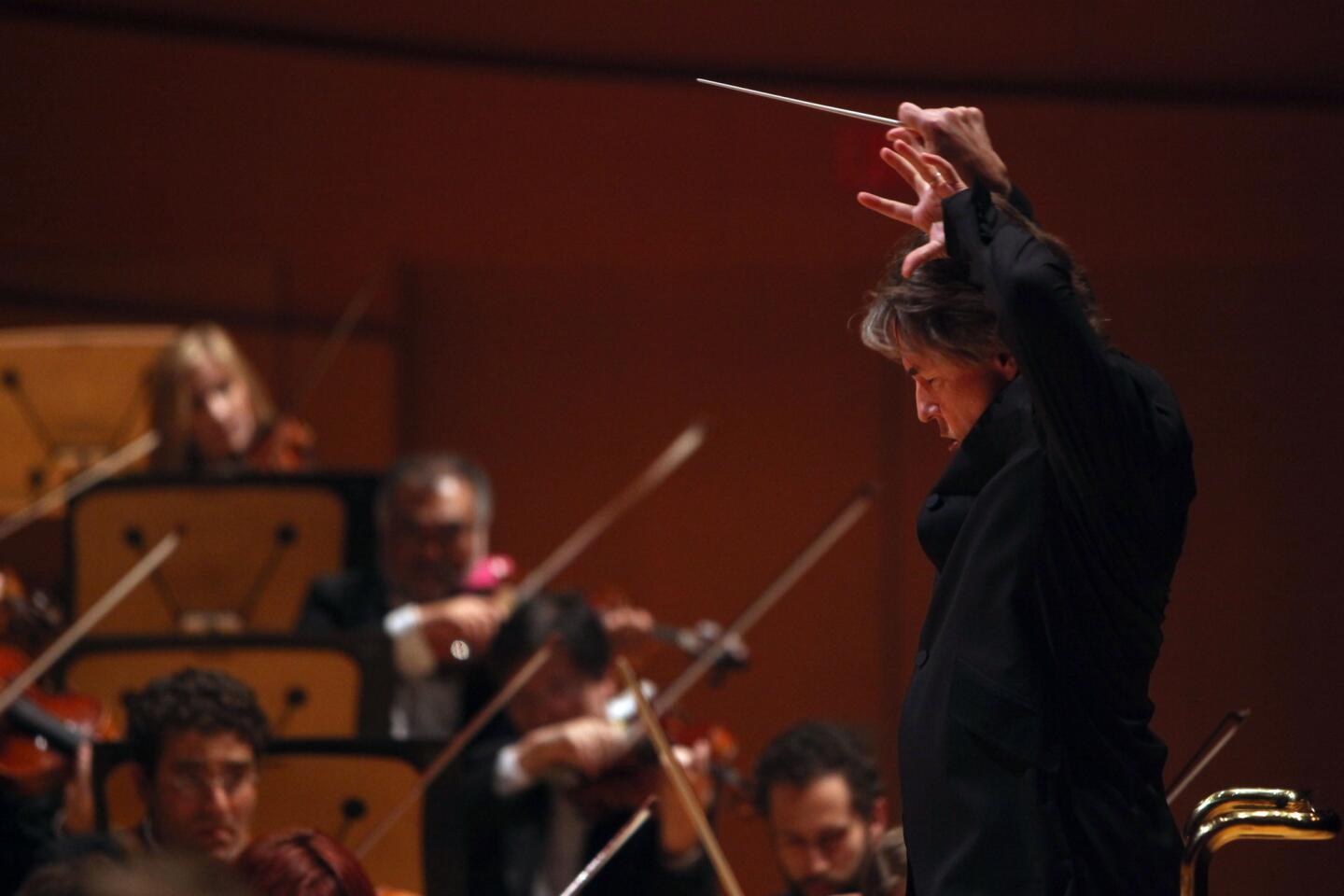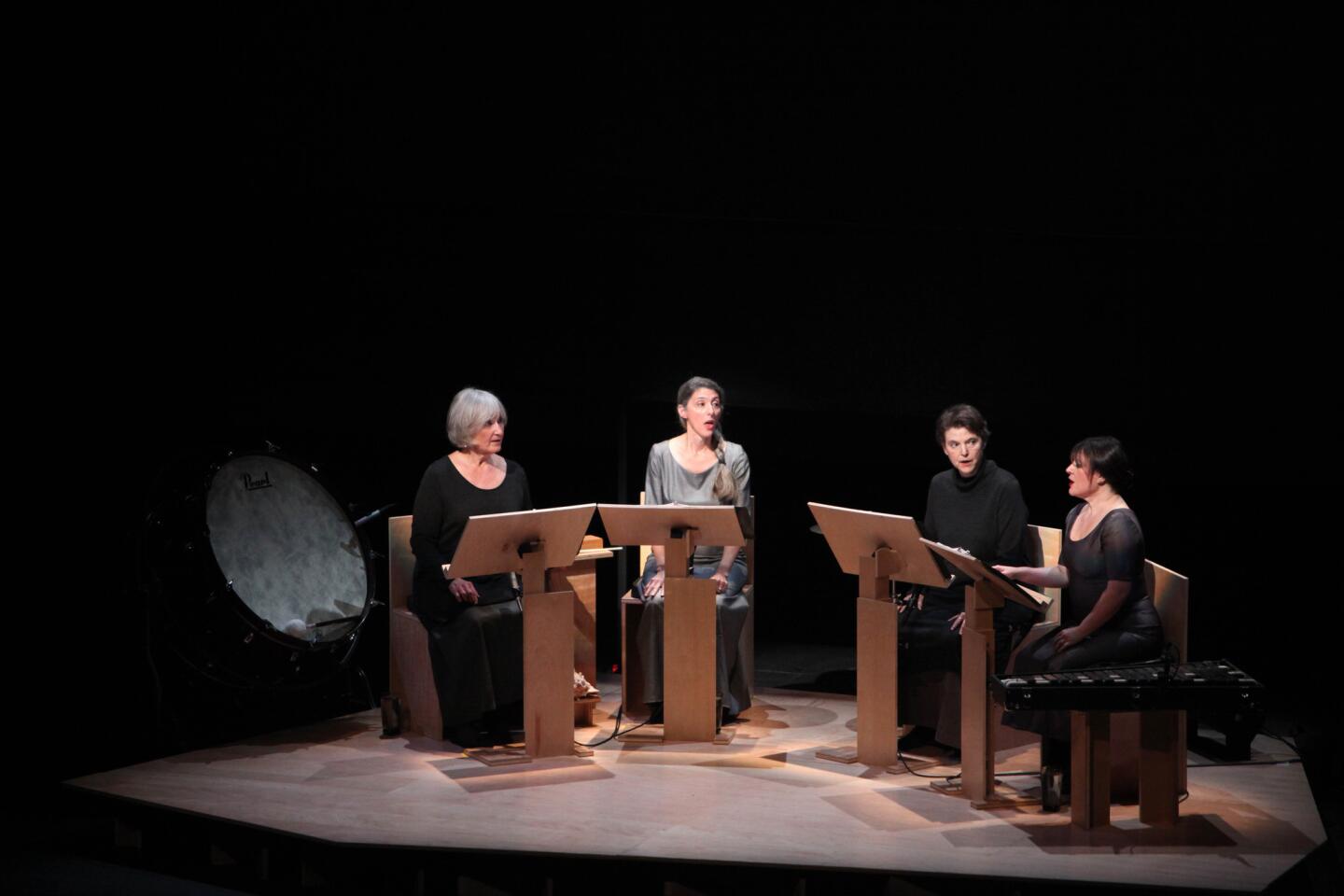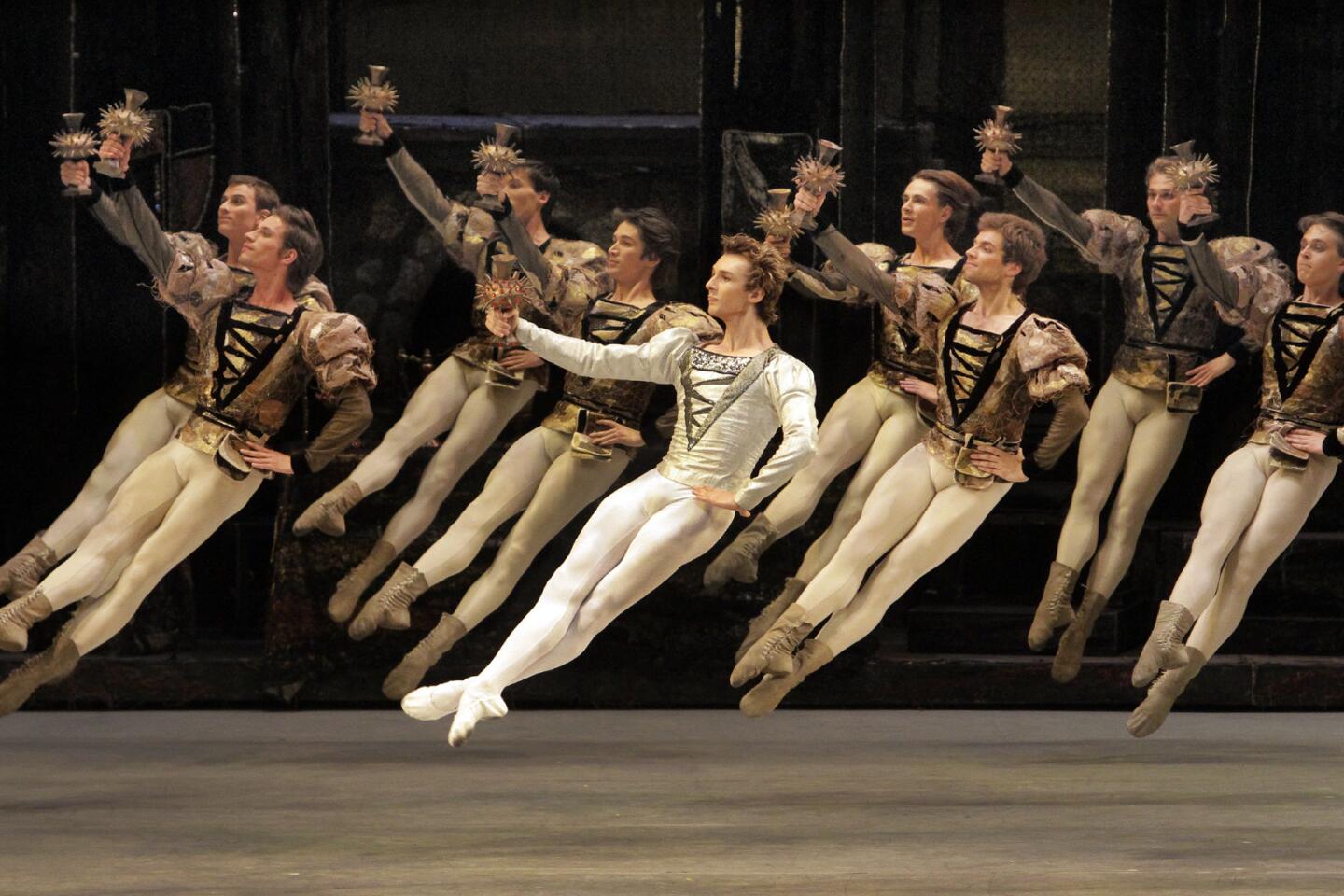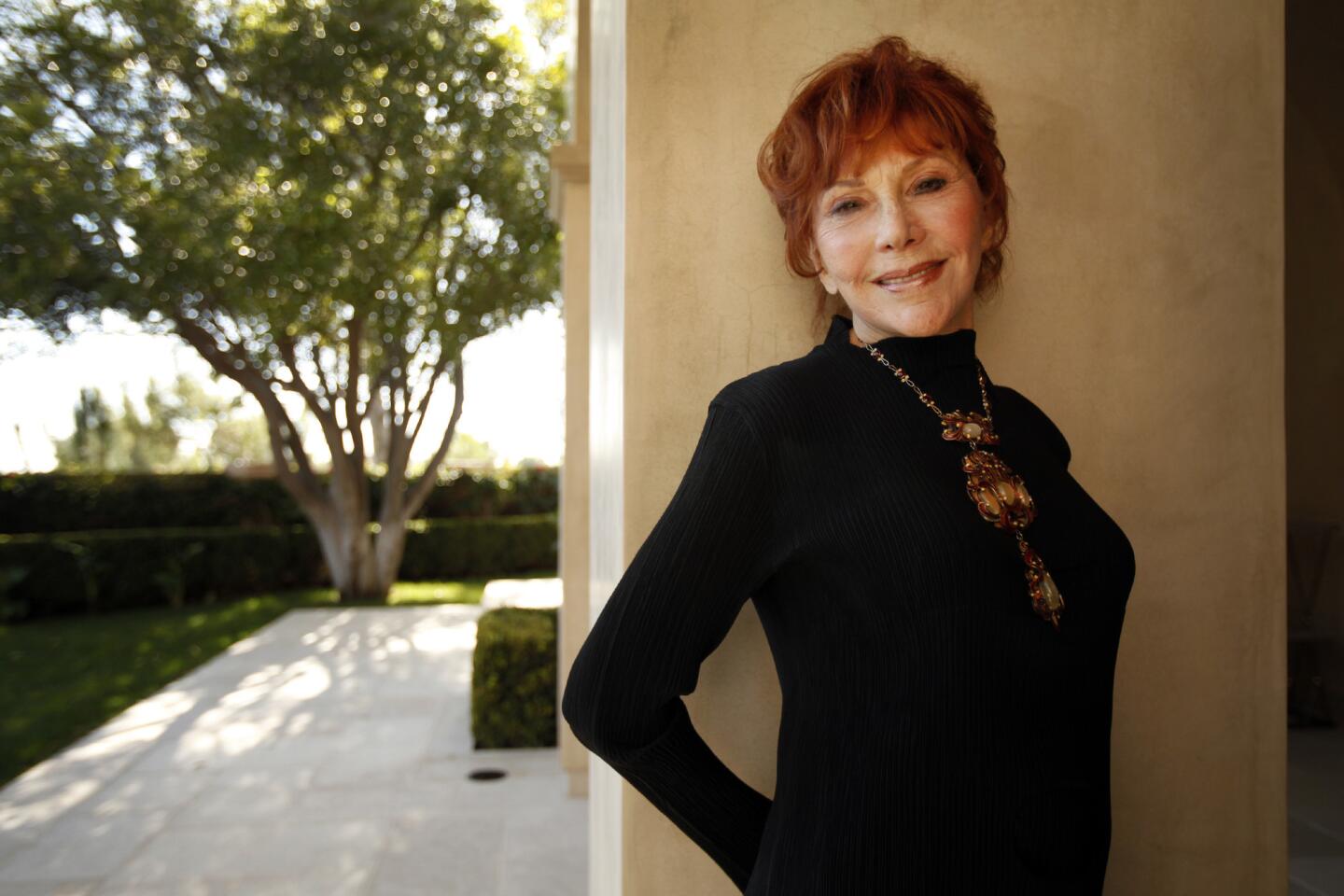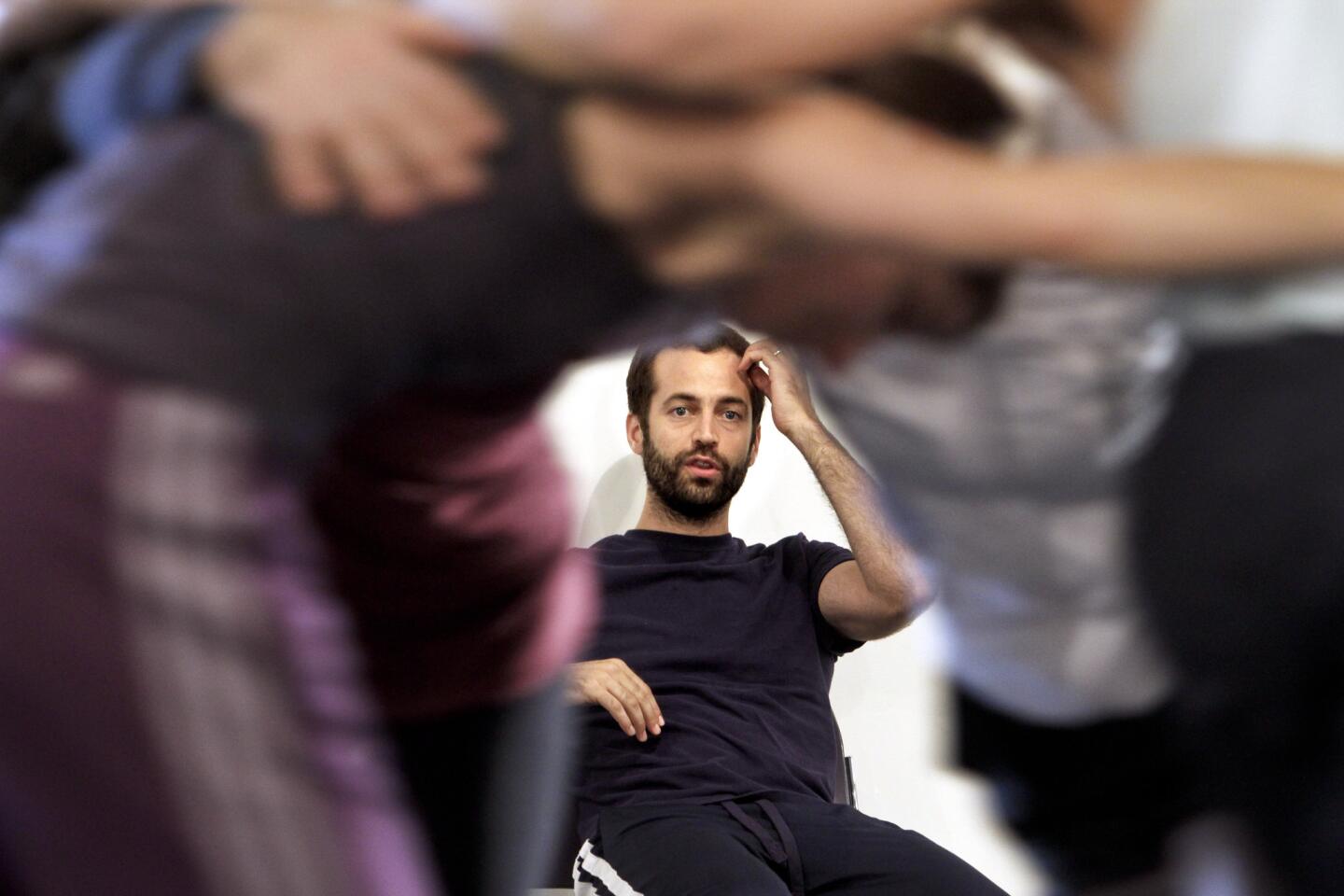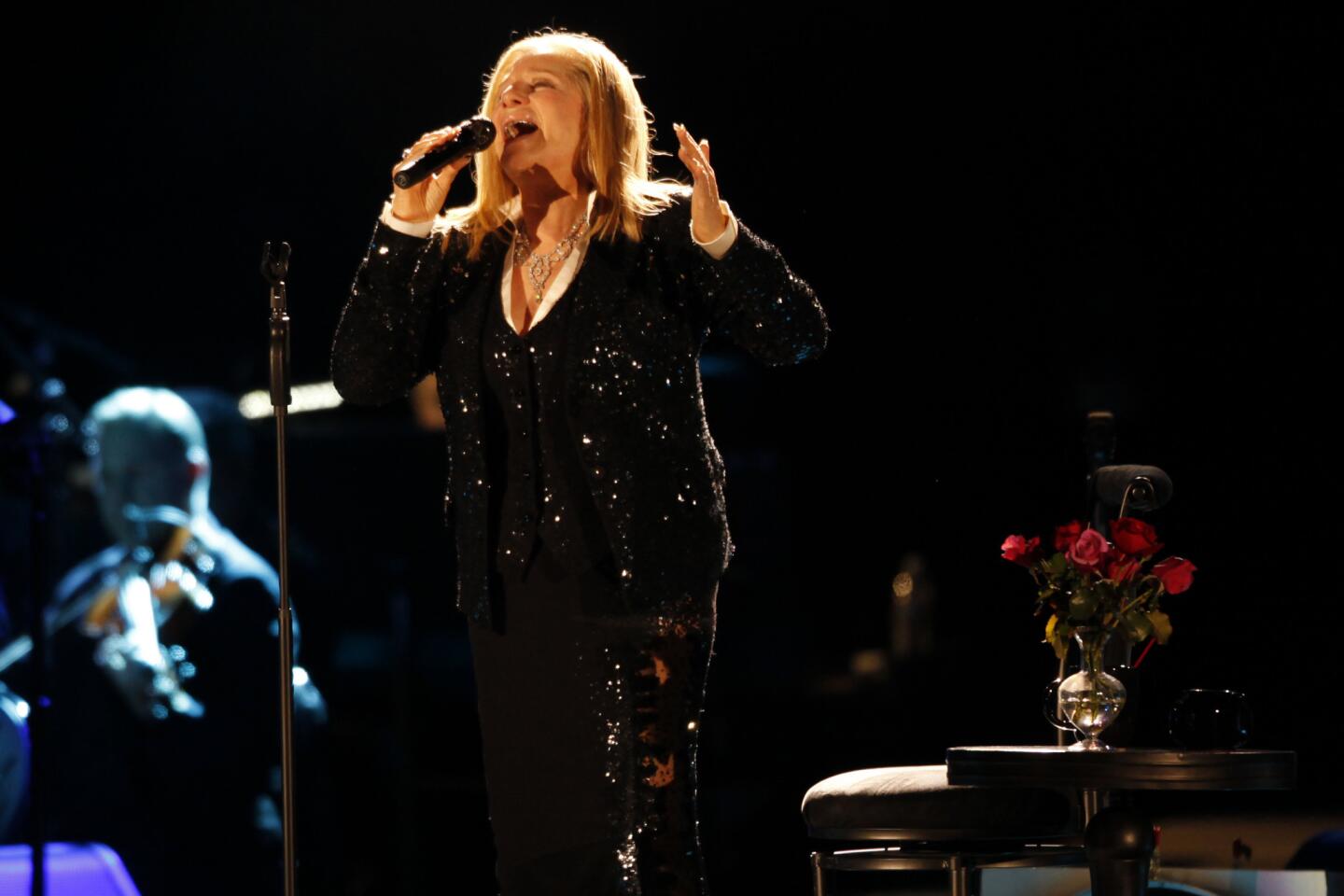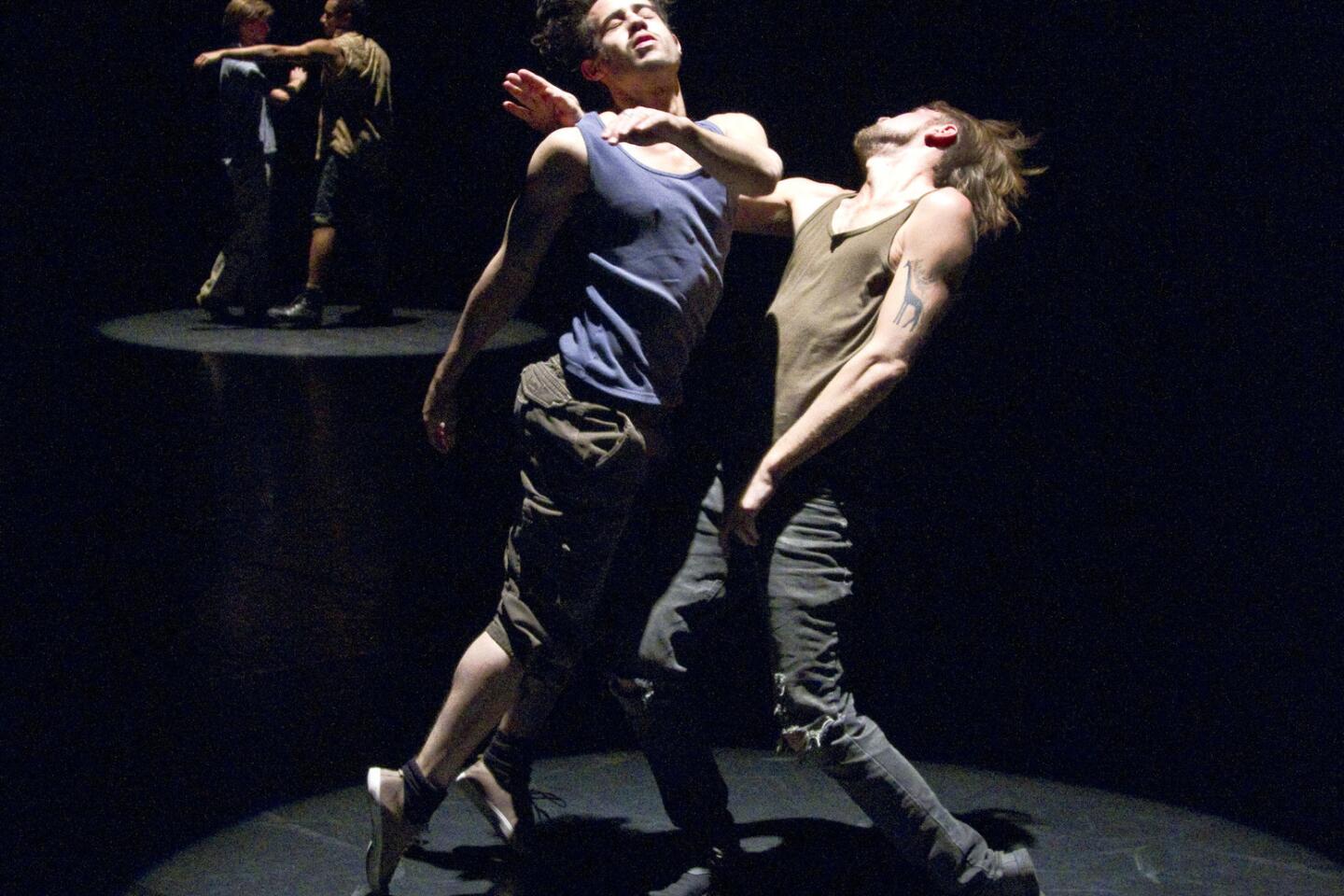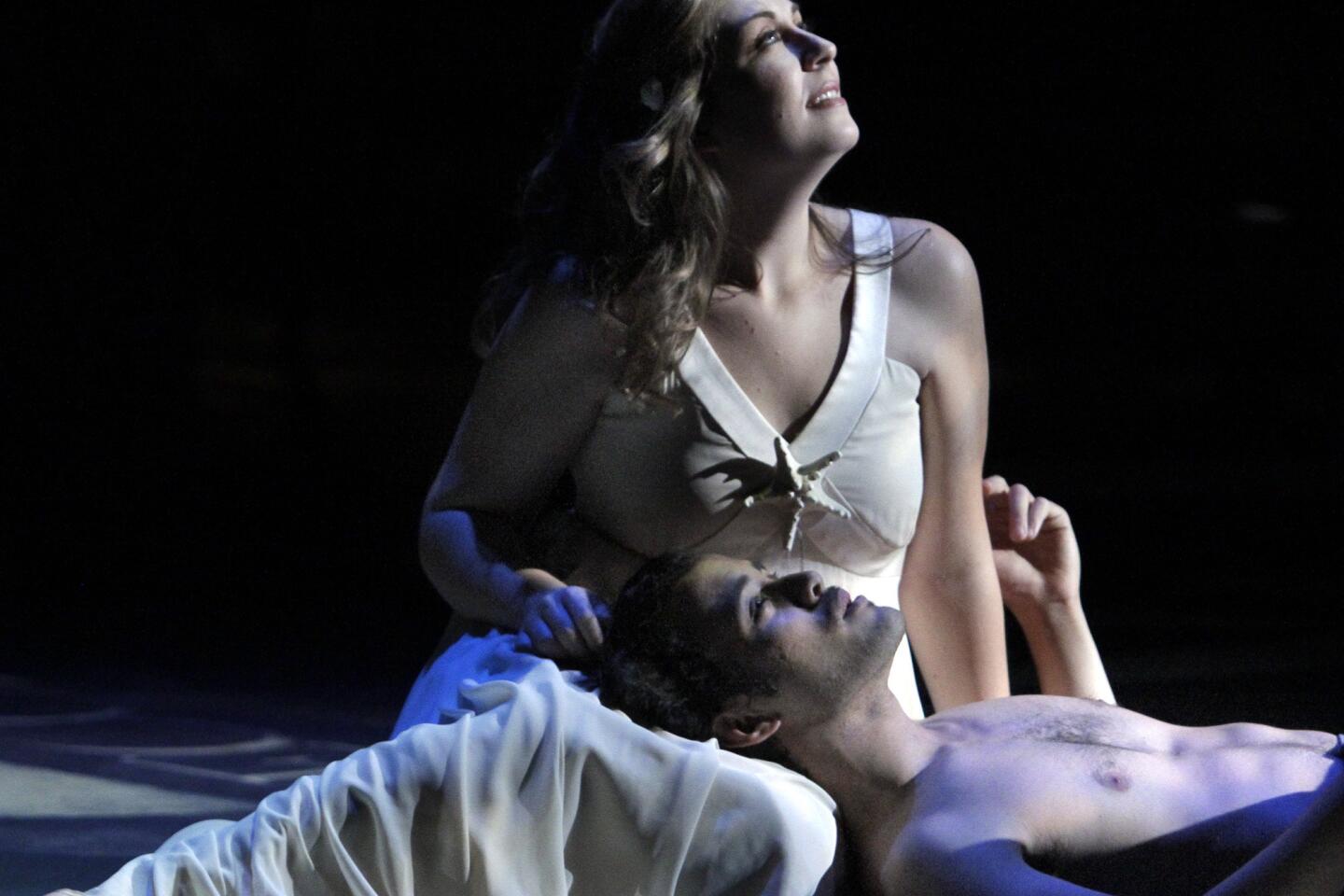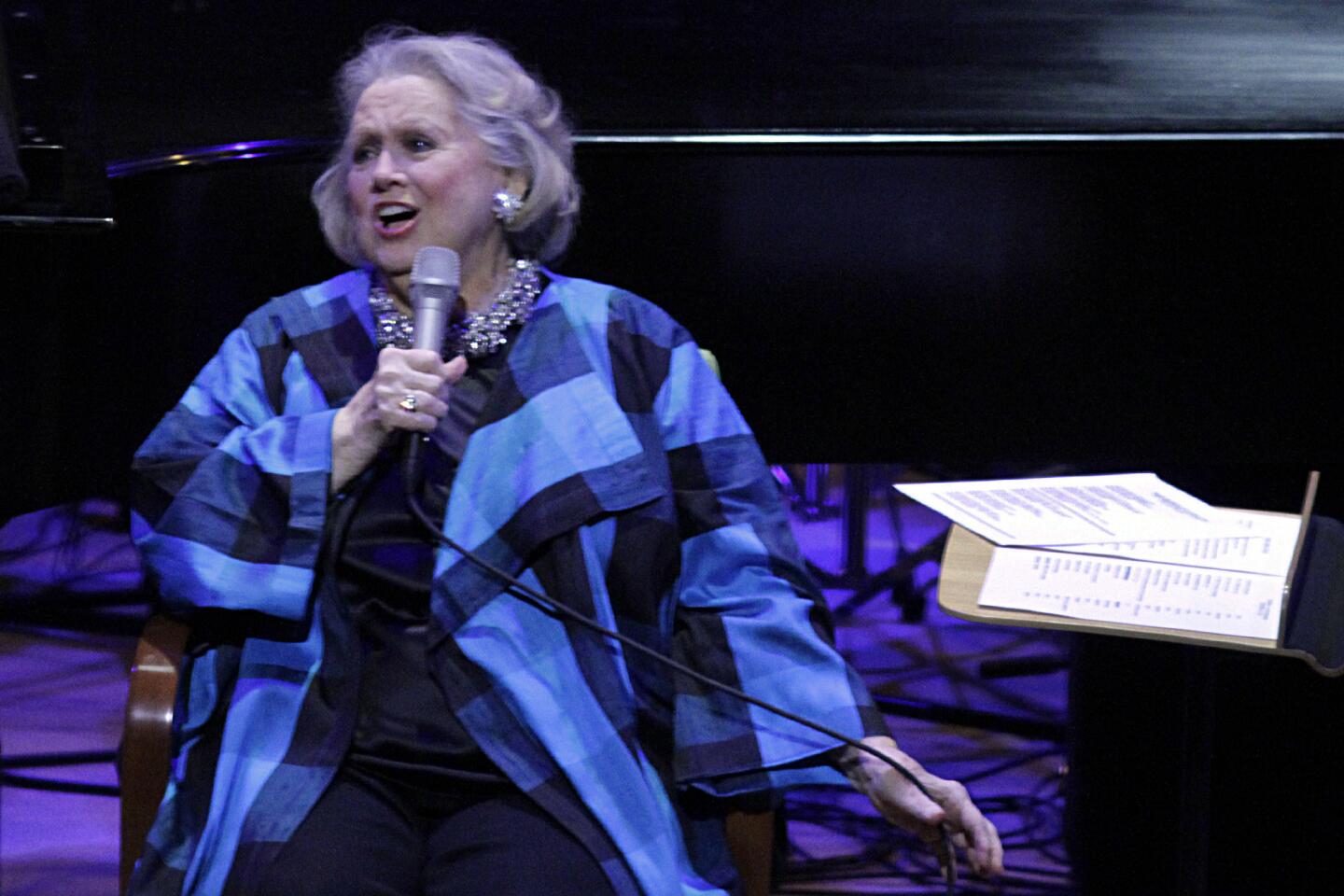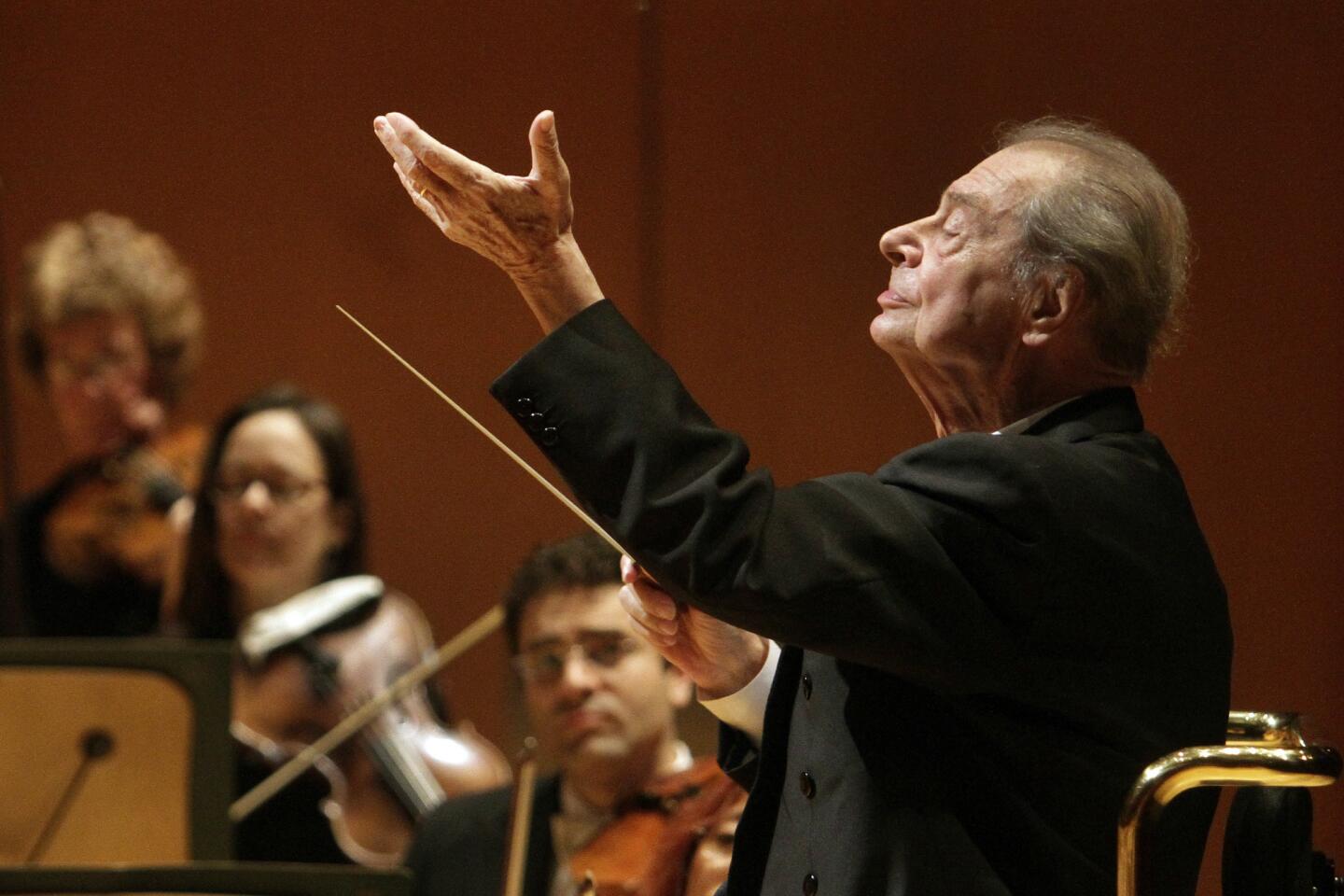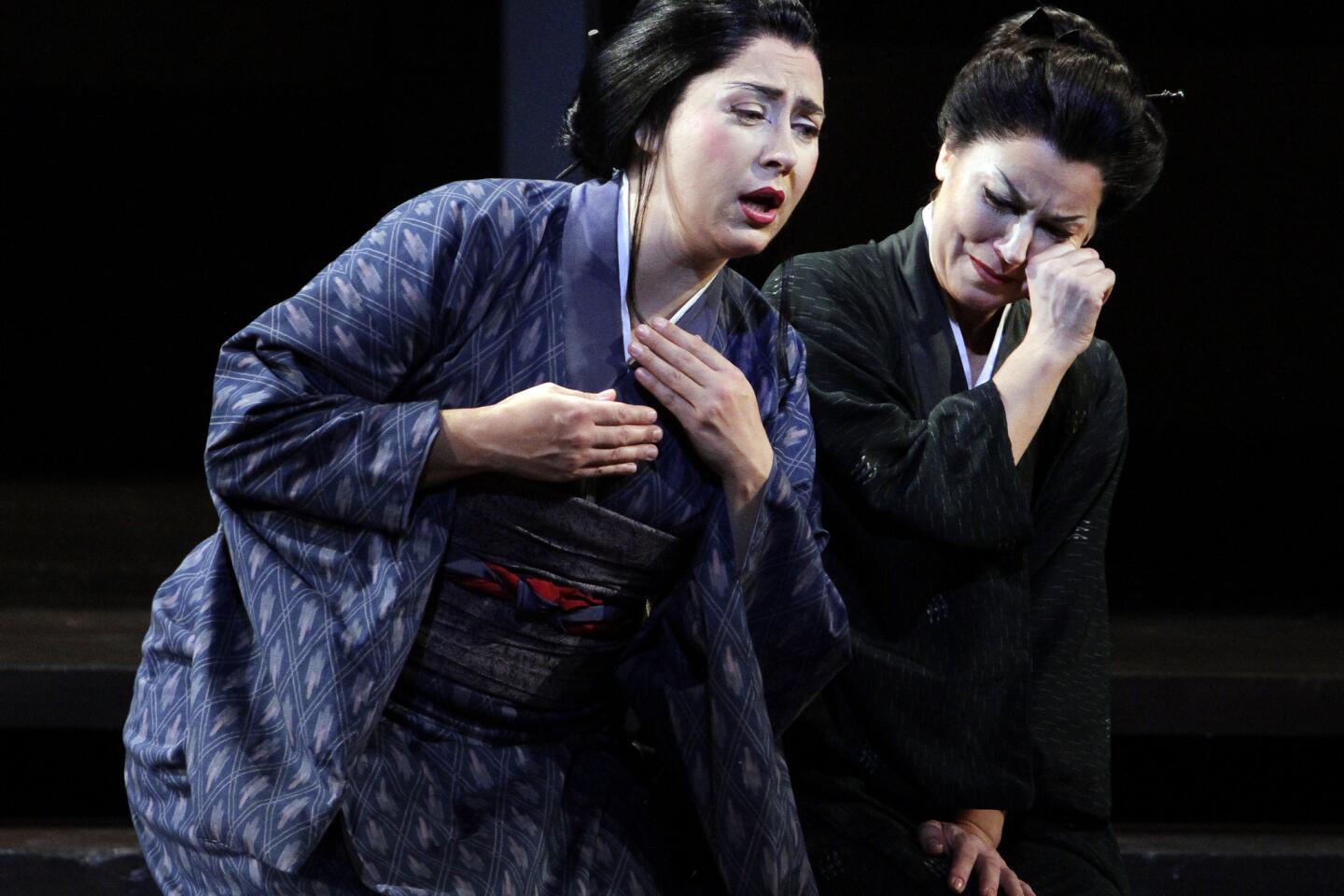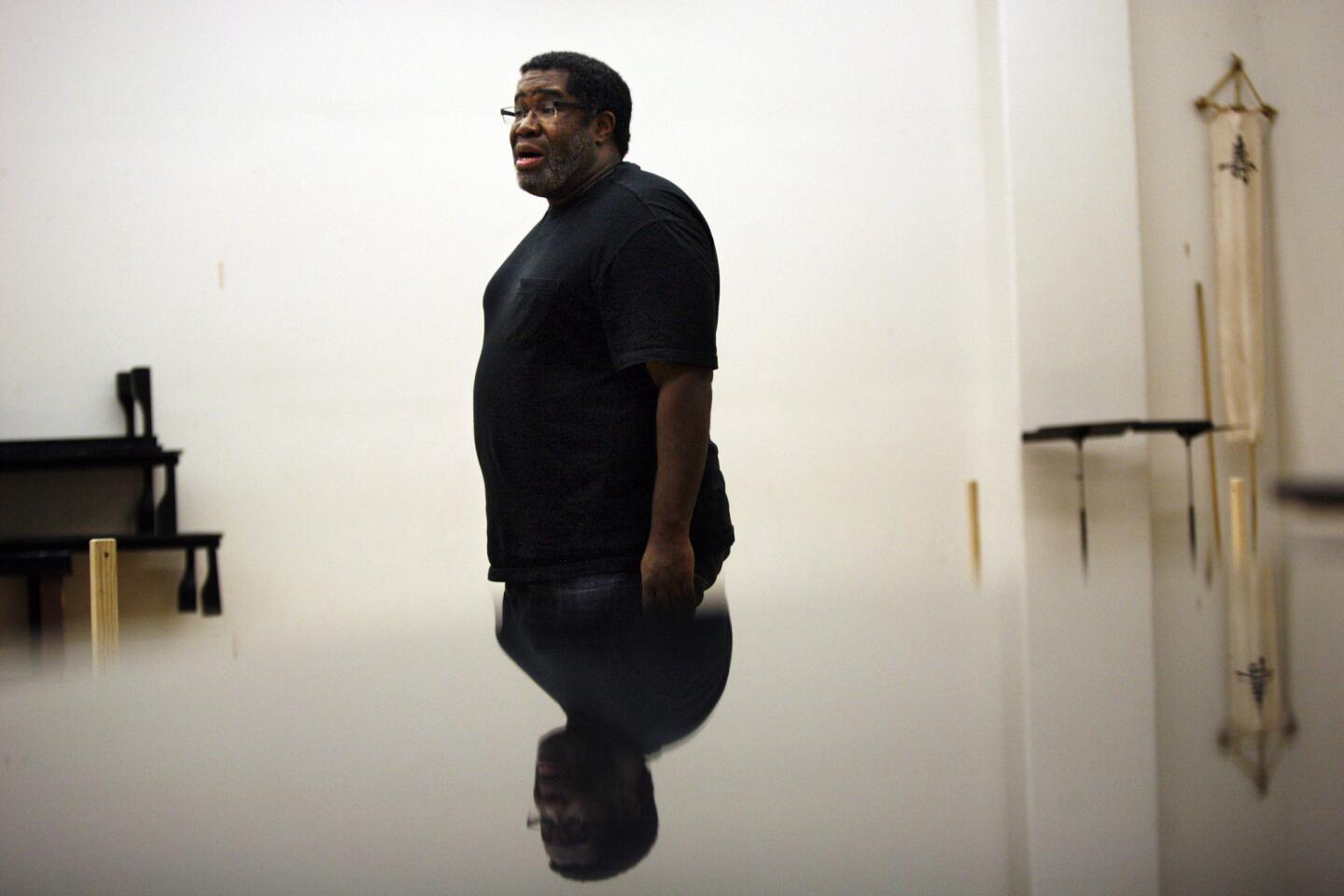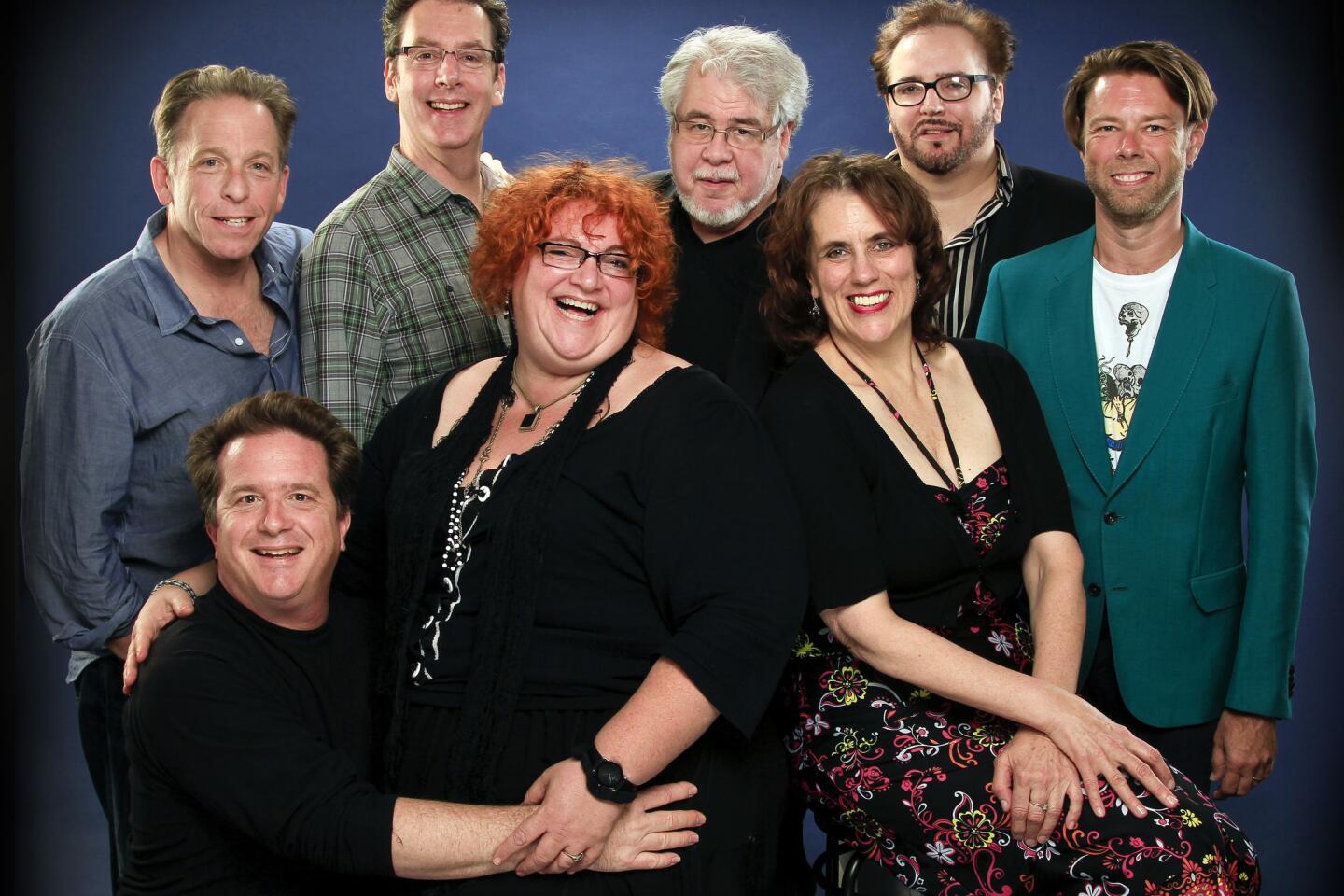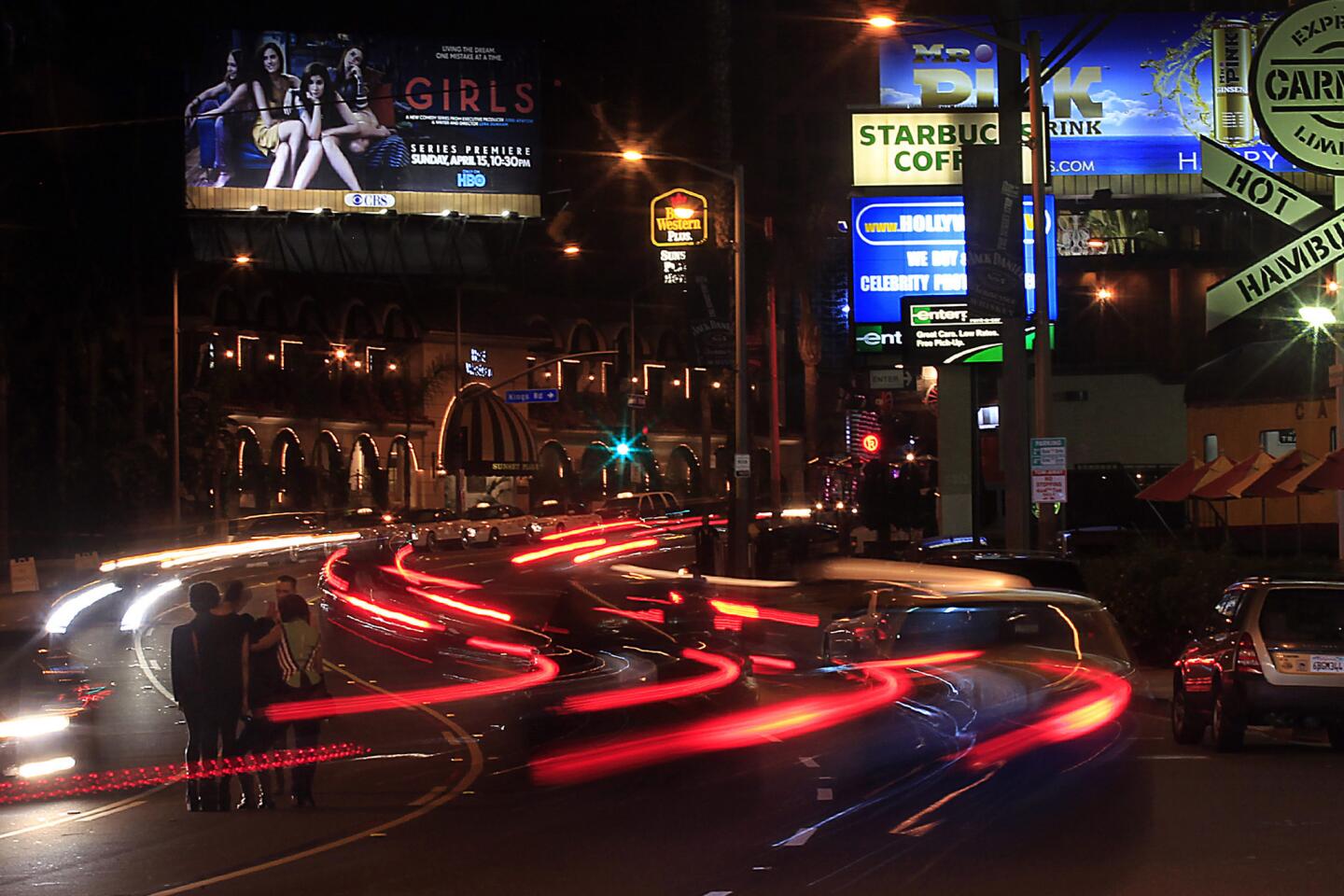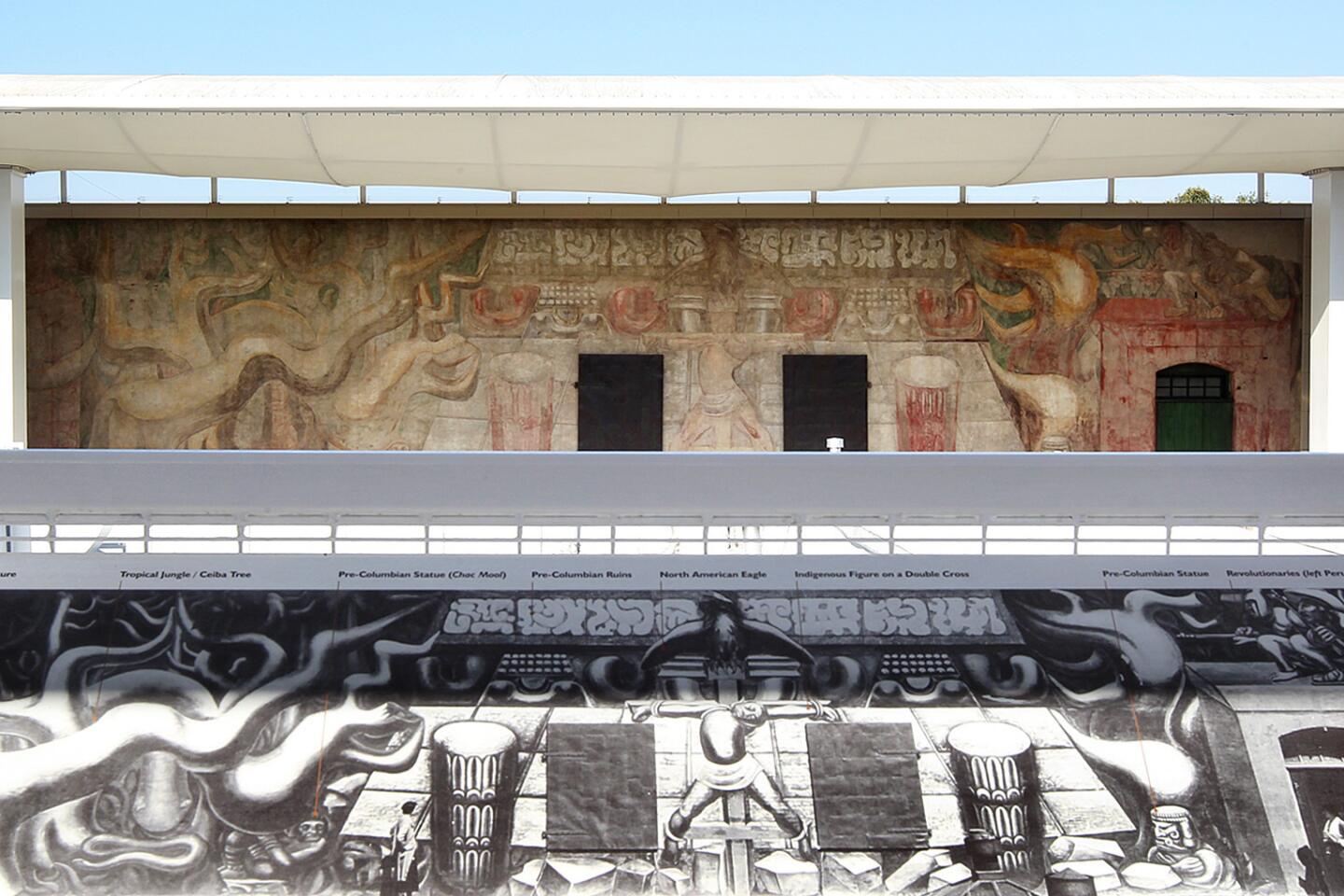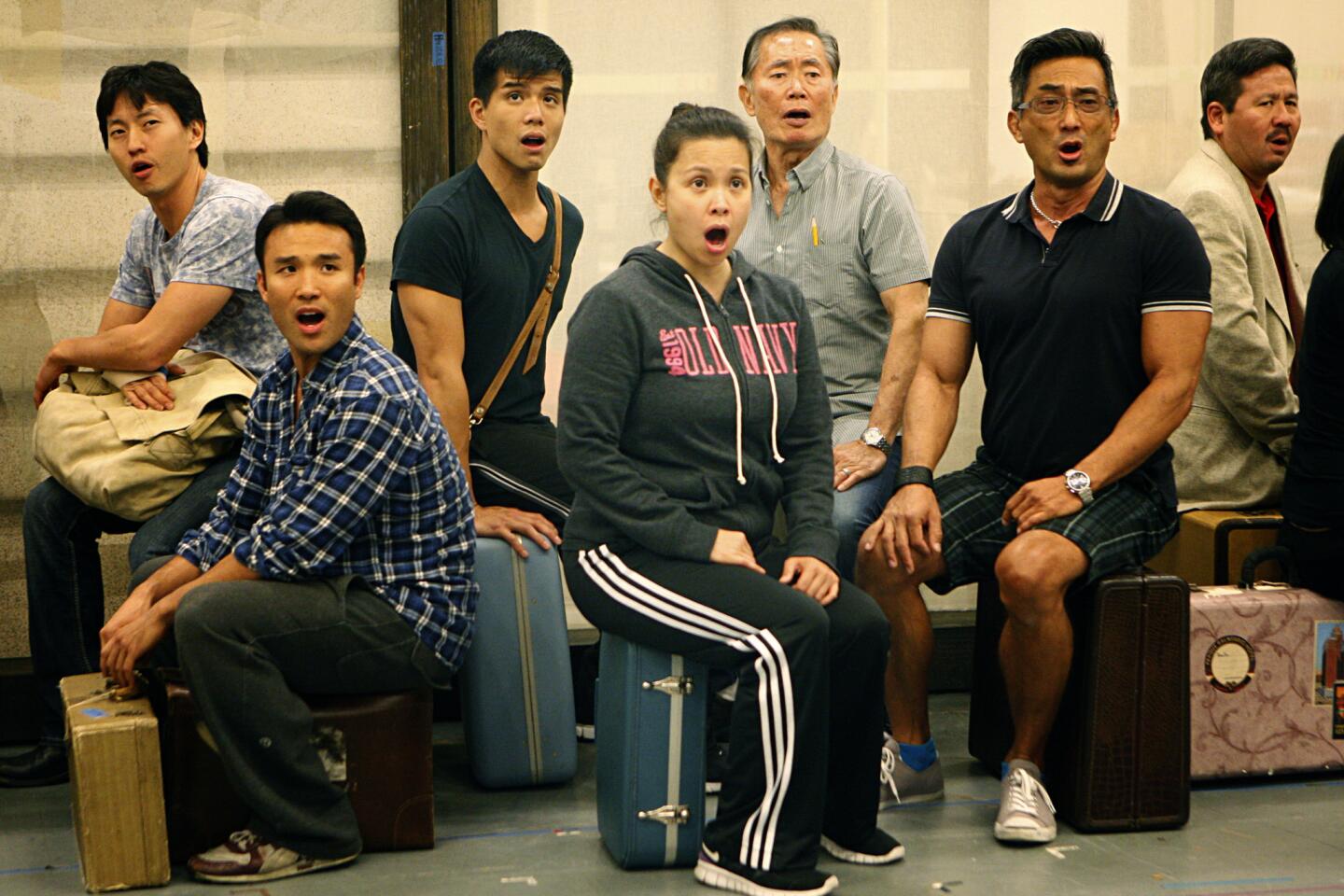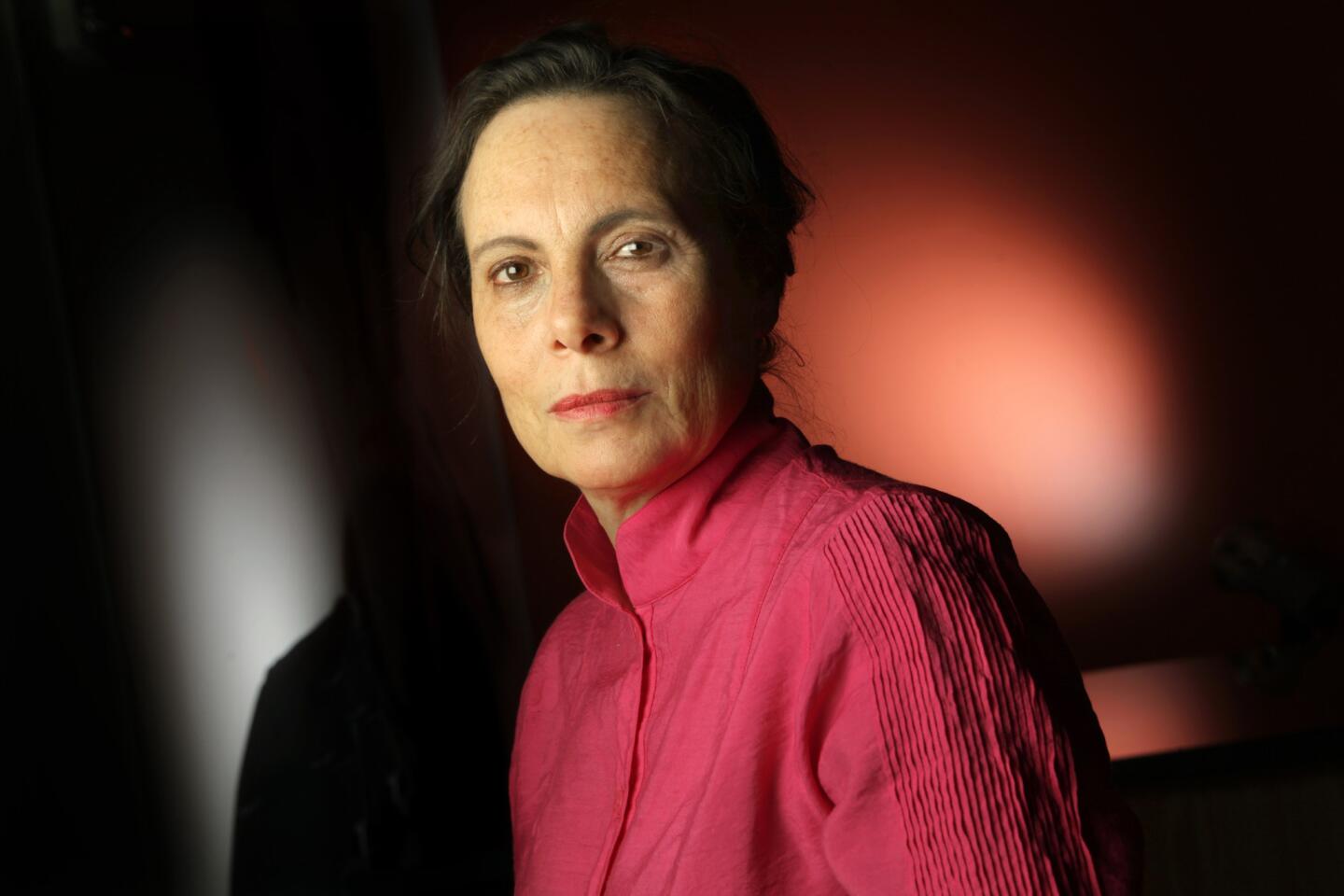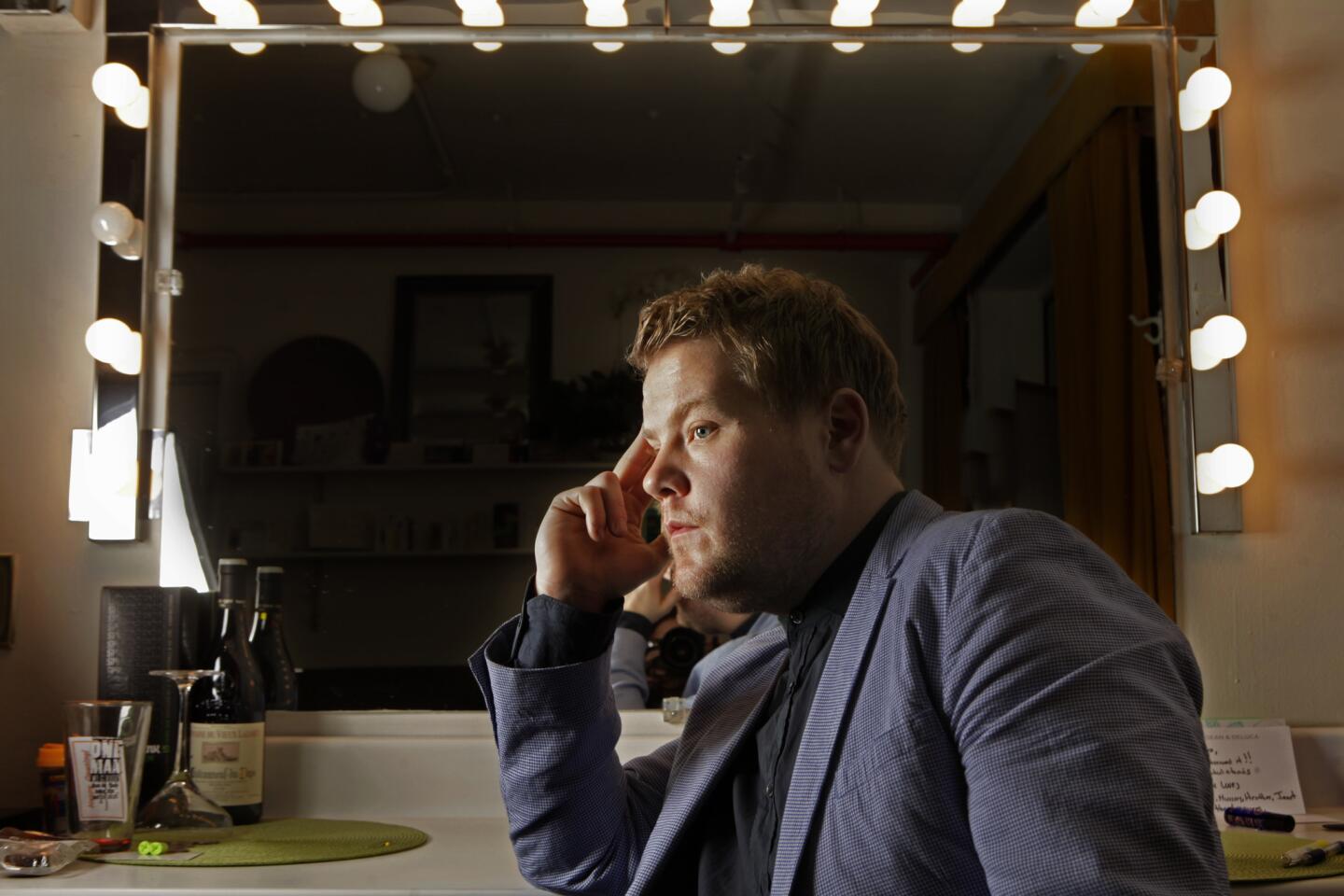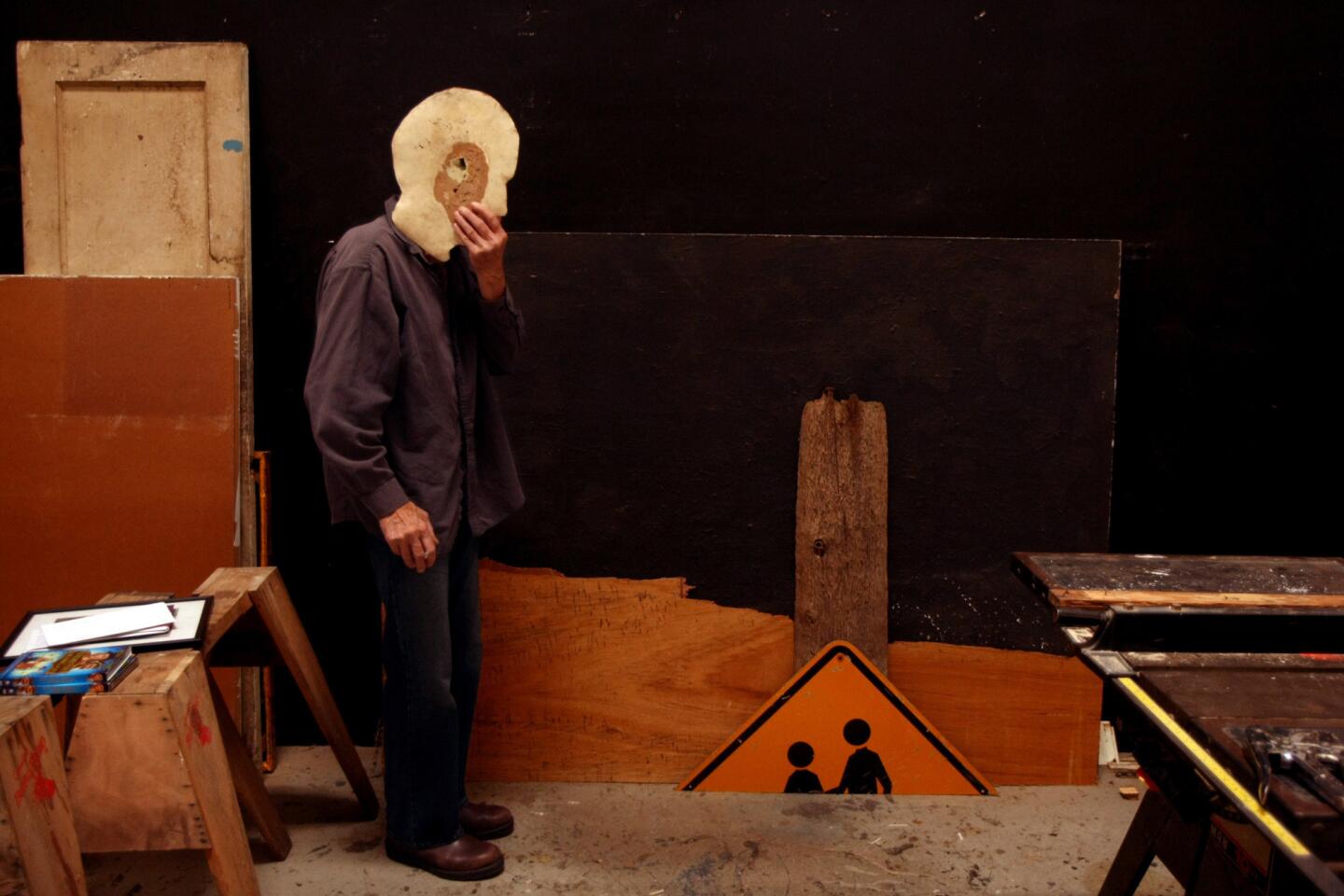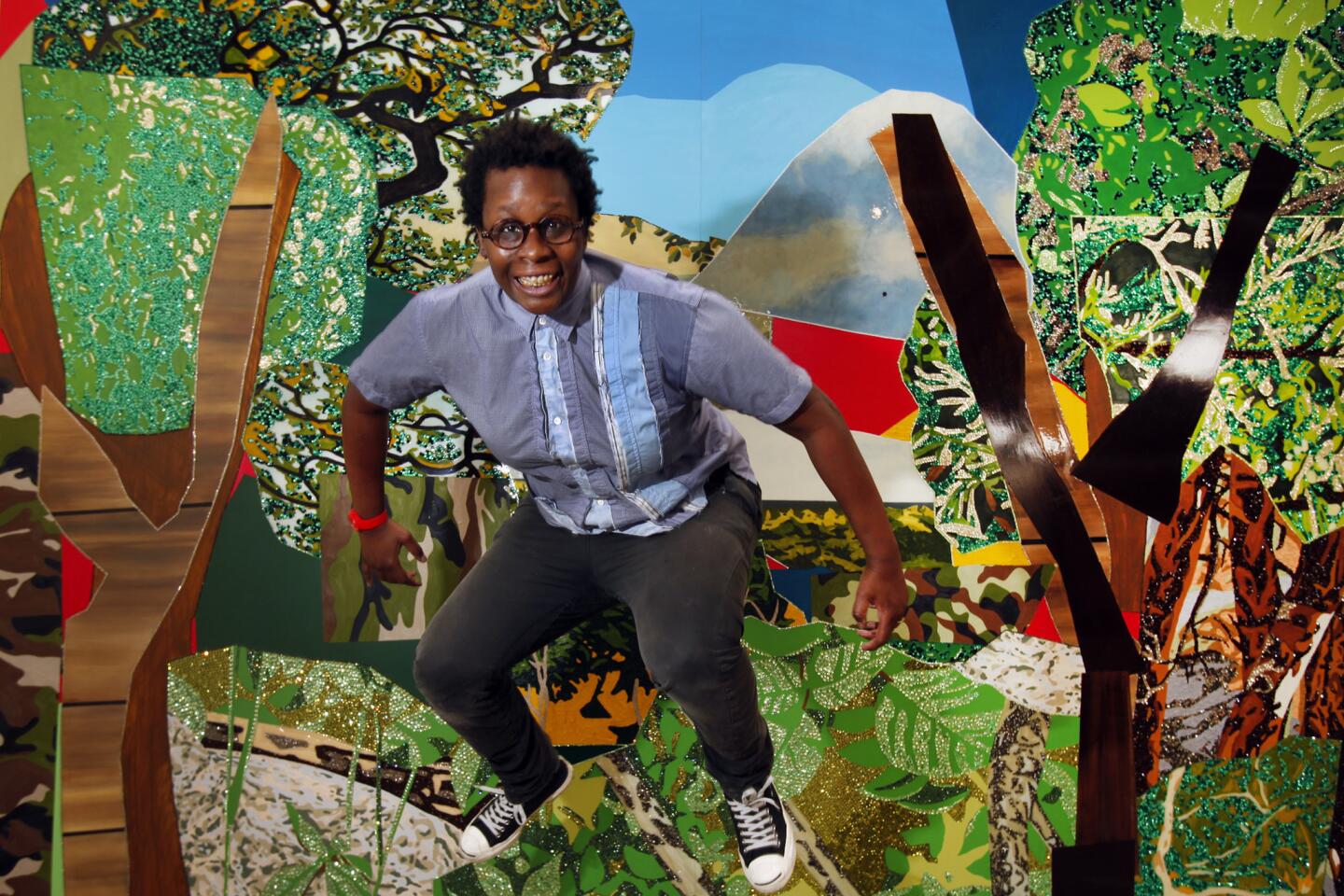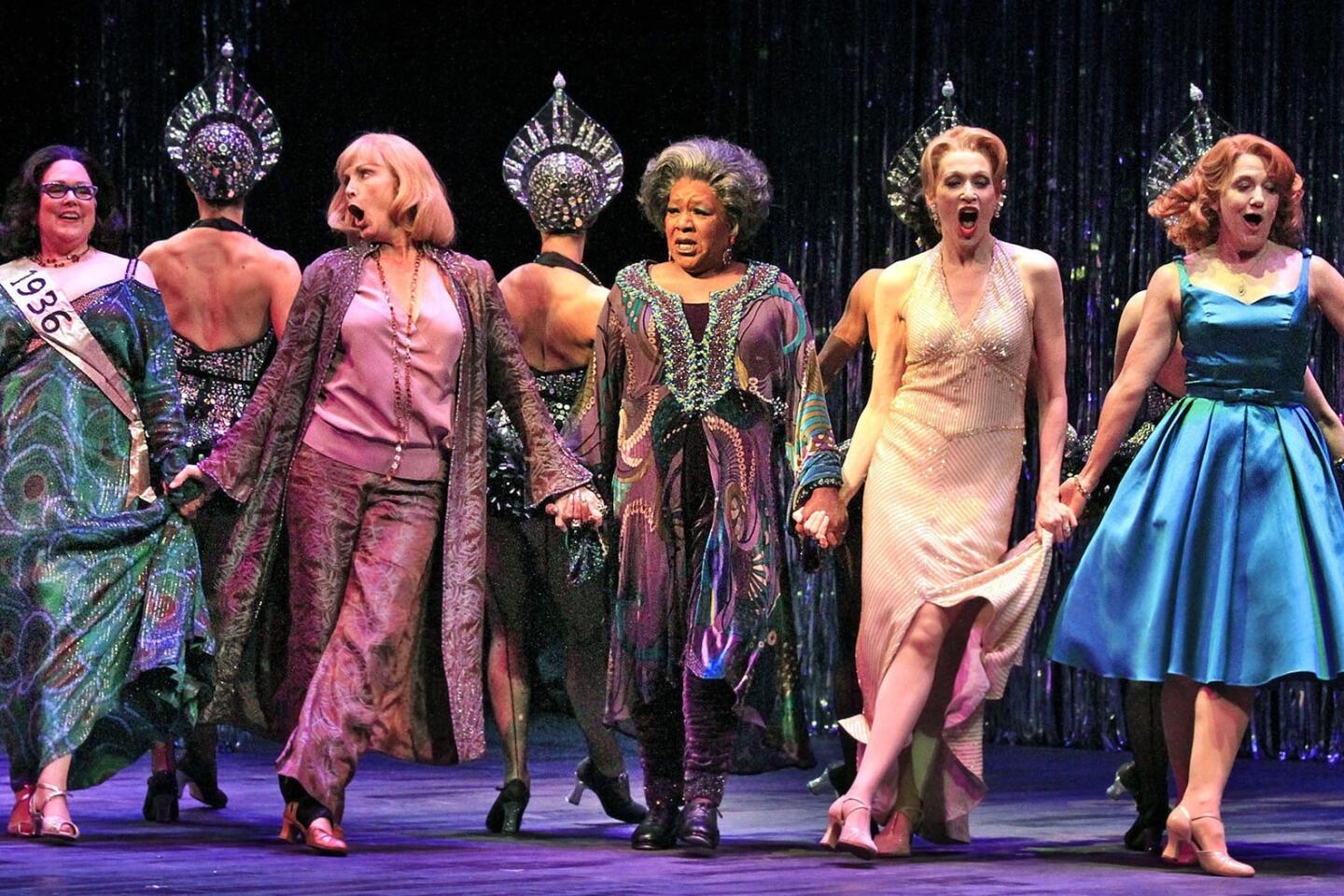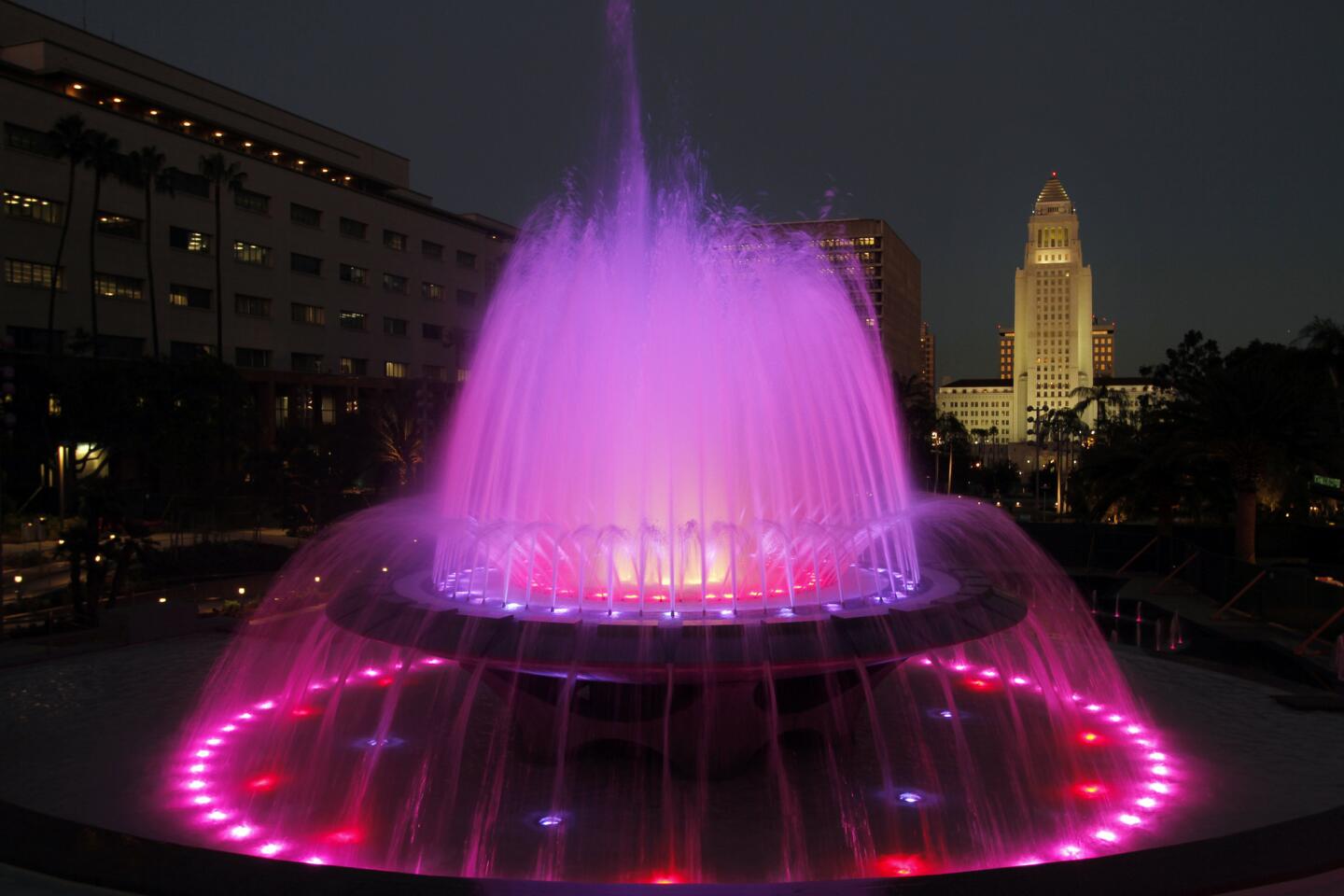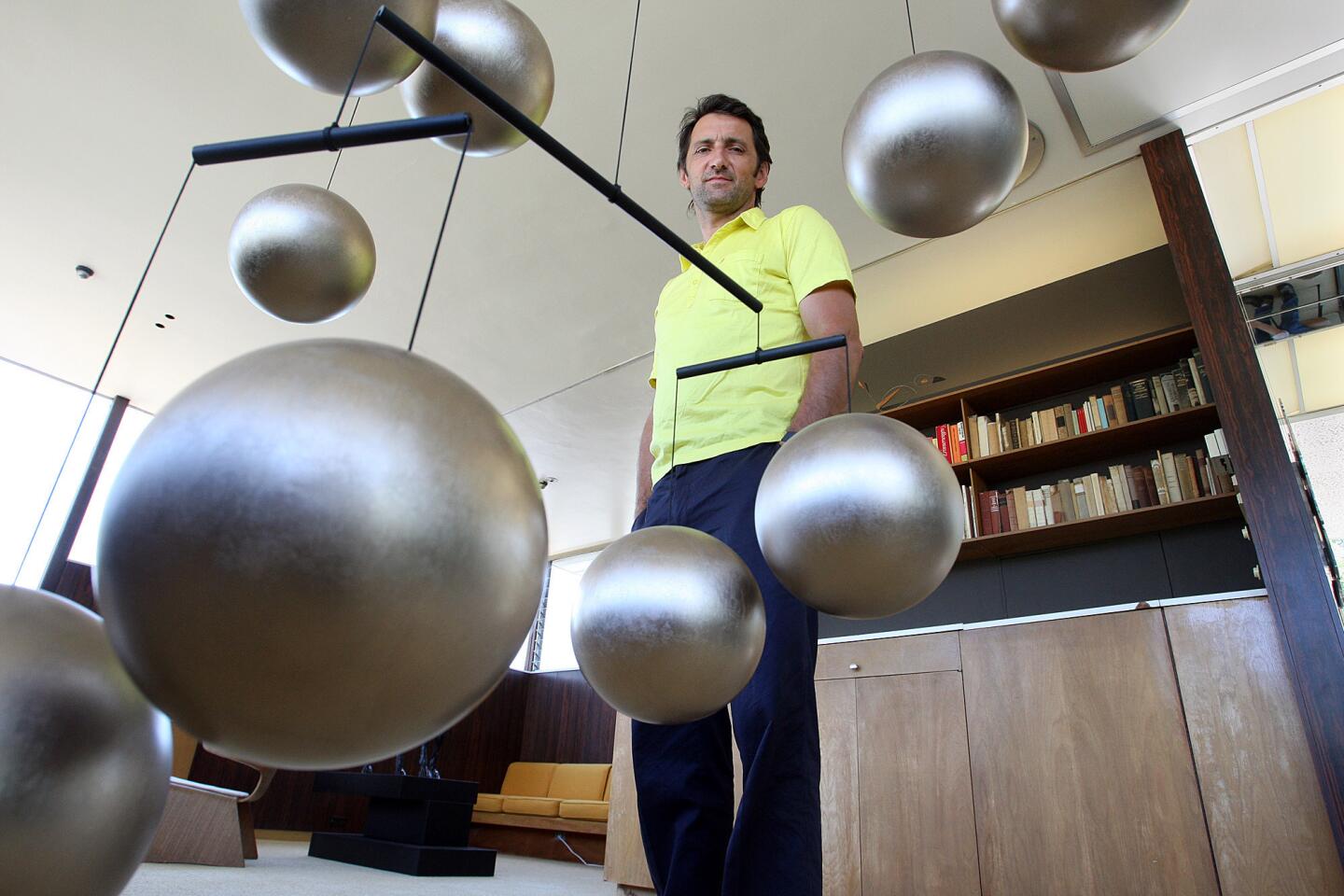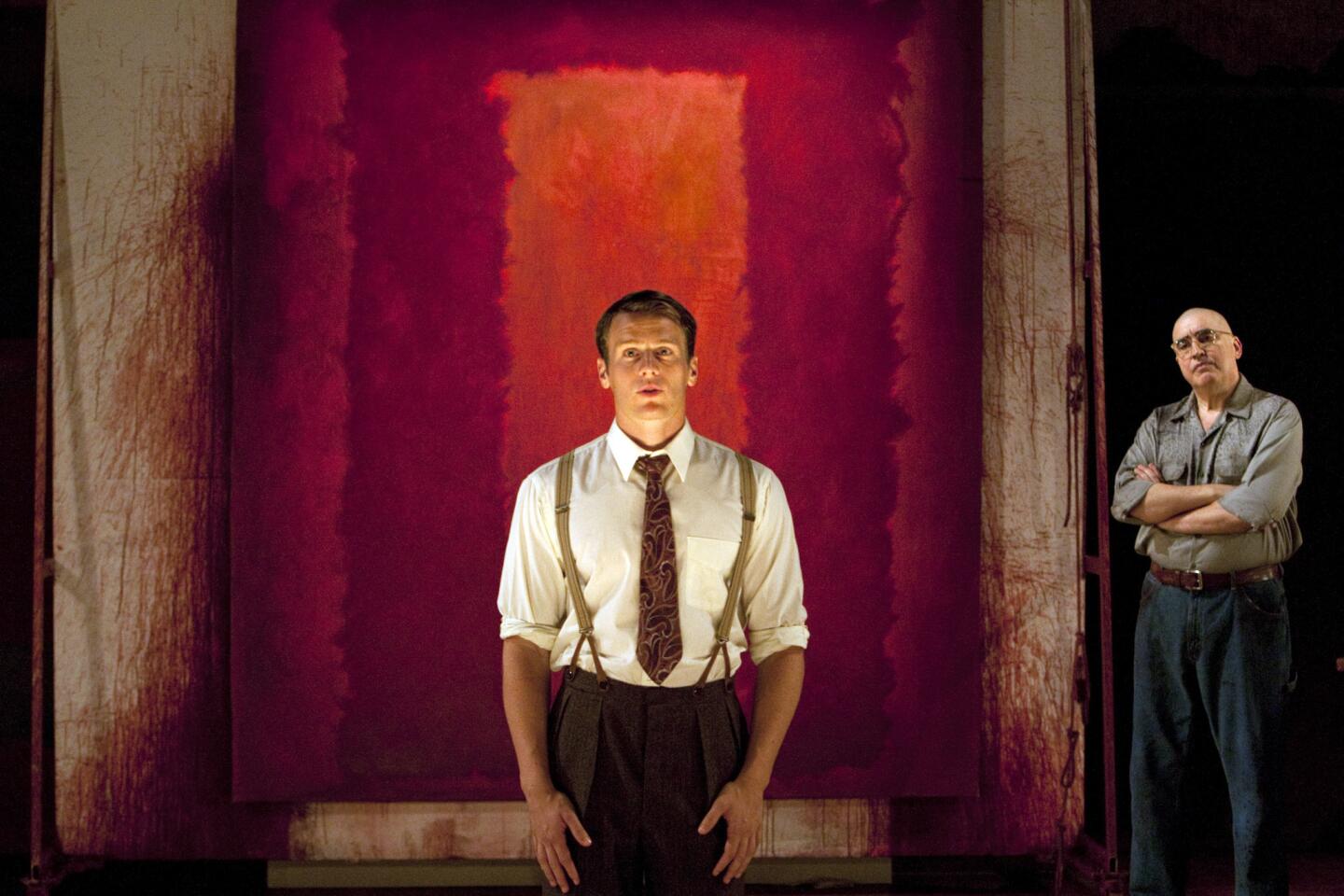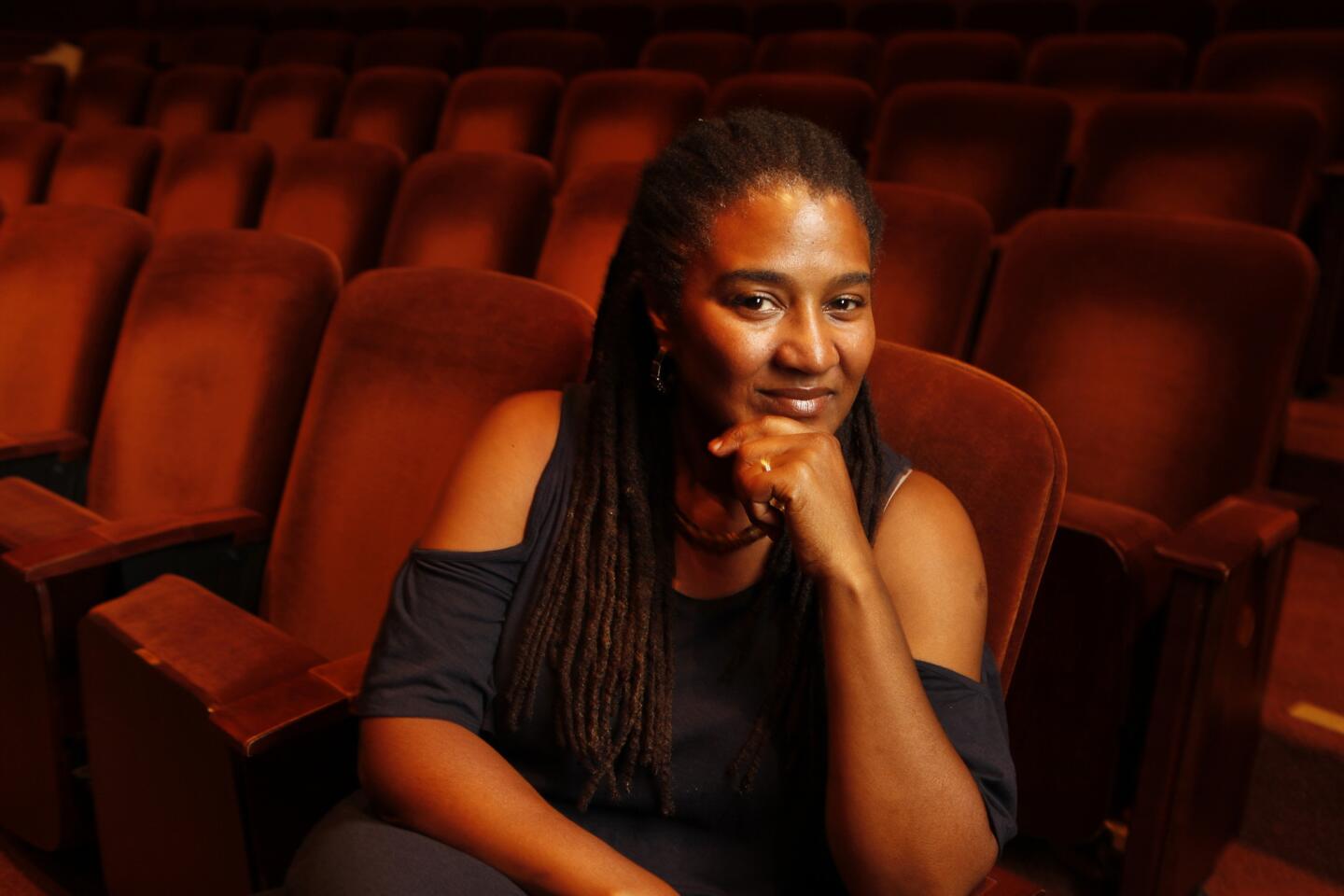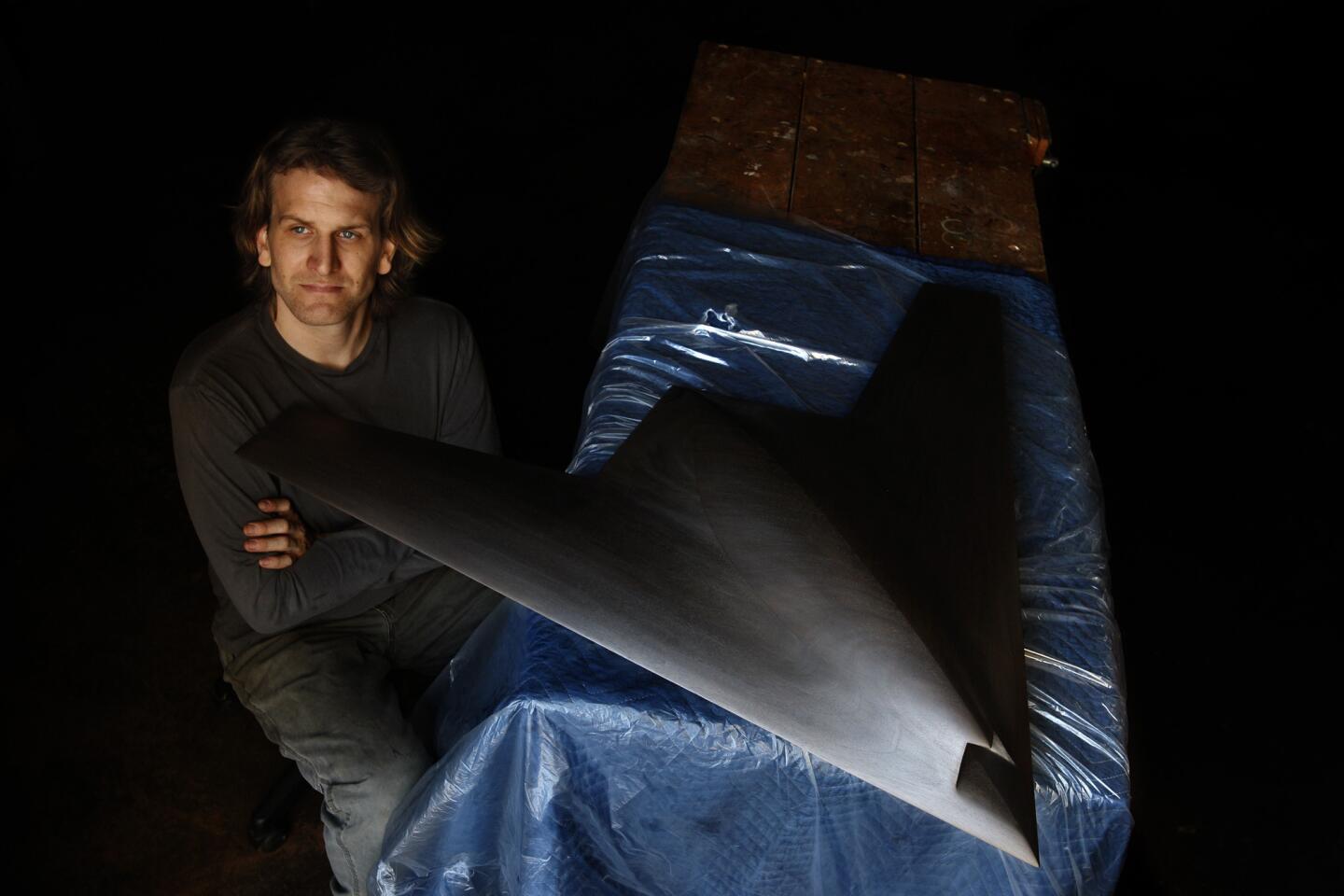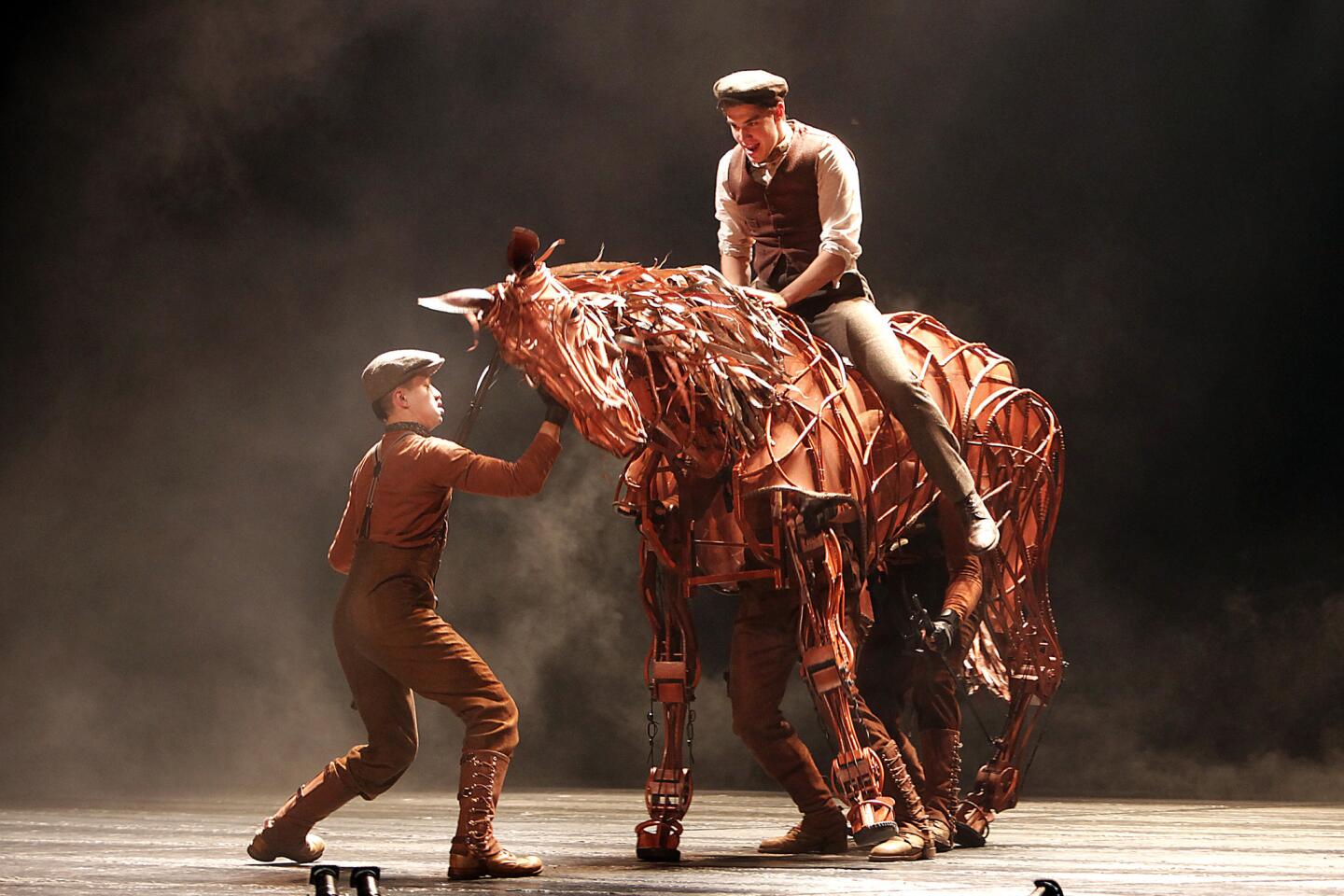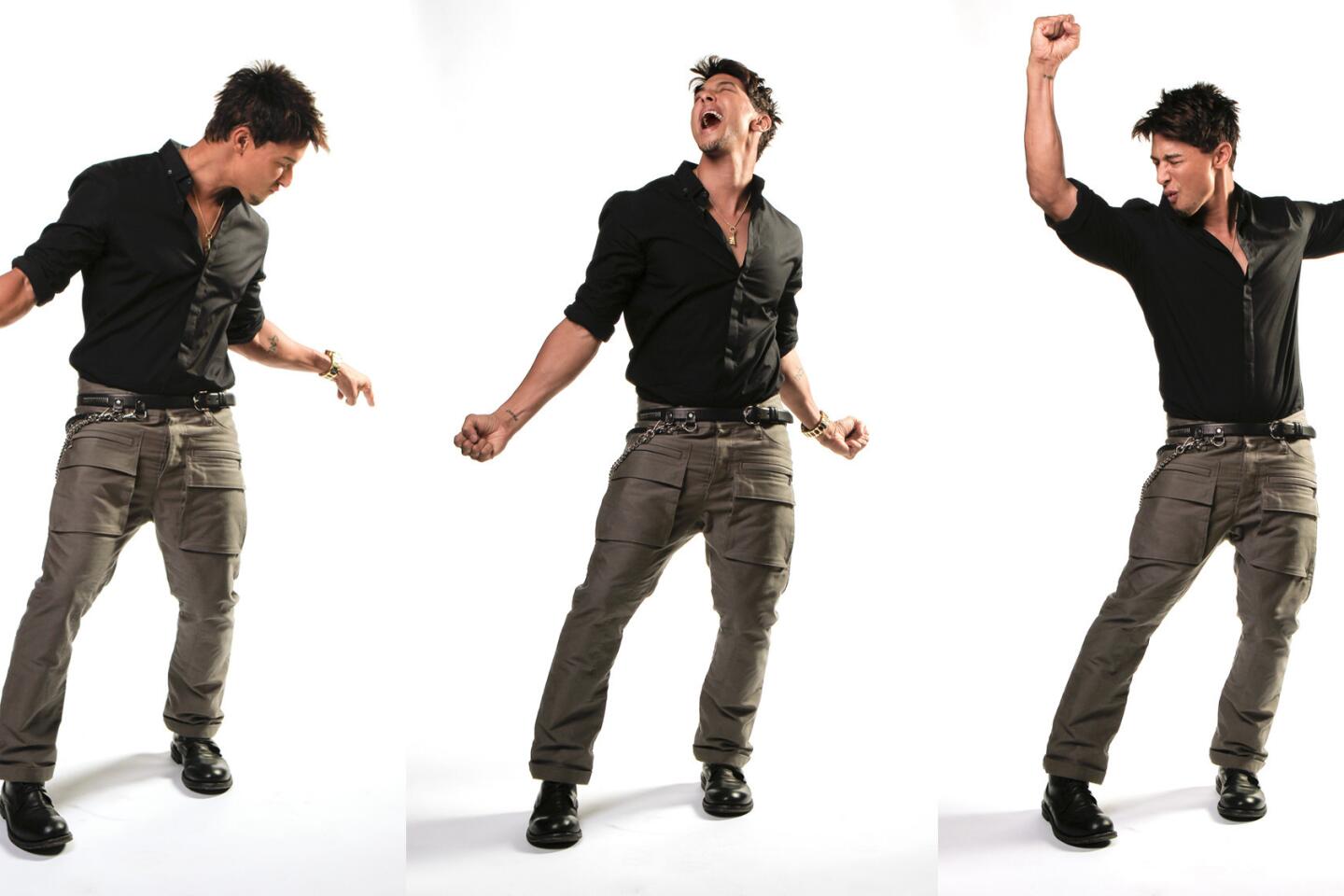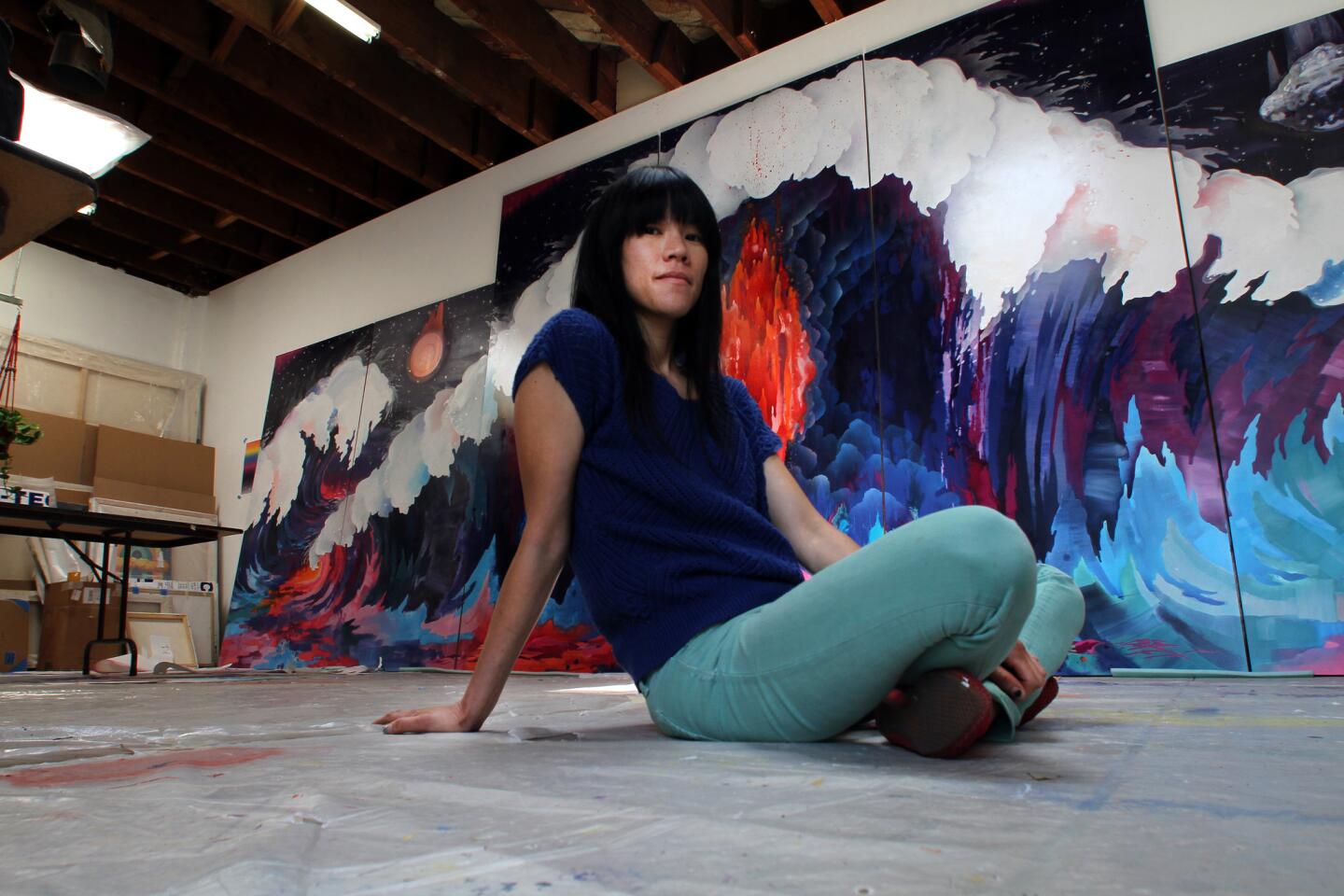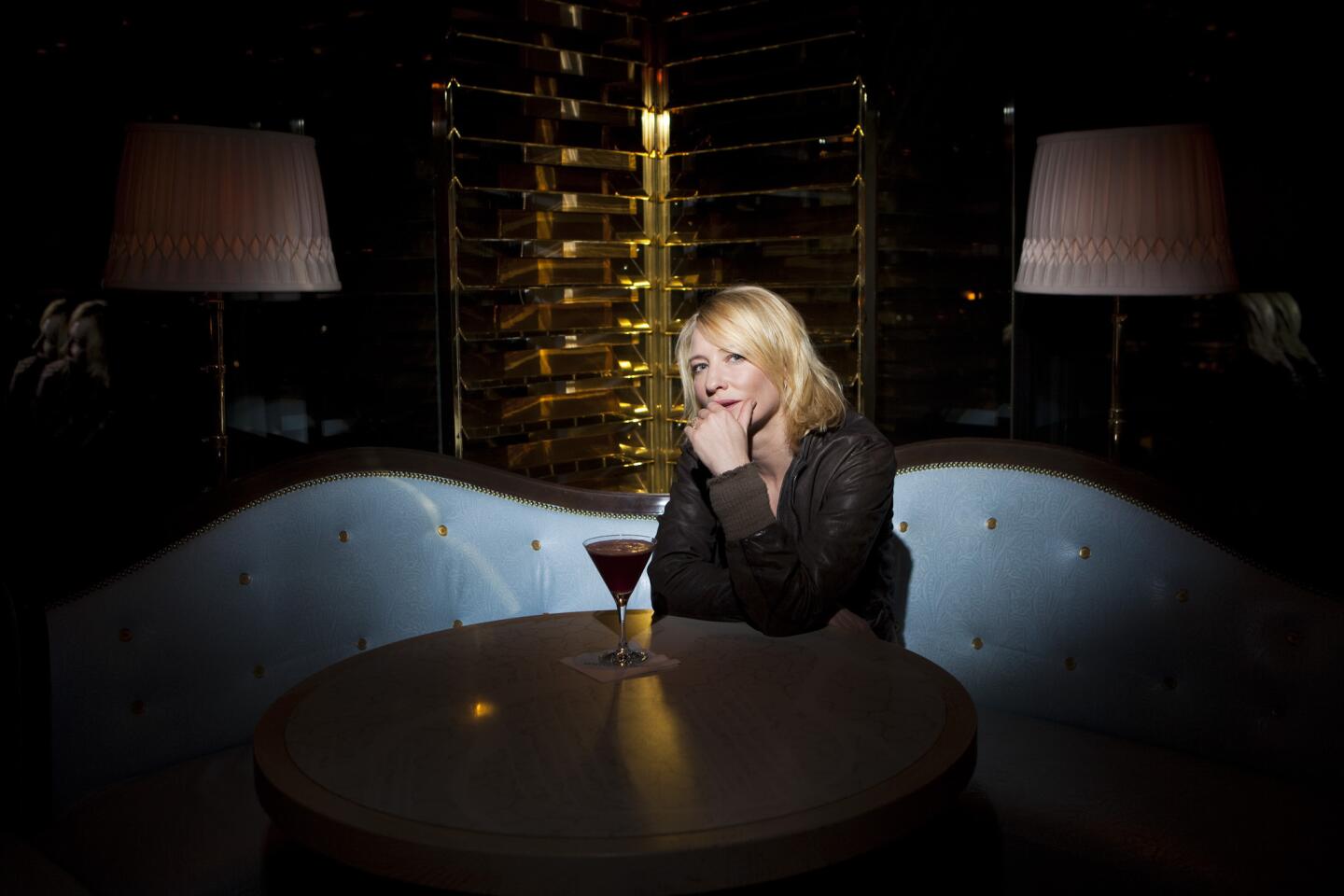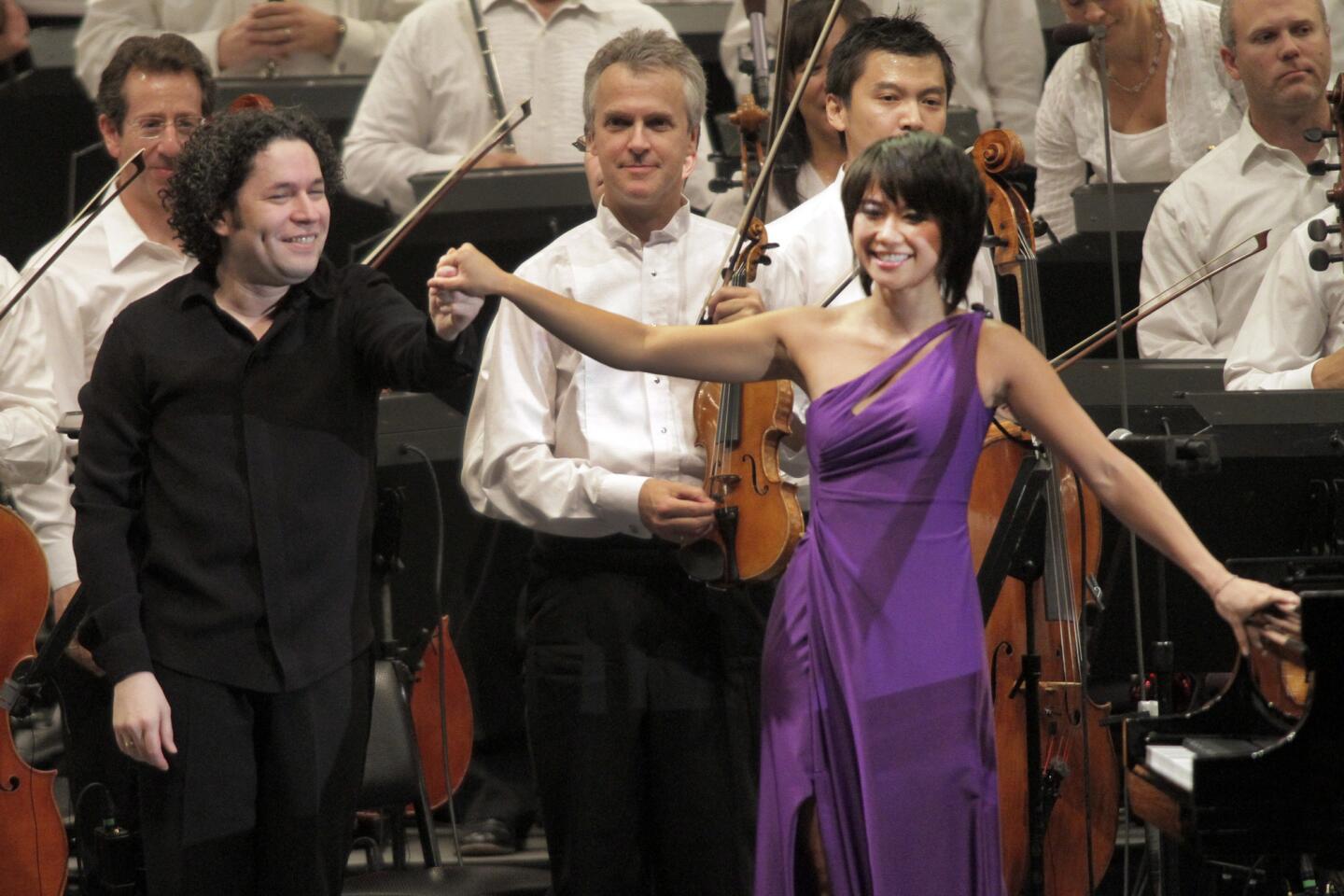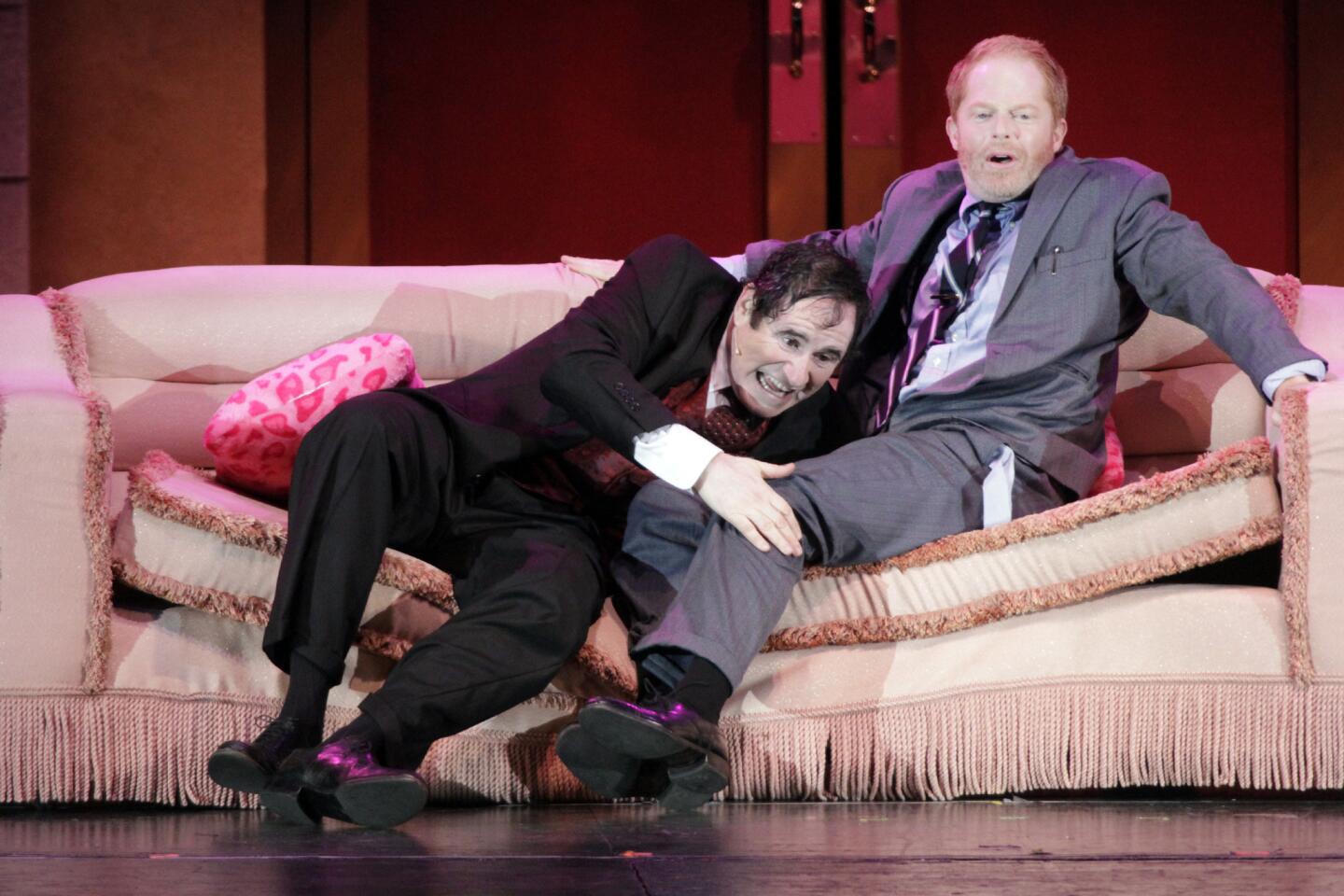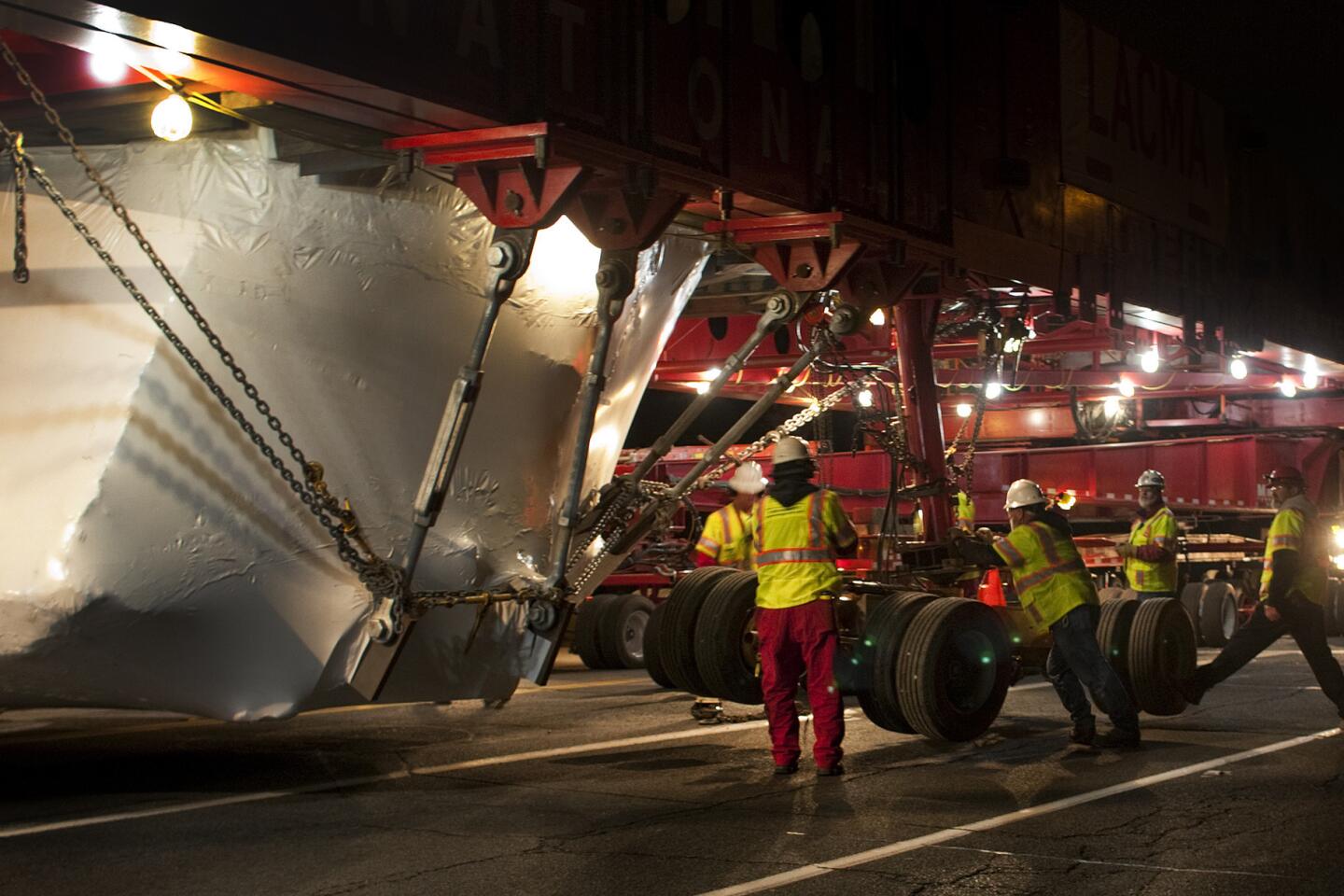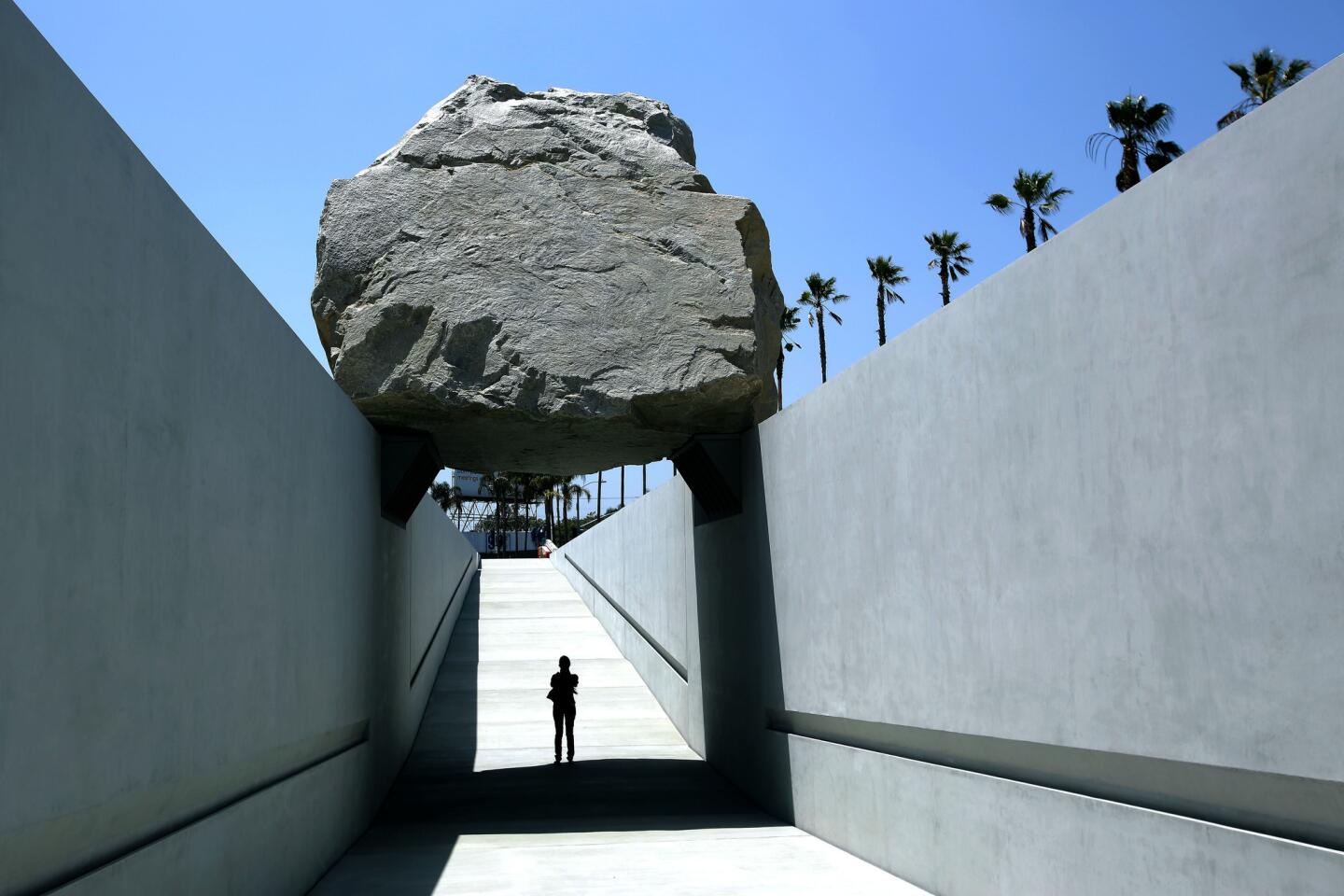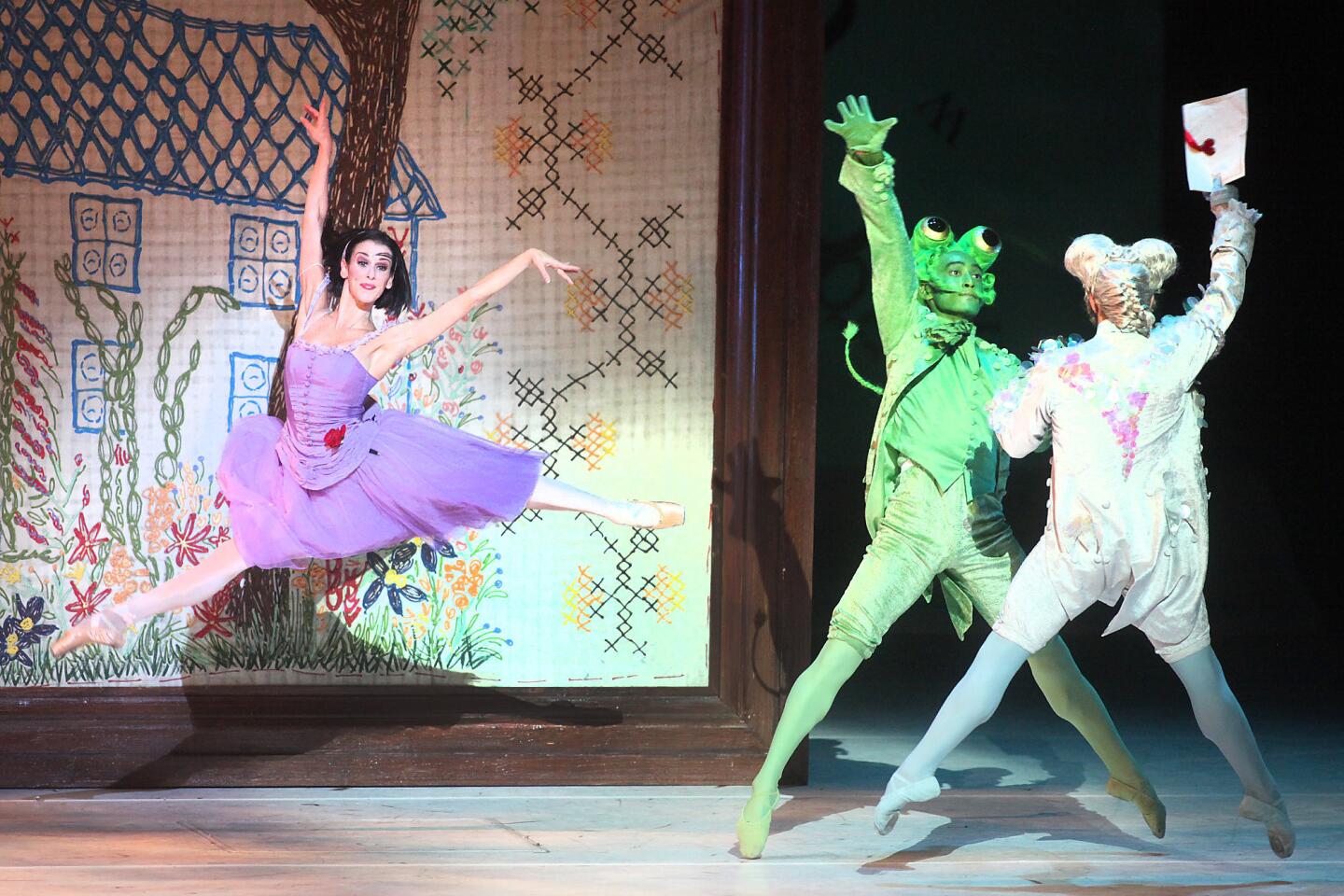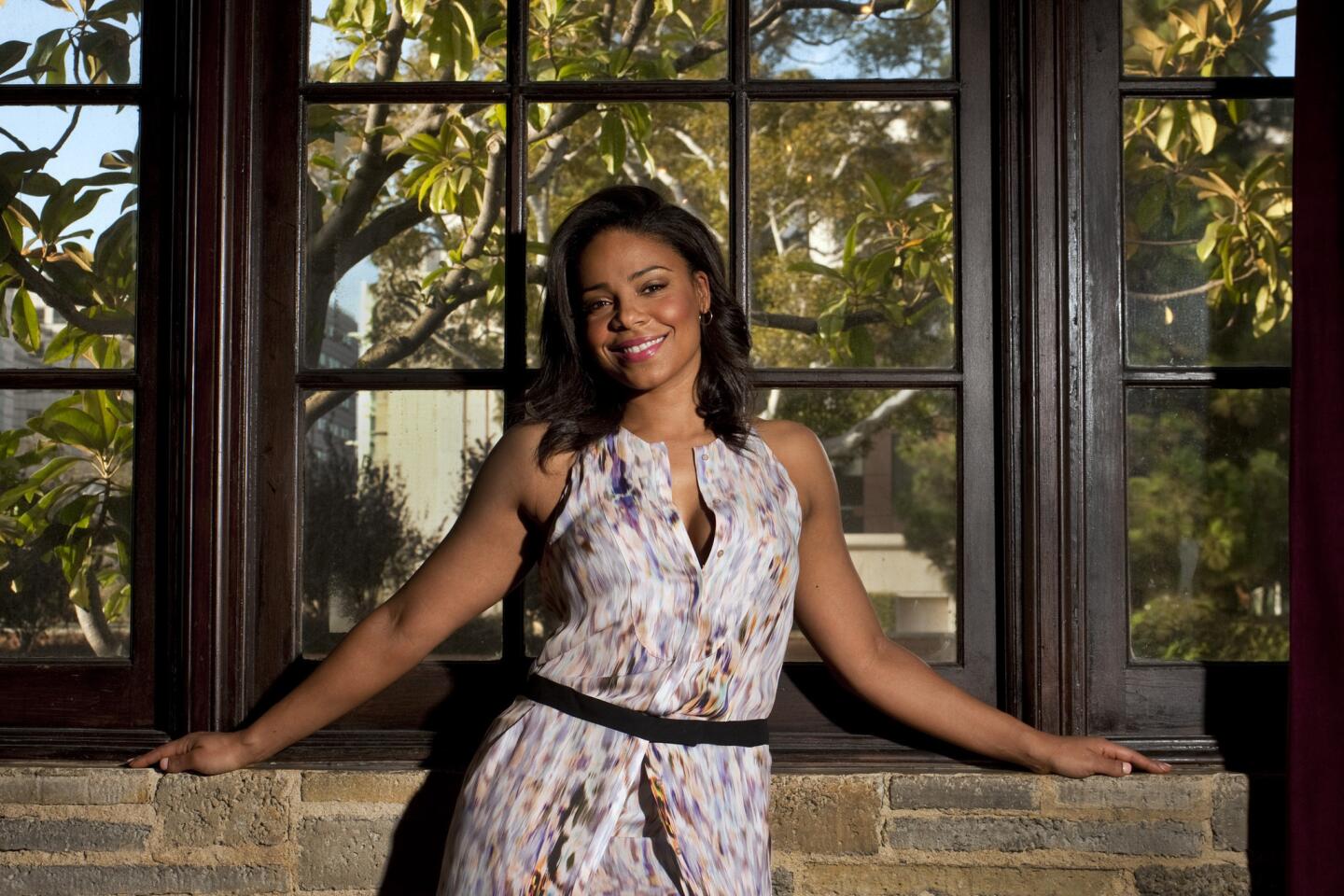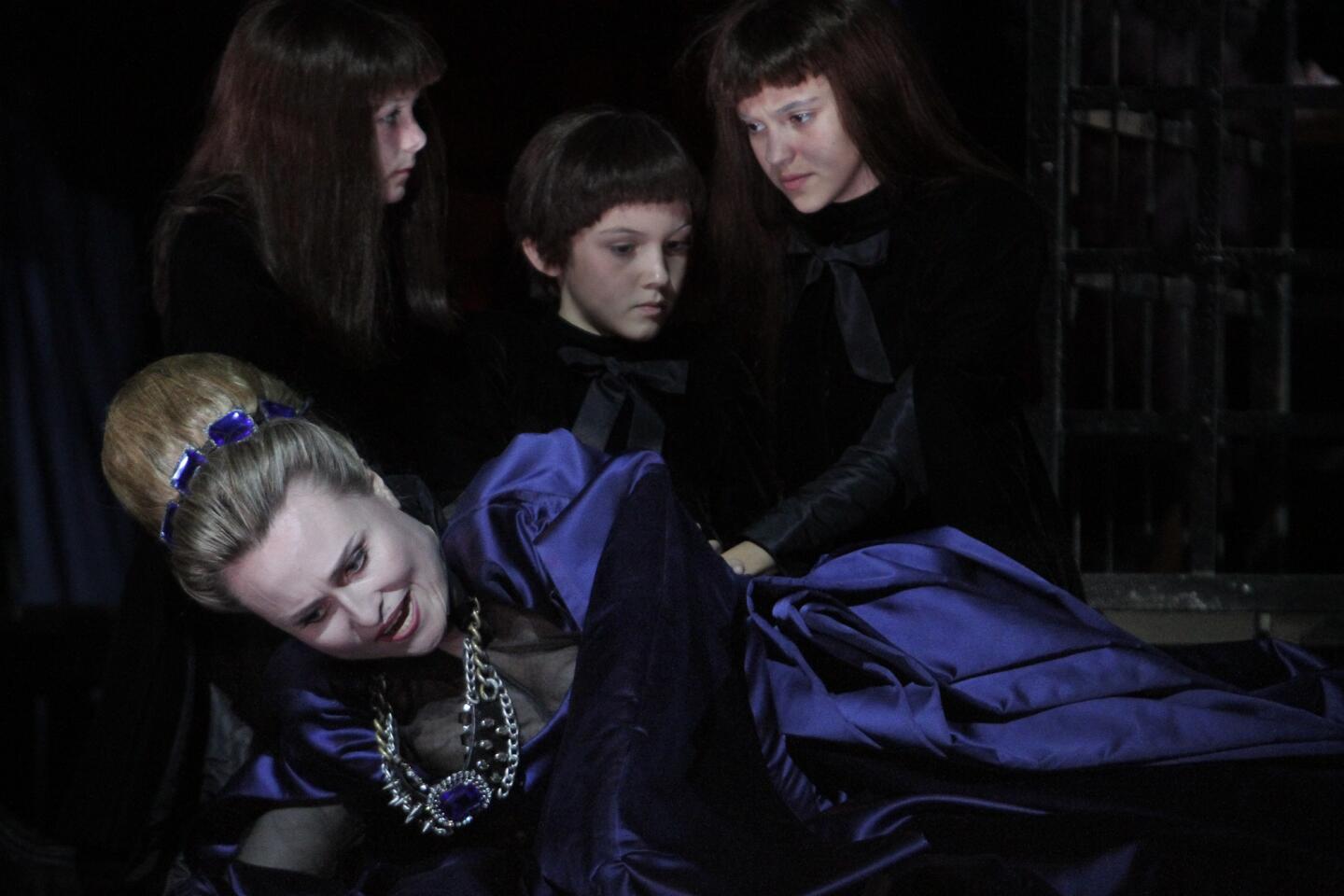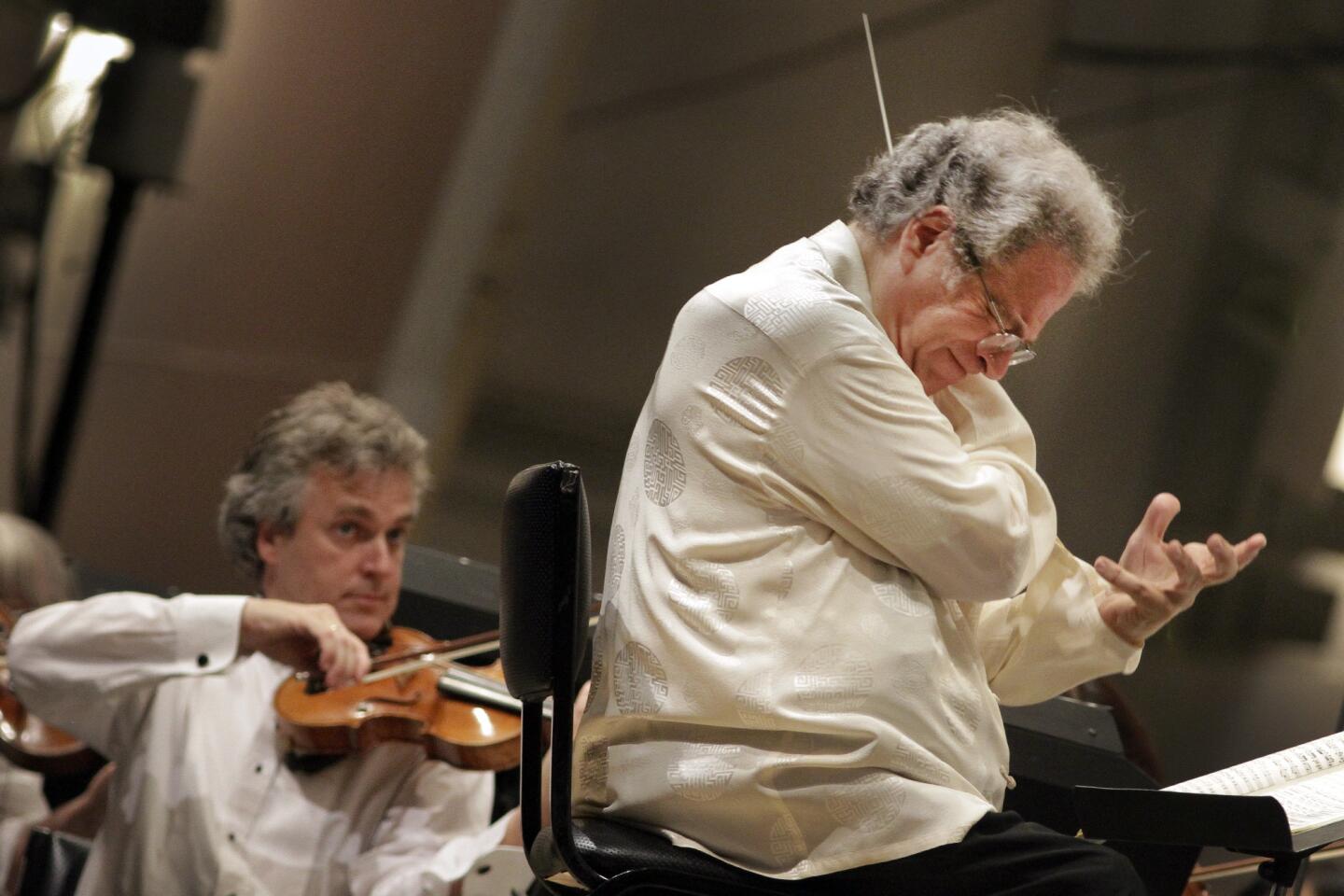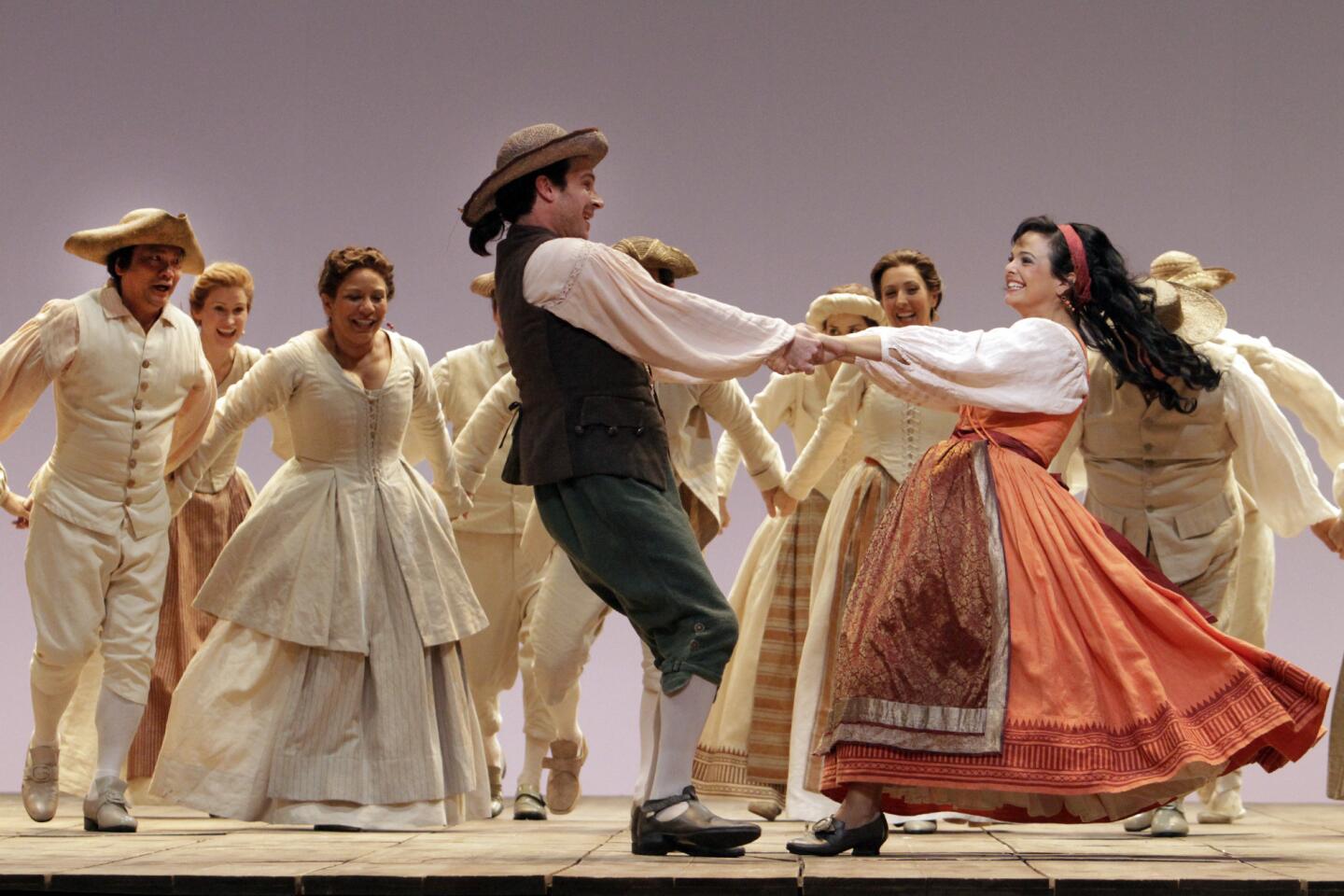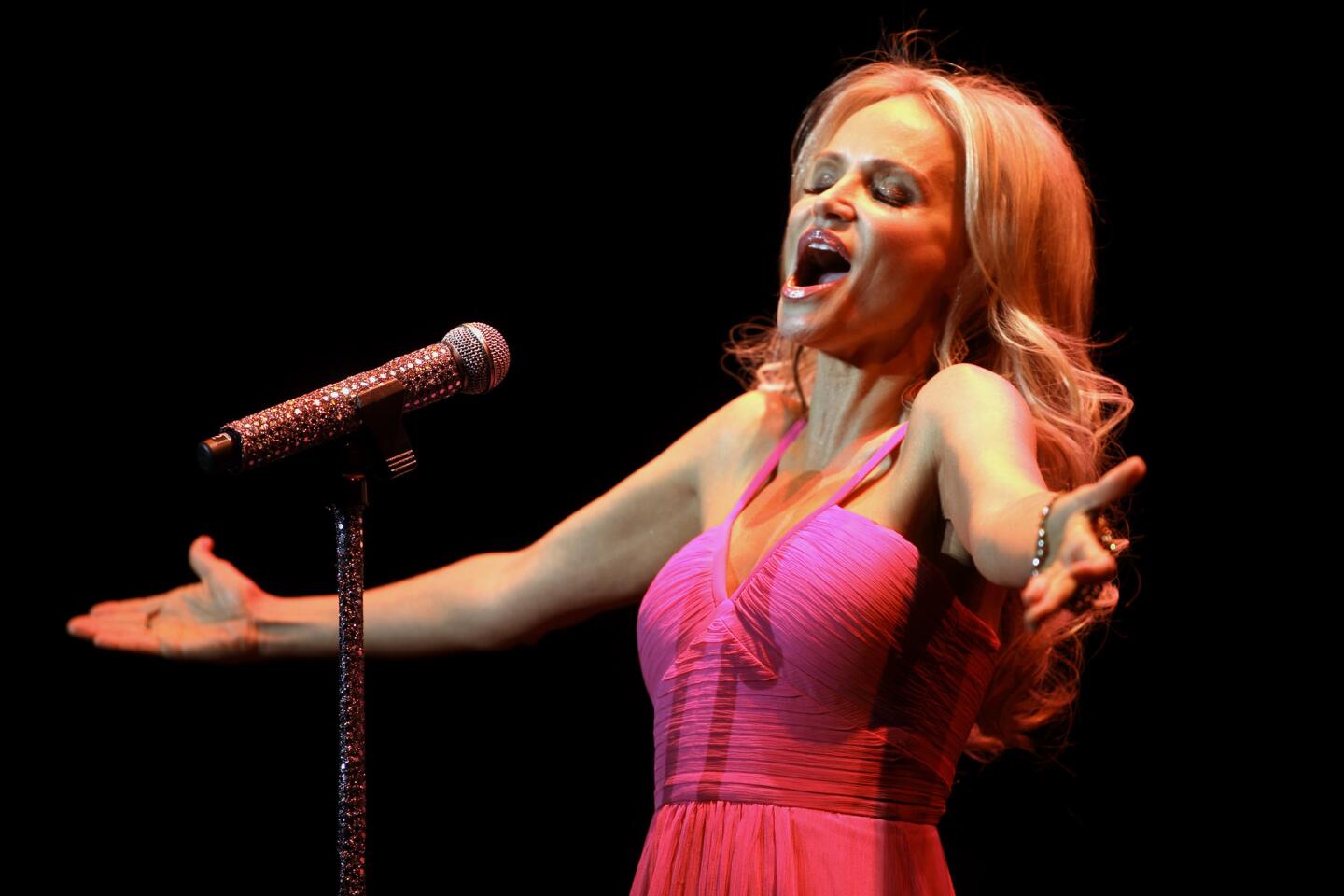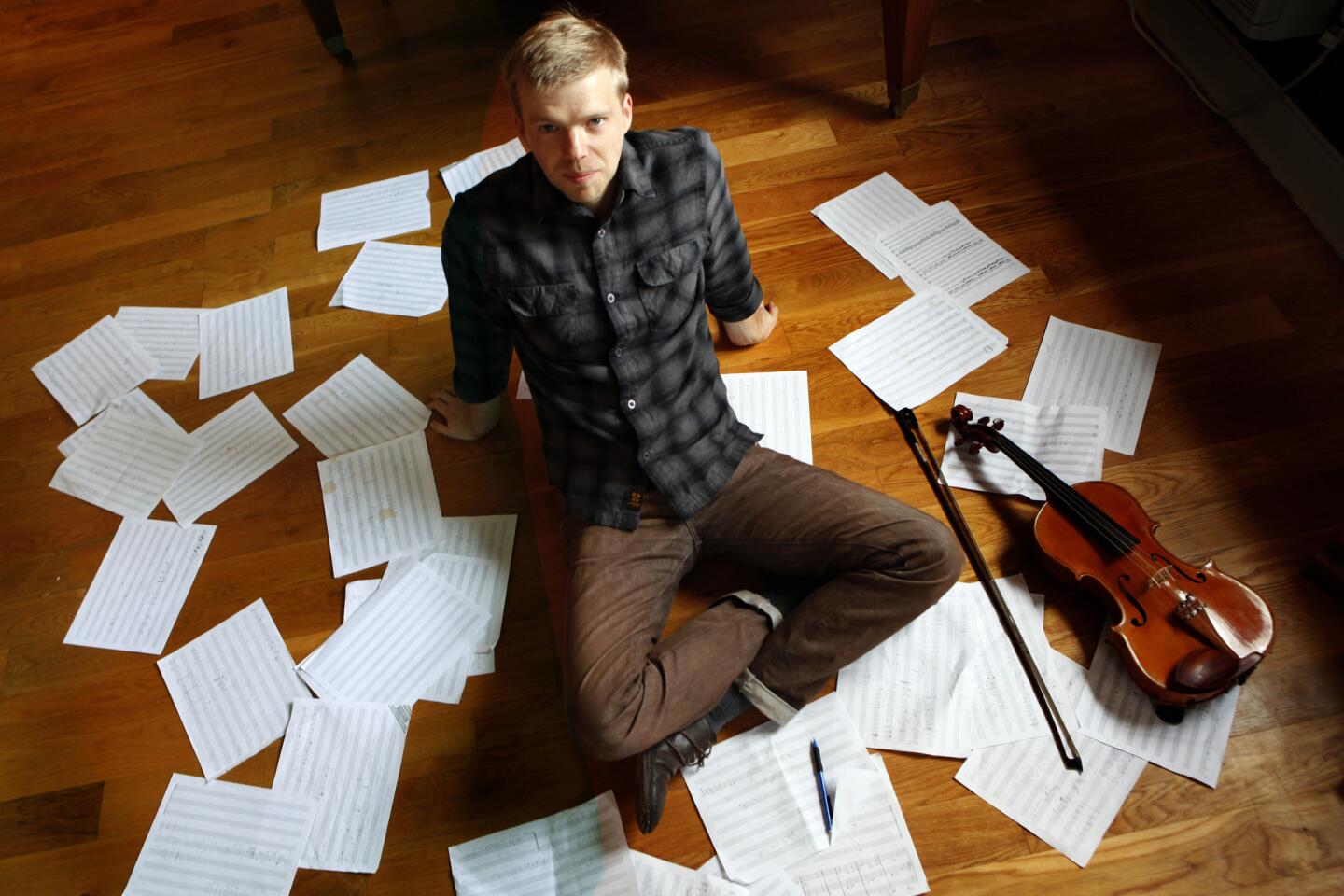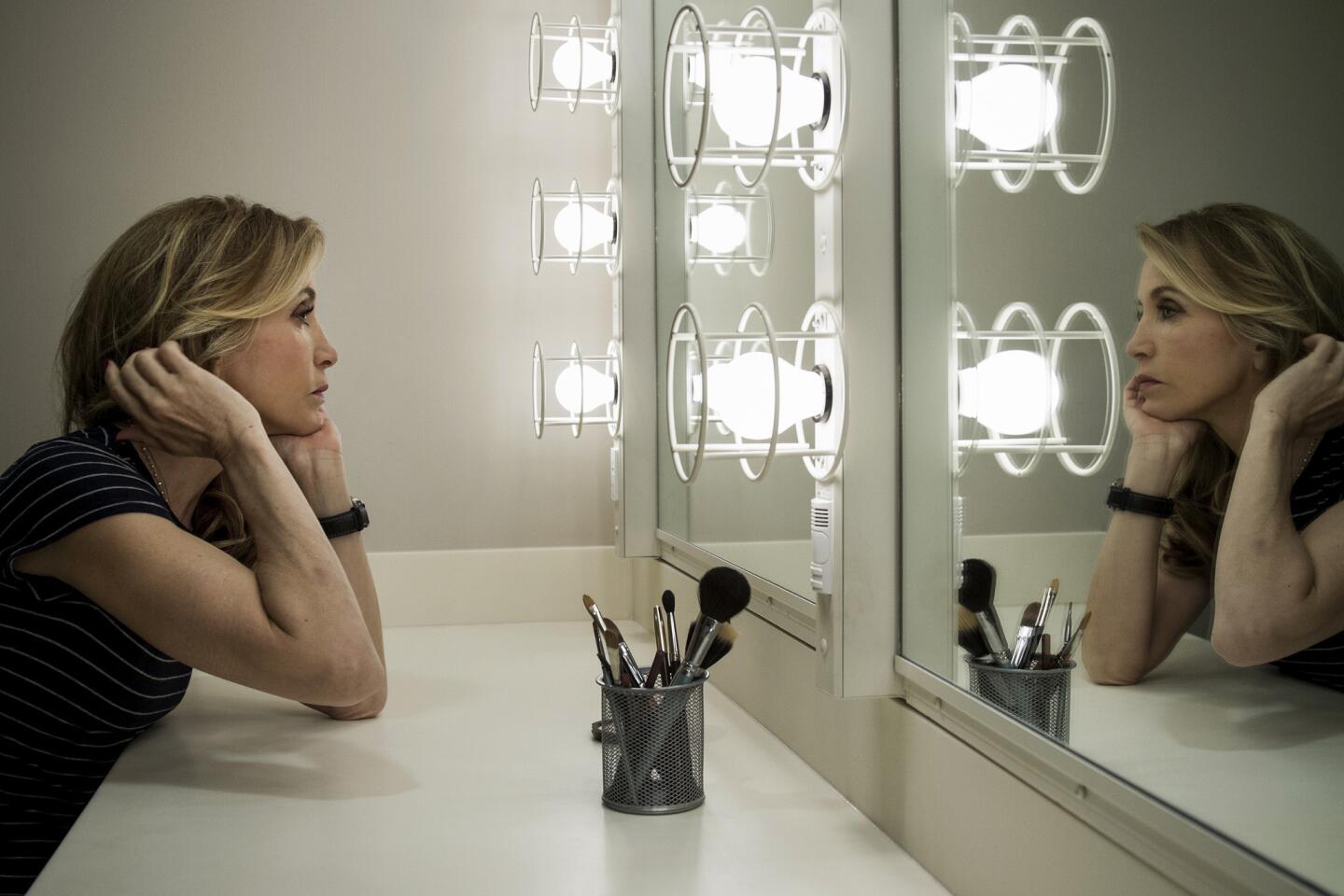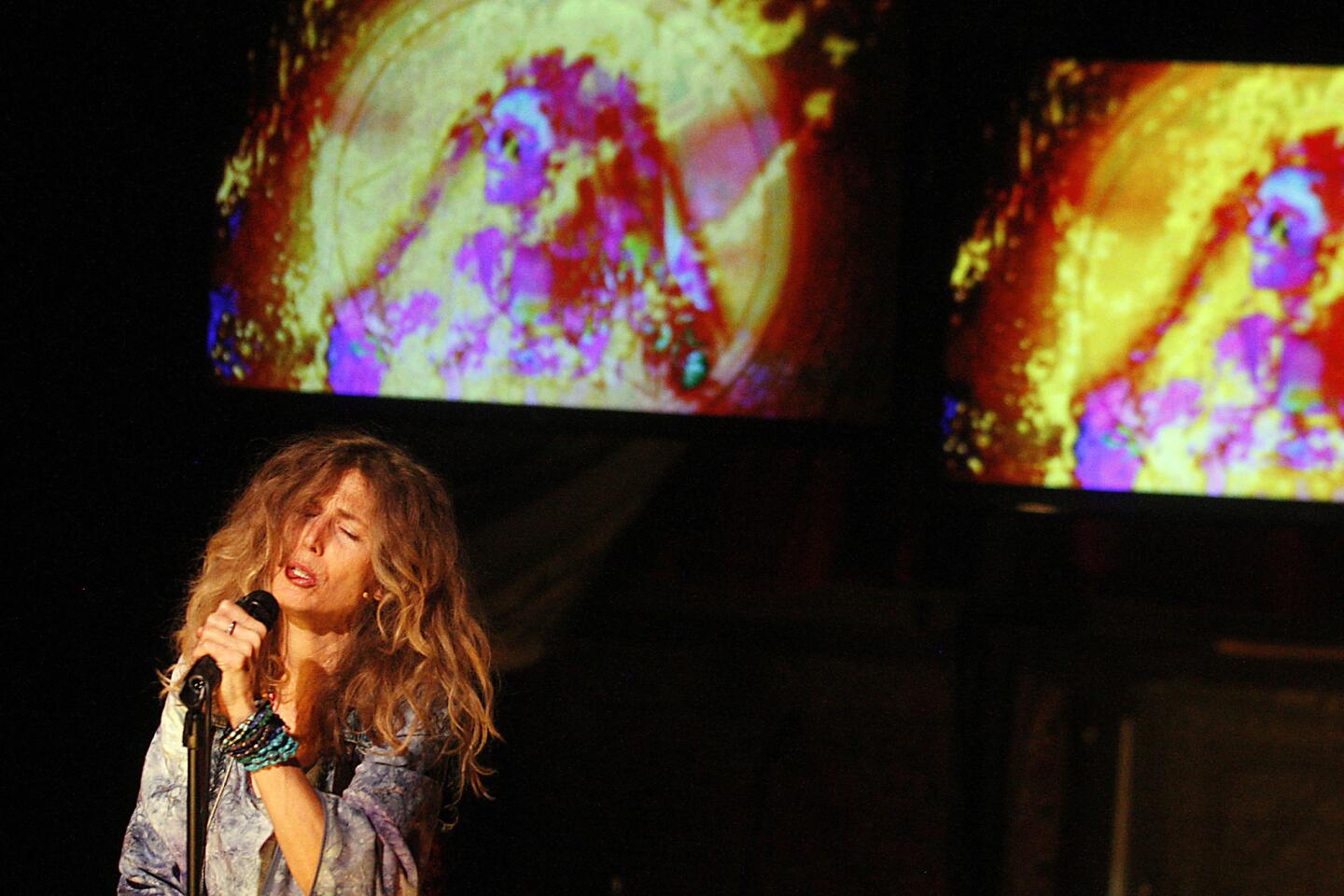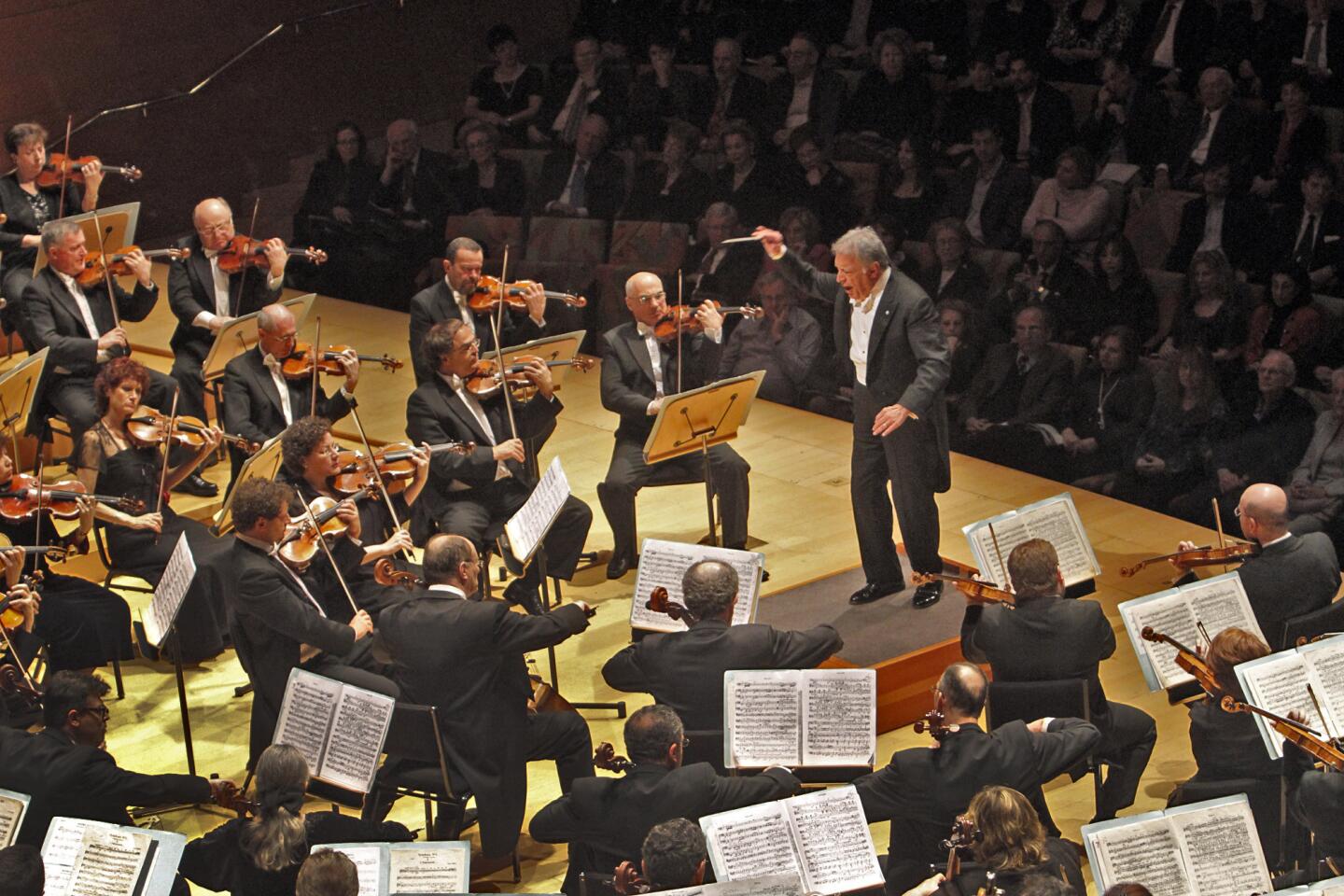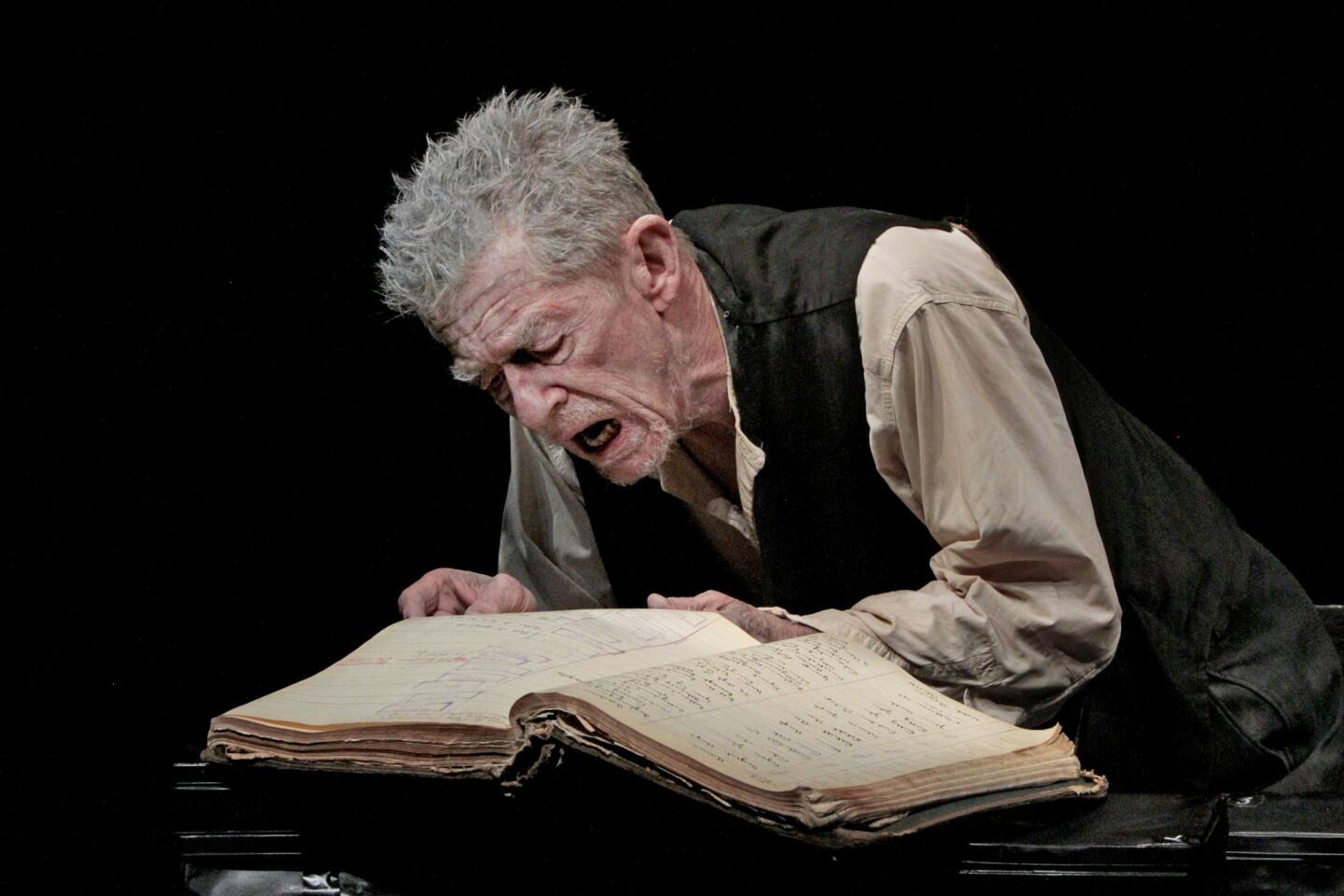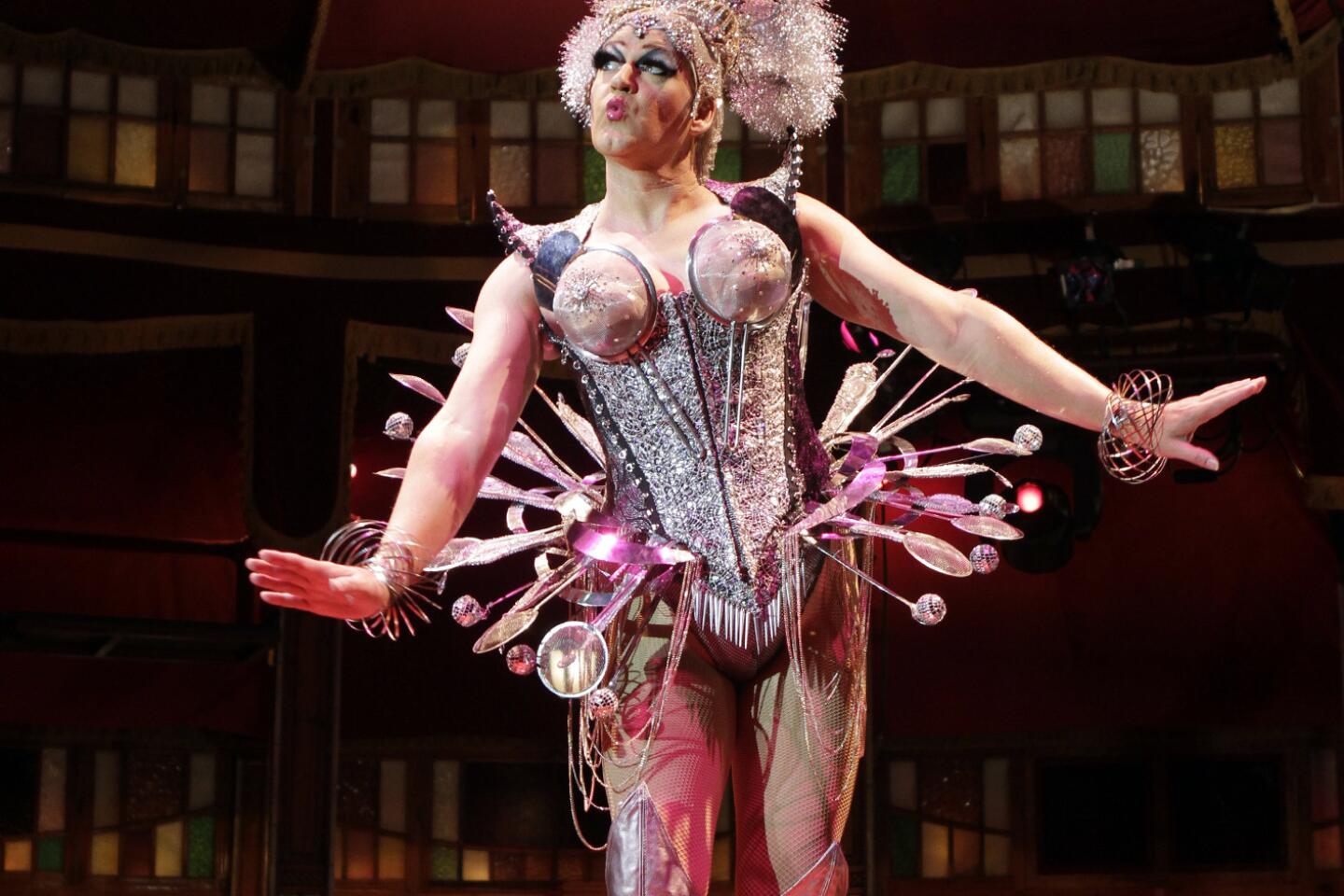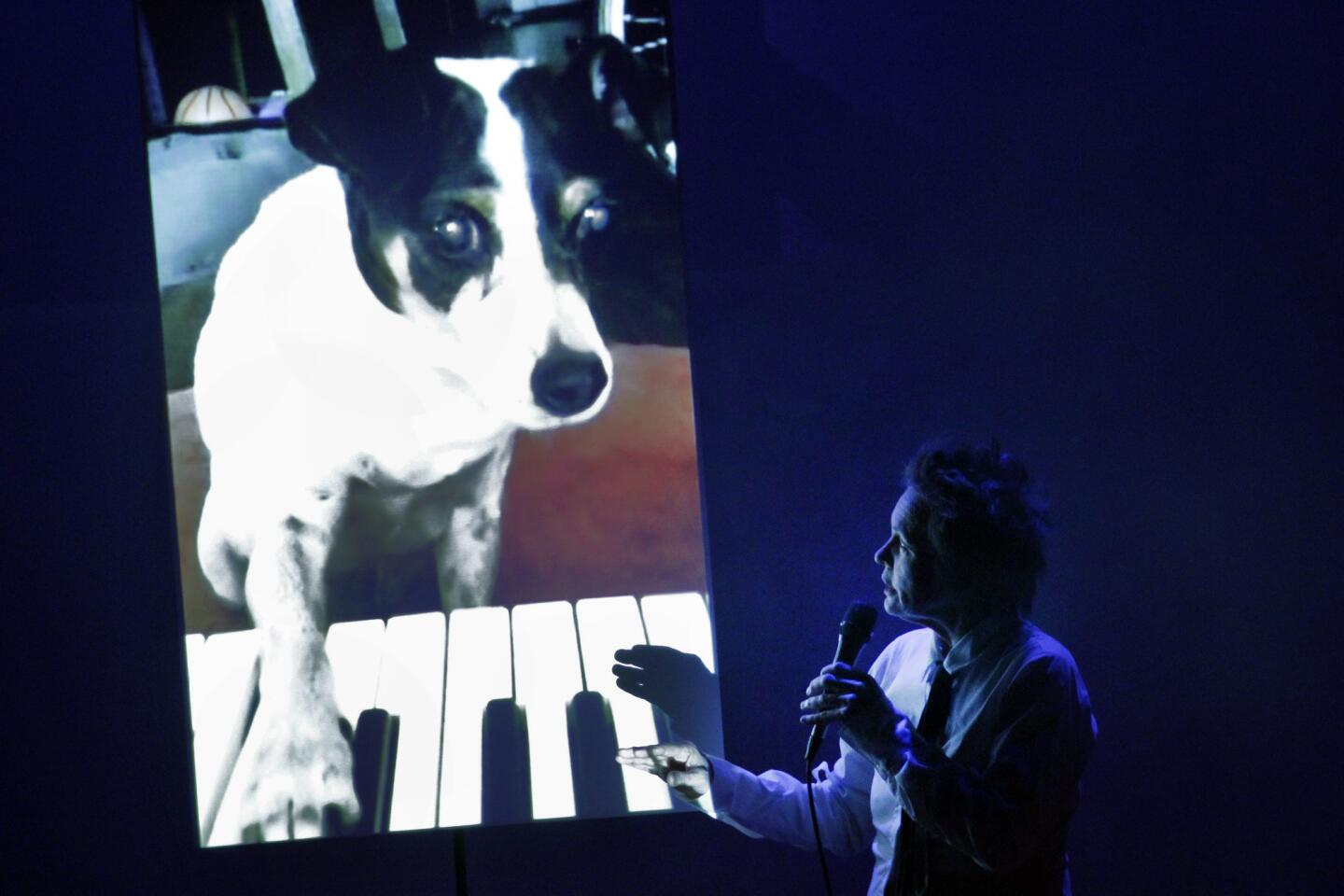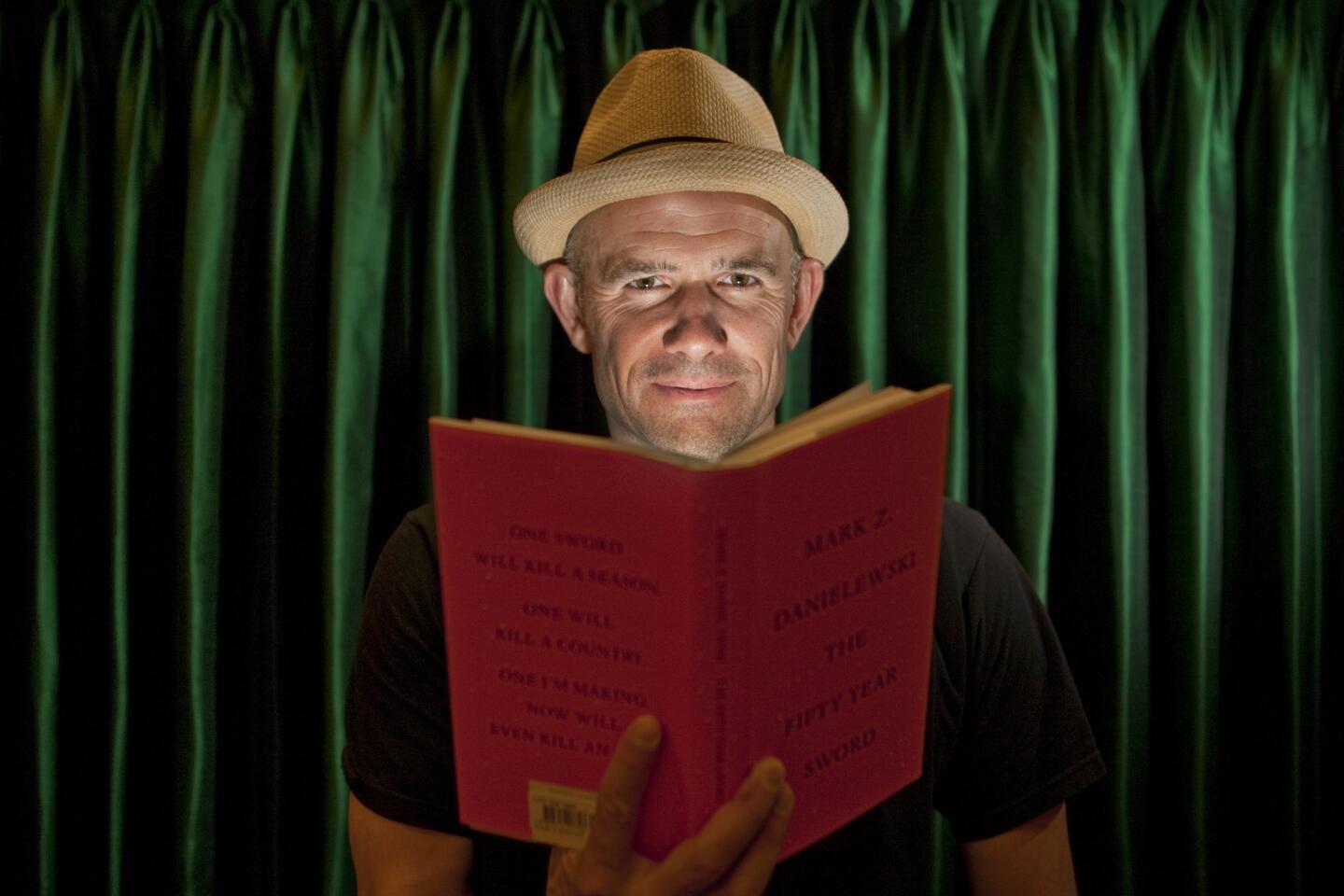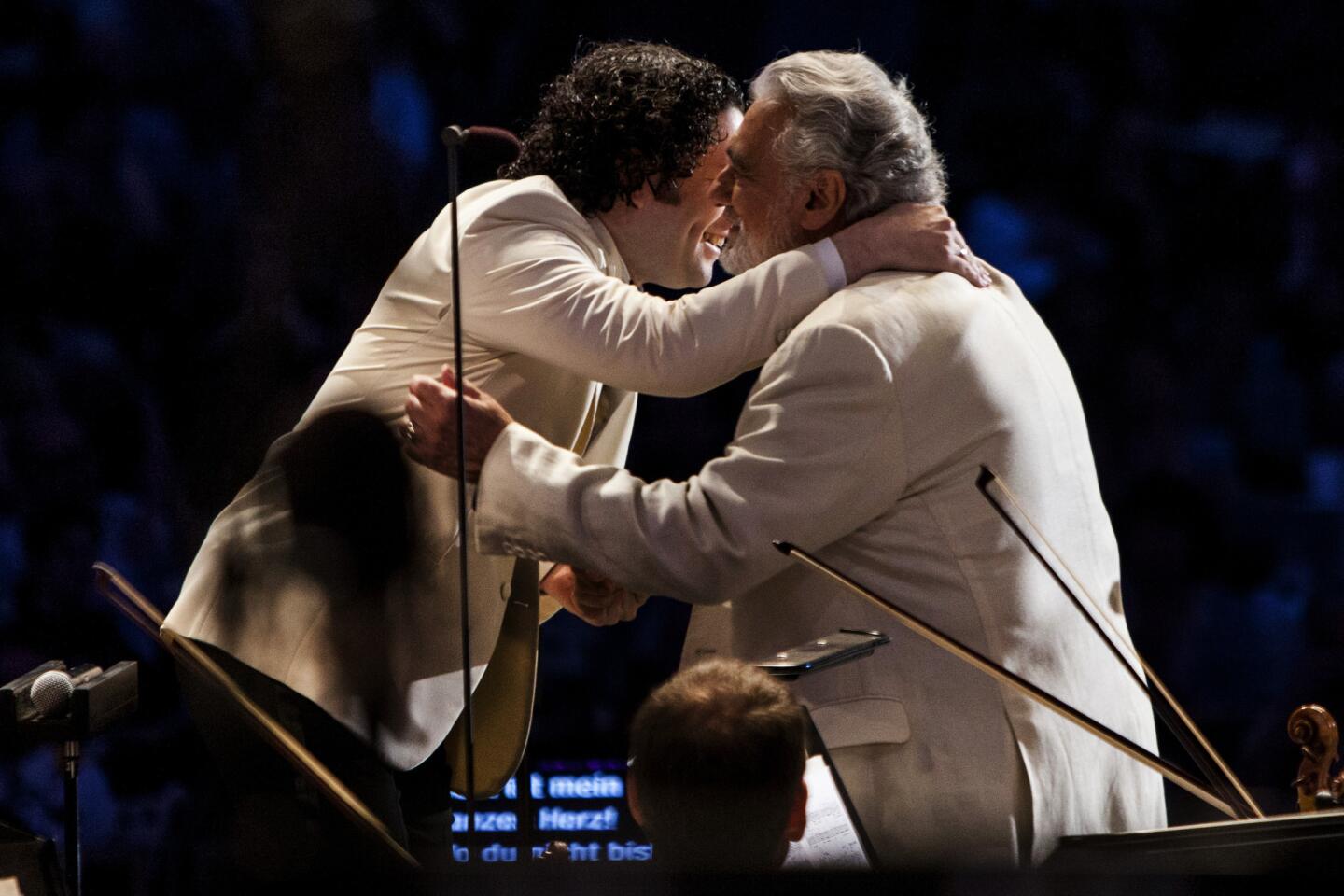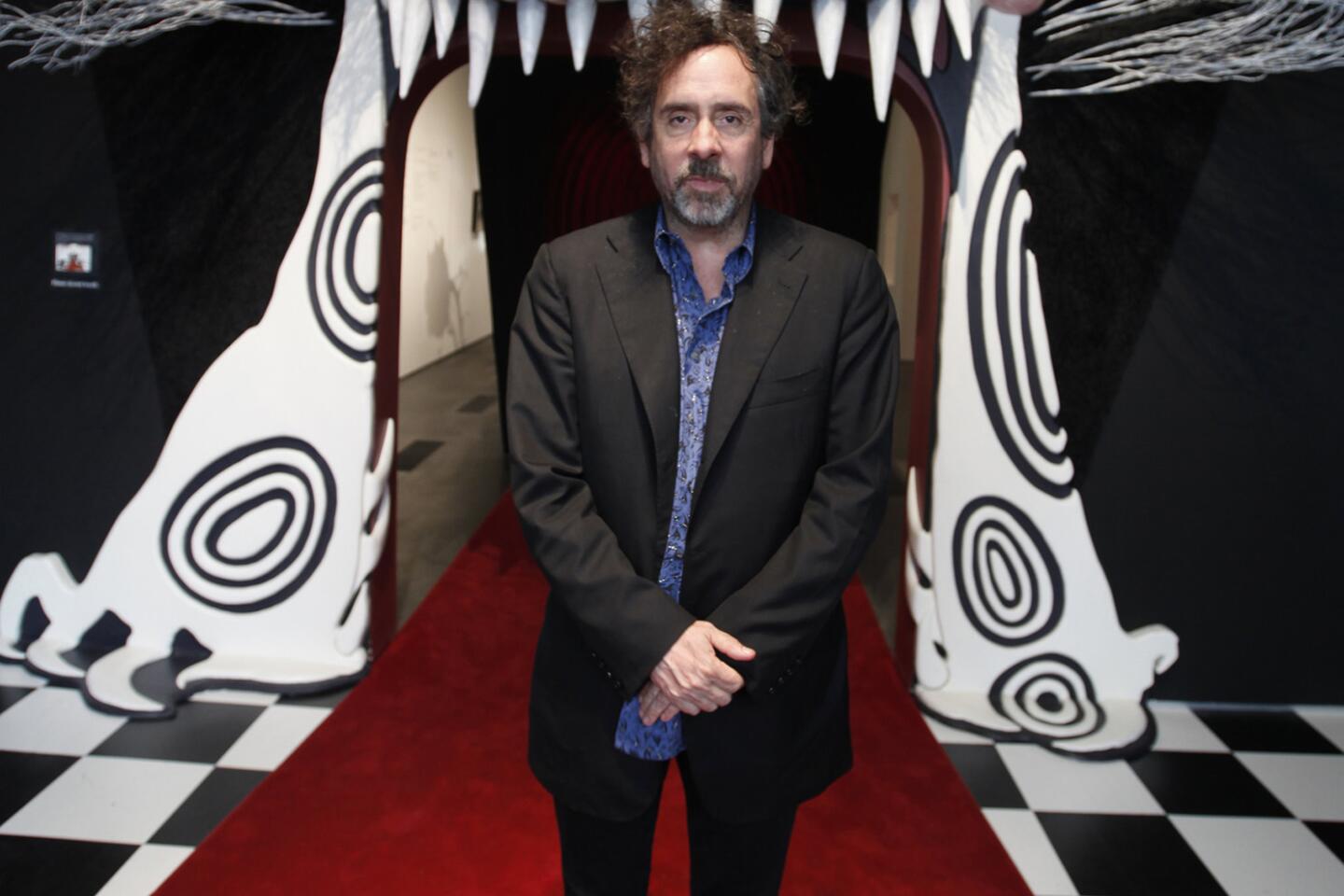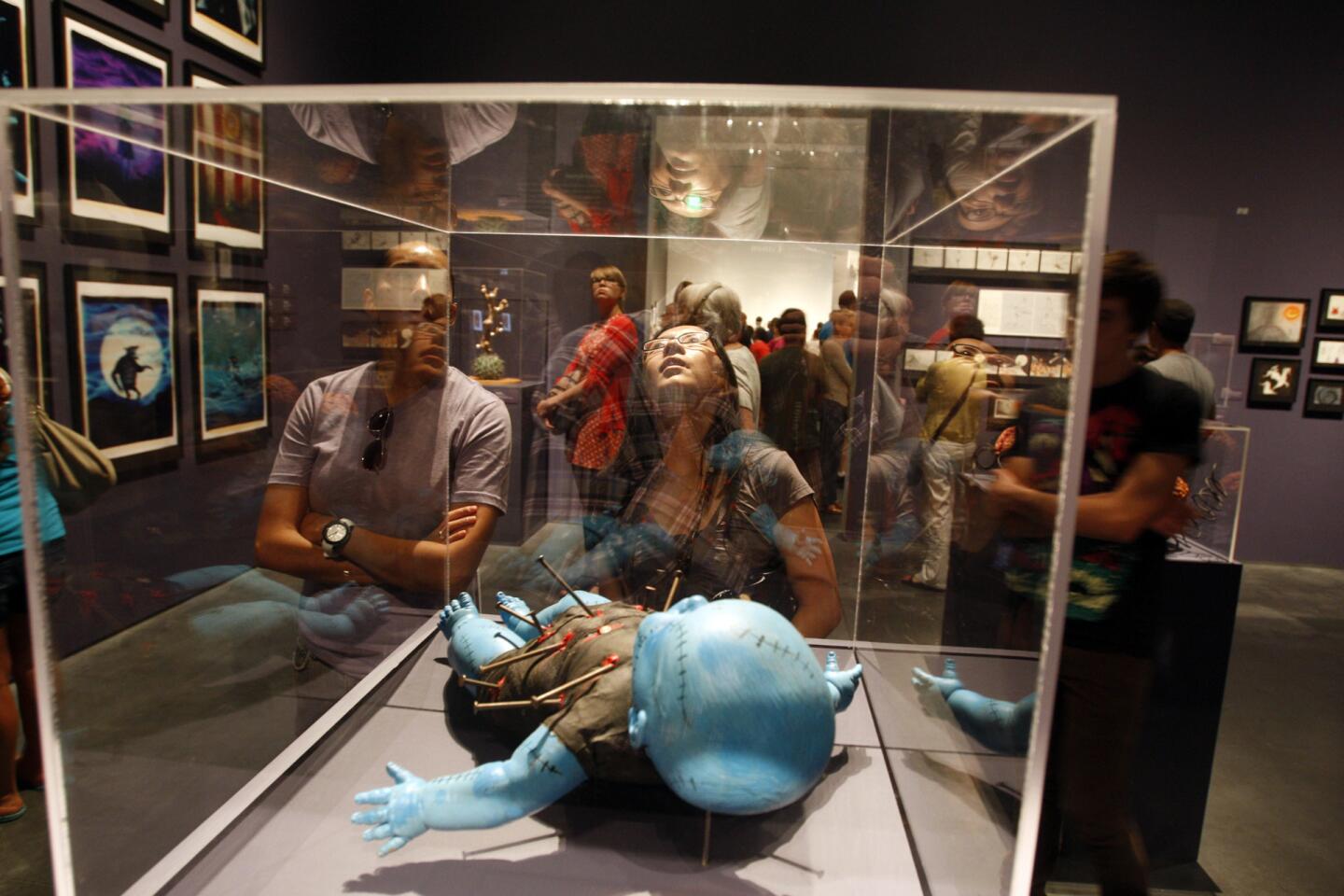L.A. Philharmonic’s young composers program fine-tunes talent
It wasn’t B.J. Thomas, exactly, but musical raindrops seemed to be falling in a white-walled rehearsal room next to Walt Disney Concert Hall, courtesy of Milo Talwani, one of the L.A. composers least likely to write melody, let alone ear candy, into a piece of music.
At 16, he’s one of four area high school students taking the royal road to composing careers, at least at the outset, via the Los Angeles Philharmonic.
Talwani, a lanky epitome of precocious Bohemian-intellectual cool who’s a junior at the Los Angeles County High School for the Arts, had placed pizzicato plinking sounds that evoked the first spatterings of a cloudburst into a musical fragment from a work in progress. It was being given its first test run by the Calder Quartet, a string ensemble that over the past 15 years has gone from USC undergraduate beginnings to international acclaim.
FULL COVERAGE: 2013 Spring arts preview
Hearing the Calders play their music is something most contemporary classical composers can dream about. For the current crop of L.A. Phil Composer Fellows, it’s part of the curriculum. Their two-year apprenticeships will peak the coming two Saturdays when the full Los Angeles Philharmonic, conducted by Christopher Lees, will play their short orchestral pieces in Disney Hall alongside Mussorgsky’s “Pictures at an Exhibition,” as part of the Toyota Symphonies for Youth series.
A.J. McCaffrey, a composer who’s been instructing the Phil’s teen fellows since the program’s inception in 2007, liked Talwani’s raindrop effects.
“Milo, it’s really cool — different for you,” he said. McCaffrey, who’s receiving his doctorate in composition from USC this spring, would later explain that “Milo loves working in almost static fields, big shapes that kind of move glacially. I’ve been encouraging them to try things they normally wouldn’t do.”
Orchestras such as the Los Angeles Philharmonic and quartets such as the Calders are among the most forceful and finely tuned creative tools humanity has devised that do not require electricity. Handing the keys to four teenagers could be construed as potentially a bit reckless. “An orchestra is a dangerous weapon, and in the wrong hands all kinds of chaos can ensue,” admits James Matheson, who directs the Composer Fellowship Program and at 42 is himself a young classical composer, in the more common sense of the term — and a highly decorated one at that.
Along with McCaffrey, it’s his job to make sure these particular hands have the skill, sensibility and discipline to be the right ones.
The fellowships were launched out of the conviction that turning over a great orchestra to high school kids is a risk that classical music can ill afford to duck if it wants to improve the odds for vital new music in the decades to come.
PHOTOS: Arts and culture in pictures by The Times
Early in odd-numbered years, the Phil puts out a call for teenage applicants in the L.A. area who can demonstrate an aptitude for putting music on paper. The chosen four, picked for sparks of originality, embark the following fall on a cost-free two-year regimen of writing for wind instruments, percussion, strings, brass — the whole panoply. They meet every two weeks, and in between the Phil comps them concert tickets to provoke their ears and expand their musical thinking.
Small pickup groups of Los Angeles Philharmonic musicians perform the composers’ scores in private workshop sessions, and the fellows also write for local youth orchestras that perform in an annual festival at Disney Hall.
Steven Stucky, a Pulitzer Prize-winning composer who served from 1988 to 2009 as the Los Angeles Philharmonic’s consultant for new music programming, launched the fellowships near the end of his tenure.
The initial culminating concert in 2009, he said, was “something the first four fellows are never going to forget, and neither am I. You go into Walt Disney Concert Hall, the street’s lined with school buses and it’s full of school kids. After the concert, the composers come on stage to take a bow, and the auditorium erupts with something that sounded to me like hero worship for these nerds who otherwise would never have gotten attention for what they were doing. It was sort of a ‘Rocky’ moment.”
The Los Angeles Philharmonic didn’t pioneer this concept — the Tucson Symphony has had a Young Composers Project for 20 years, according to its website — but it’s by far the most prestigious professional orchestra working consistently with teen composers. The New Haven Symphony and Kansas City Symphony also have programs.
Stucky said the idea was literally thrust upon him by Mary Ann Cummins, a longtime music instructor at Crossroads School in Santa Monica.
“She’s a force of nature, and she had been urging me, to put it politely, for many years to do something about young composers,” he recalled. “I went to Crossroads one day in about 2006 to give a talk or master class, and she takes a boy and shoves him in front of me: `Here’s Anderson Alden, a very talented composer, and what are we going to do about this?’”
The Phil mustered money for the program; orchestra officials said they don’t break down the annual costs separately from other education offerings.
After overseeing the first group of fellows, Alden among them, Stucky tapped Matheson, his former Cornell University grad student, to shepherd subsequent flocks. At the end of 2011, Matheson won a $200,000 Charles Ives Living award from the American Academy of Arts and Letters, designed to buy composers the freedom to do nothing but write music for two years. But he’s continued overseeing his charges in L.A., flying in from New York because he gets a kick out of working with teenagers and because, as Stucky puts it, “if you send 20 kids over a decade into American music, with experience at the highest level, you’re really doing something to the culture.”
Katya Richardson, a 15-year-old sophomore at Orange County High School of the Arts, is the only fellow who’s the offspring of a professional musician: Her father has played trumpet behind Buddy Rich, Tom Jones and Brian Setzer, among others.
The others are Jason Griffin, a senior at Palos Verdes Peninsula High School whose current big challenge in life is deciding among recent acceptances to Stanford, Columbia, USC, UC Berkeley and the Eastman School of Music in Rochester, N.Y.; and Richard An, also 17 and a senior at Crescenta Valley High in La Crescenta, who will be making up his mind about USC, UCLA or Oberlin. Their college applications included musical scores and recordings of L.A. Phil members playing their music, a practical benefit of being a Composer Fellow.
All four fellows began music lessons at a young age, thanks to supportive parents, and a musical restlessness soon set in that prodded them to make up their own music instead of sticking to what was placed in front of them.
An’s father is a plumber; he said his dad and his mom, who died shortly before he began the fellowship, supported his music-making from the day when at 4 he pointed at a piano player on television and said that’s what he wanted to do.
It’s not just a fellowship in name, An said. “I was surprised at how little competition there is between us. Maybe it’s because we each have such individualized voices or sounds that there’s no niche to fight over. We can do exactly what we want, and we won’t be elbowing into any other fellow’s territory. I wouldn’t have the knowledge I do without the other three, and hopefully the others feel the same way.”
While taking the royal road, for now, the students do get reality training about just how tough — make that all but impossible — it is to earn a living writing music for classical ensembles.
“I make sure they know life is not always like this,” Matheson said. “They’re not going to be protected under the blanket of the Los Angeles Philharmonic, and things get a lot rougher down the road. They come out of it with their eyes open. We try to give them skills and knowledge that will give them the best chance they can have. All the other variables are not under anybody’s individual control.”
The variables seem to be breaking favorably. Recently Tamzin Elliott, who finished her fellowship in 2011 and is now a sophomore at Bard College in upstate New York, received critical thumbs-up in the New York Times and Washington Post for songs she’d written for members of the Bard College Conservatory to sing at New York City’s Morgan Library and for a percussion tribute to John Cage that was played during a Cage festival at American University in Washington, D.C.
Saad Haddad, who was part of the first composer fellows group that finished in 2009, is a junior at USC. One of his recent compositions is scheduled to be played by the American Composers Orchestra, which is dedicated to fostering fresh talent, on Monday and Tuesday at its annual festival of new works in New York City.
Stucky said he met with Anderson Alden a few months ago in New York. The high school kid who was shoved forward in Santa Monica as an argument that the L.A. Phil needed to nurture its community’s teen composers is about to get his bachelor’s degree from Yale. He wanted advice about graduate schools.
“They’re competing at the highest level,” Stucky said. “It’s like having your kids grow up.”
More to Read
The biggest entertainment stories
Get our big stories about Hollywood, film, television, music, arts, culture and more right in your inbox as soon as they publish.
You may occasionally receive promotional content from the Los Angeles Times.
